HKS Student Government Election
Suspended BY MILES J. HERSZENHORN CRIMSON STAFF WRITER
Students at the Harvard Ken nedy School of Government will graduate with a master’s degree in public policy or public admin istration. But first, they are strug gling to master electing a new student government.
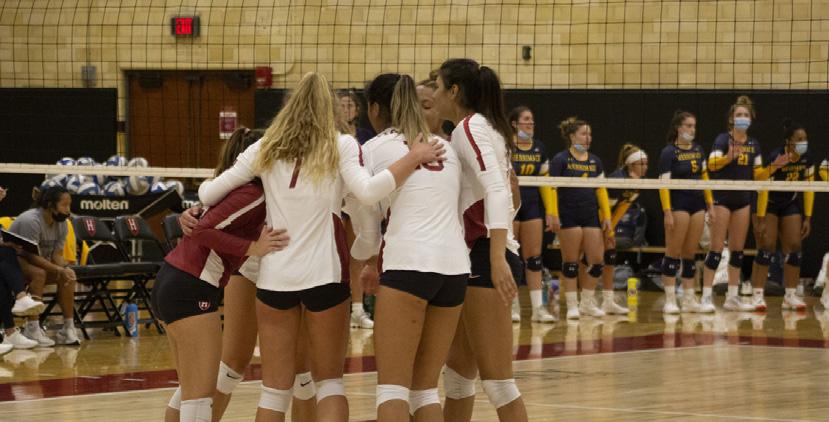
The Kennedy School’s student government race had all the mak ings of a real-world election: ten sion, apathy, frustration, and IT issues.
After the unveiling of the elec tion roster, students learned that candidates were running uncon tested in several positions — in cluding for president — and un successfully attempted to reopen candidate nominations. Then, two hours after polls opened, the election committee realized doz ens of students were left in the dark about the election process because they were not added to an email list.
Imogen M. A. Hobby, inter im HKS student government president and Bethany M. Kirk patrick, interim vice president, announced in an email to the stu dent body on Tuesday that they halted and dissolved the election due to an IT failure.
“We will modify this year’s election timeline and reopen the nominations process for this year’s fall election to all students,” they wrote. “This decision was made in consultation with the HKS administration.”
HKS spokesperson Sofiya C. Cabalquinto confirmed in a
This summer, the temperature in the Greater Boston area reached highs of 100 degrees Fahrenheit plus hu midity. Faced with record-breaking heat and no air conditioning, some students on Harvard’s campus for the summer report ed adverse living conditions and minimal support from program administrators.
The University hosted 22 students on campus this past summer for its Summer Research Opportunities at Harvard — a ten-week program that connects under graduates from other universities with re search internships. The program partici pants lived in Winthrop House’s Standish Hall, a dorm that offers ceiling fans but not air conditioning.
Some SROH participants said their experience at Harvard was tainted by re
cord-breaking heat and little communica tion from administrators. Some students left their doors open, stayed awake late into the night, or slept in labs, hallways, and house common spaces, according to four program affiliates.
SROH intern Lena R. Heinrich said living on Harvard’s campus left her in a “steady state of exhaustion.”
“I was up at 3 a.m. most nights during the heatwave. People were sleeping in the library, in the common areas, leaving their doors open and propping them with things so that we could get any kind of airflow,” Heinrich said. “It was really not pleasant. I really wanted to leave.”
SROH participant Abby N. Ross said an intruder broke into her dorm multiple times after she and her suitemates left the door propped open to improve air circu lation. The trespasser, a 26-year-old man, was arrested on July 26 and charged with breaking and entering, per a Harvard Uni versity Police Department log.
When Denise Yoon, a peer mentor for SROH, asked program administrators to install portable AC units in the dorms to mitigate the heat, it took nearly a week — and intervention from a faculty mentor — for students to receive box fans as a substi tute, according to emails obtained by The Crimson.
SROH participants were notified ahead of the program that they would be living in dorms without air conditioning, according to a Harvard spokesperson.
The lapse in communication between participants and administrators culmi nated in a transportation mishap in late July.
While preparing to travel to a confer ence in Hartford, Connecticut with the other program interns, Heinrich noticed coolant leaking from the bus. Students were told to board the bus anyway, ac cording to Heinrich.
The bus eventually stopped at a rest area due to engine problems, at which
point a new bus — without air condition ing or windows that could open — arrived to transport the students. Heinrich said when a student on the second bus passed out due to heat stroke, the situation “de volved into pandemonium.”
“We were in this million-degree bus parked on the side of the freeway in the blaring sun, trying to deal with the per son having heat stroke while the rest of us were actively unsafe and extremely over heated,” Heinrich said.
After the student was taken to the hospital, the other passengers were told to get back on the bus. Yoon said she lat er learned that this was because the bus could not stop on the highway and pro gram directors had called for another bus for students to board at the next rest stop. At the time, the students believed they were traveling the rest of the distance to Hartford on the bus lacking AC.
“In some ways, that’s very understand able — you just can’t stop on the side of the highway,” Yoon said. “I think the major
Harvard celebrated the launch of the Kempner Institute for the Study of Natural and Artificial Intelligence on Thursday in an event fea turing remarks from Meta CEO Mark E. Zuckerberg.
Announced in December 2021 by the Chan Zuckerberg Initiative, the Kempner Institute seeks to better understand the intersection between natural and artifi cial intelligence, two fields that are “inti mately connected,” according to the insti tute’s website.
Zuckerberg and Priscilla Chan ’07 have pledged $500 million dollars toward the
establishment of the institute over the next 15 years. The fund will support new faculty members, computing infrastruc ture, and resources for students to inter act between different labs in the institute.
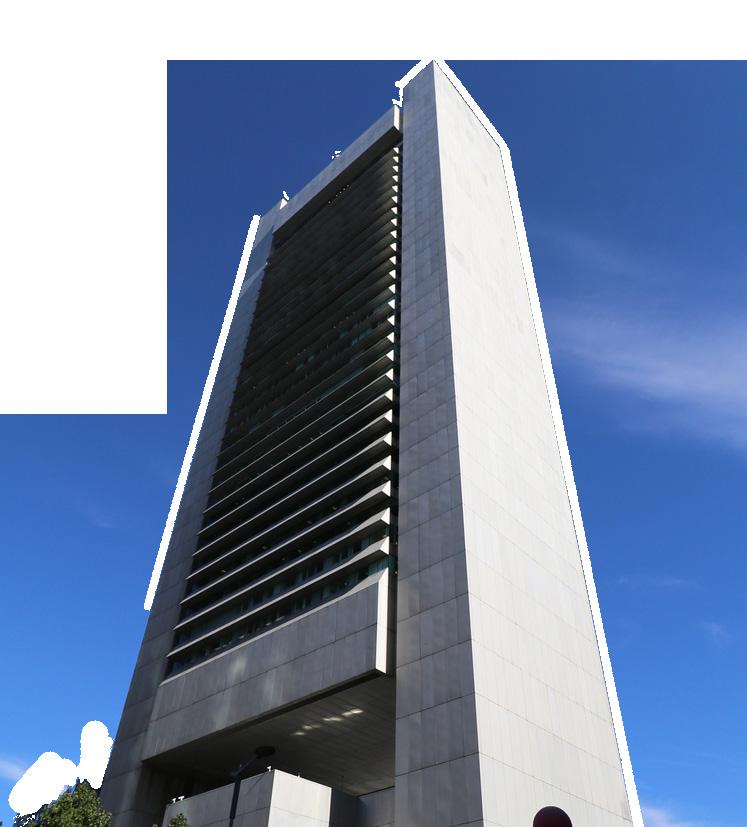
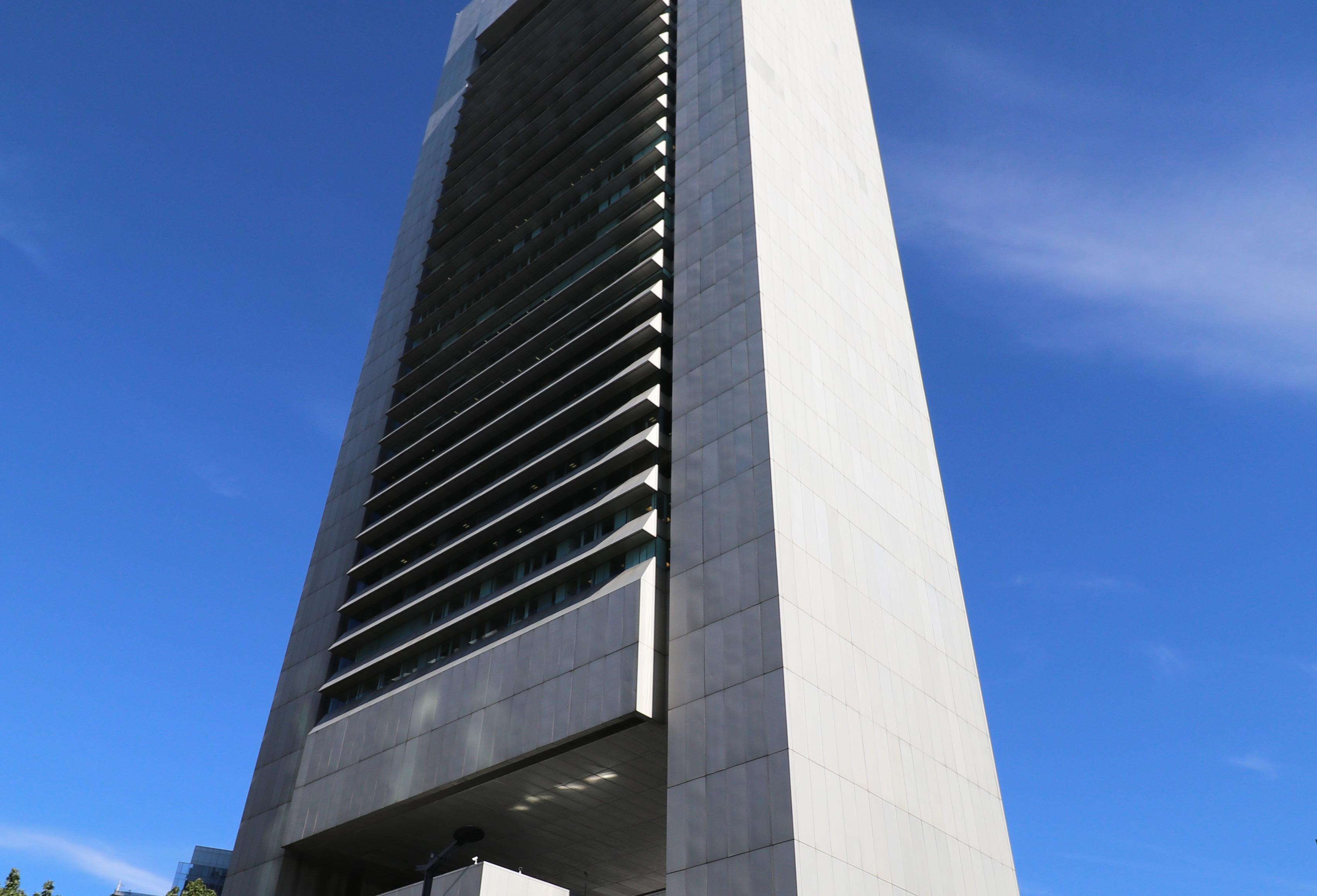
The namesake of the institute are Zuckerberg’s mother, Karen Kempner Zuckerberg, and grandparents, Sidney and Gertrude Kempner.
“My parents and grandparents fo cused on the power of the mind and intel ligence to try to improve the world,” Zuck erberg said Thursday. “We thought that it was fitting that this institute will bear the Kempner name, because we hope that it will fuel discoveries about the mind and intelligence that will bring good to the world for generations to come.”
University President Lawrence S. Ba
cow lauded Zuckerberg and Chan for their knowledge of artificial intelligence and their philanthropic efforts toward education.
“Mark and Priscilla are quite unique because they are among the very, very few philanthropic donors in the world who actually have every bit as much subject matter expertise — if not more — than the people that they are going to be support ing here,” Bacow said. “They have given us this incredible opportunity for which we’re enormously grateful.”
According to Chan, the institute will drive progress by following a threepronged approach focusing on research, computation, and education. On the research front, Kempner will study the underlying principles of artificial intelli
gence and neurobiology and uncover new ideas and problems. The institute will also use advanced computing to generate and analyze data at a “truly massive scale,” Chan said.
“It will also put this technology direct ly into the hands of students,” she added. “They’ll be the first generation in history to use machine learning tools so early in their careers.”
Both Zuckerberg and Chan empha sized the importance of placing students and young minds at the forefront of the Kempner Institute. Zuckerberg described students as “flexible thinkers” and “acute ly aware” of the problems that need to be solved.
THE UNIVERSITY DAILY, EST. 1873 FRIDAY, SEPTEMBER 23, 2022
SEE ‘HKS’ PAGE 17 HKS
ENDOWMENT TAX
Zuckerberg Speaks at Kempner Institute Launch Summer Students Bemoan Heat Issues COLLEGE BY MAYESHA R. SOSHI CRIMSON STAFF WRITER MARK ZUCKERBERG SEE ‘AI‘ PAGE 5 SEE ‘HEAT’ PAGE 16 THE HARVARD CRIMSON Women’s Volleyball Looks Toward Ivy PAGE 18 SPORTSEDITORIAL Is the Endowment Tax a Blow to Higher Education? TAXING HIGHER ED Harvard has decried a bill passed under the Trump administration that includes a tax on wealthy university endowments. But is the impact of the provision as significant as the University claims it to be? SEE PAGE 6 BY LEAH J. TEICHHOLTZ AND VIVI E. LU CRIMSON STAFF WRITERS PHOTO BY AMY Y. LI — CRIMSON FILE | DESIGN BY TOBY R. MA — CRIMSON DESIGNER
Harvard Unions to Merge



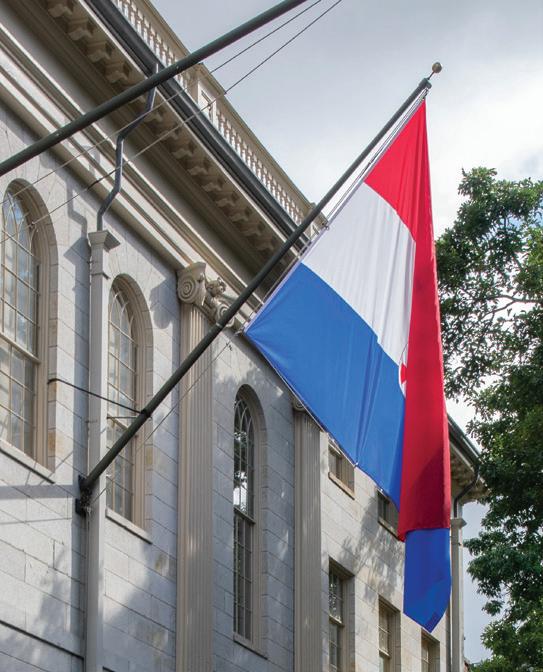
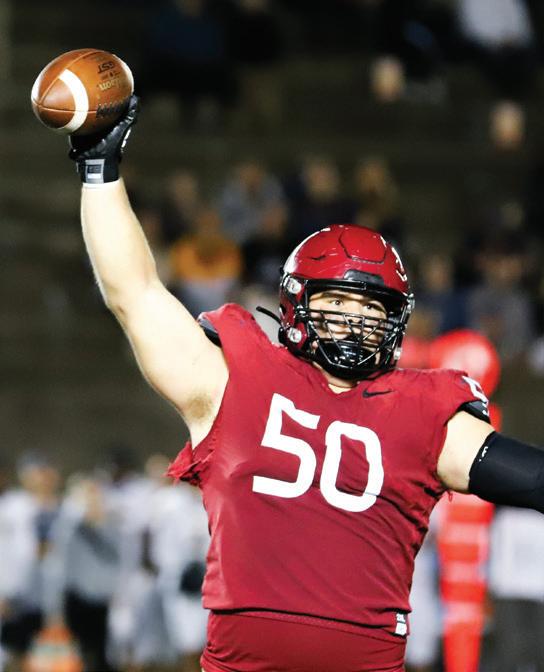
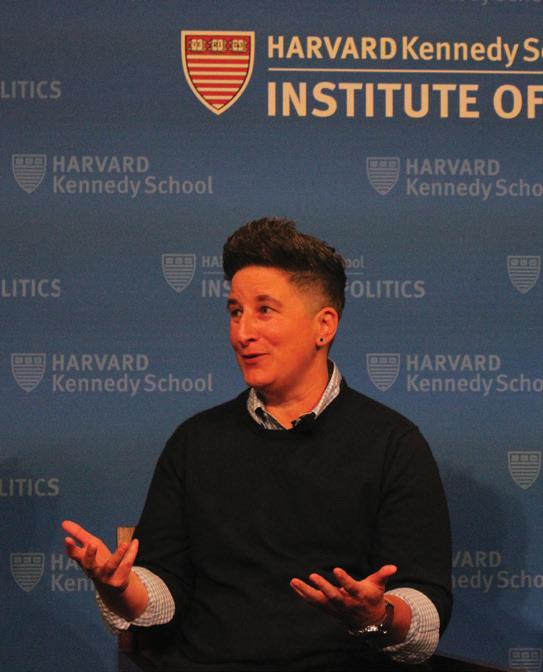
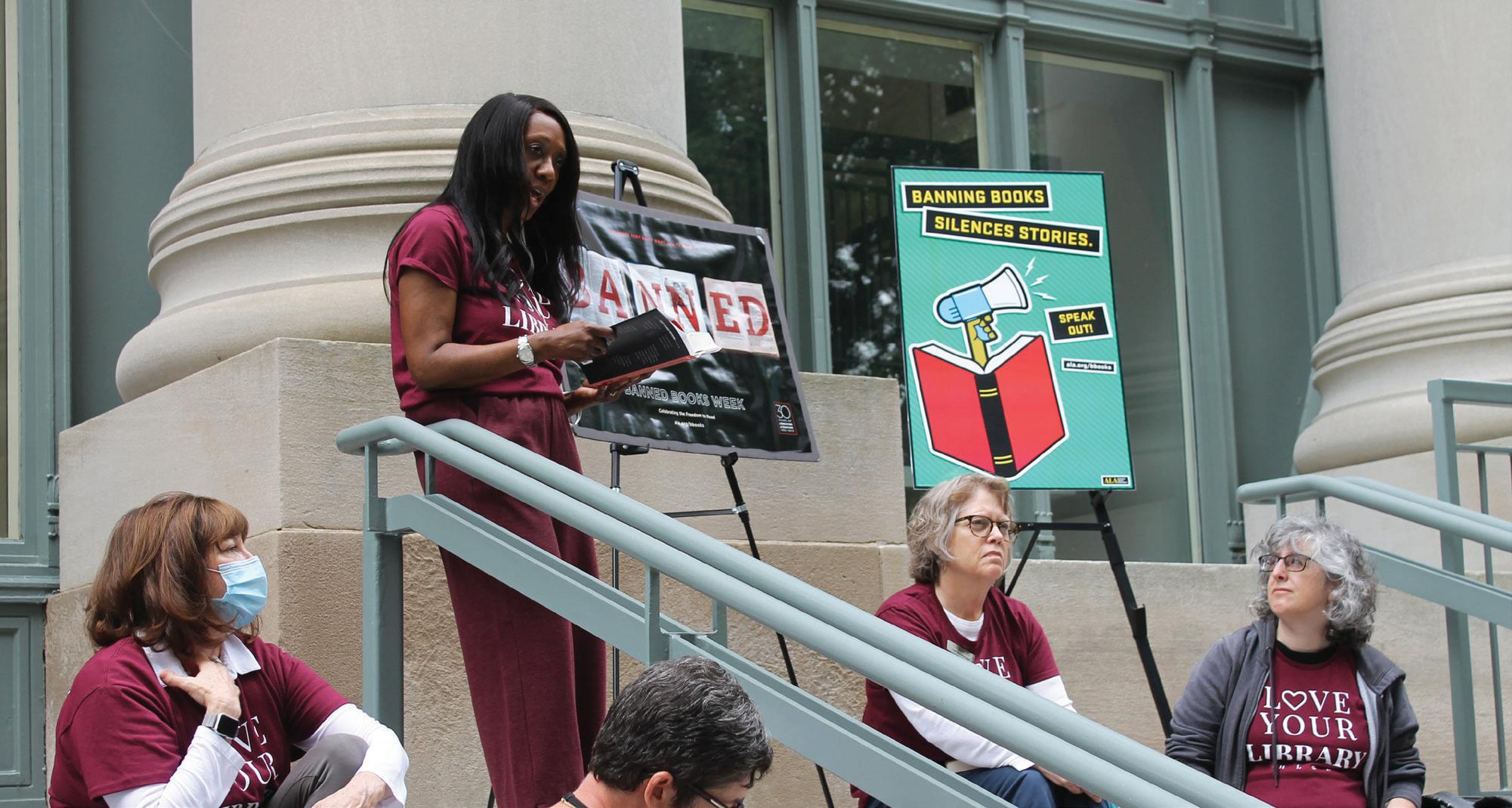
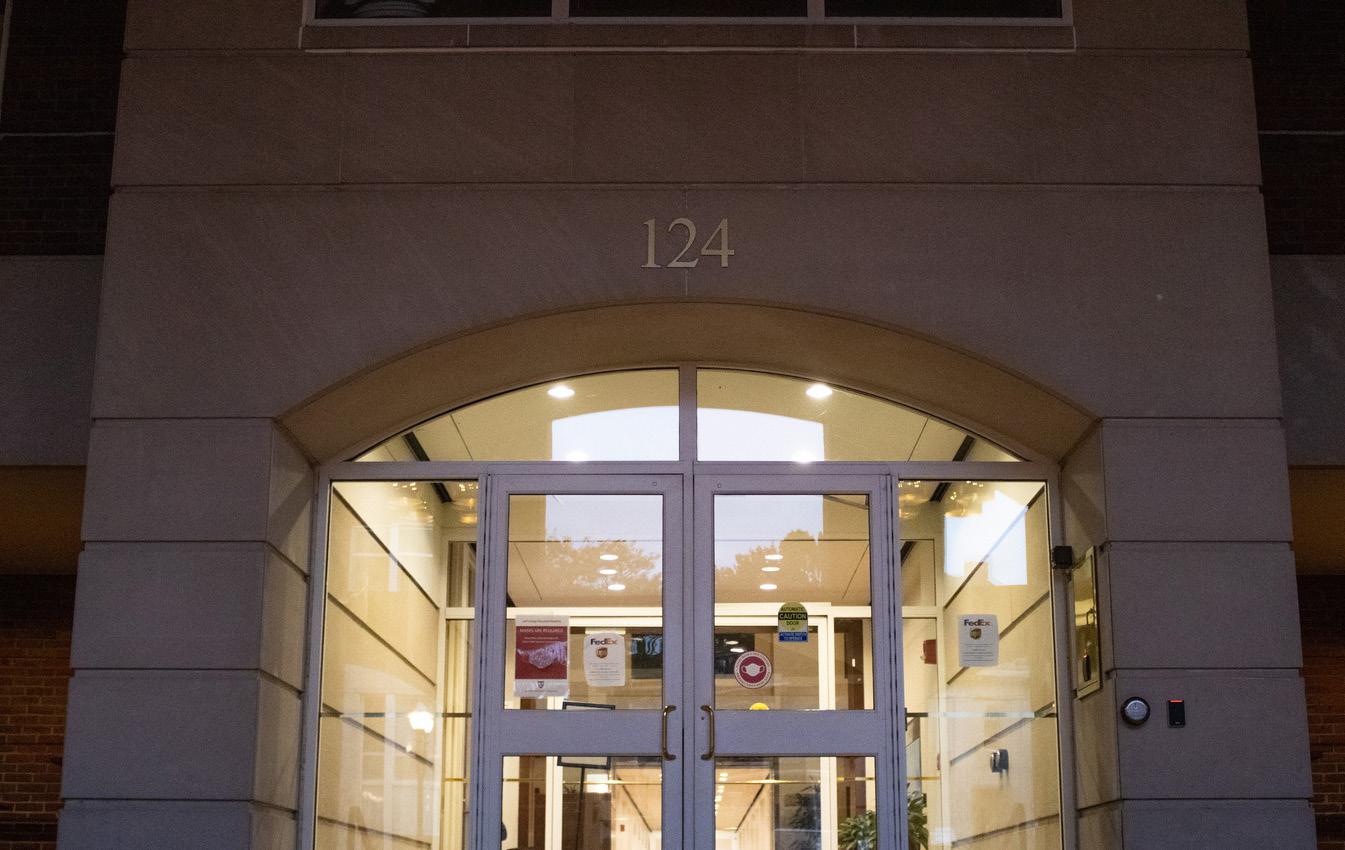
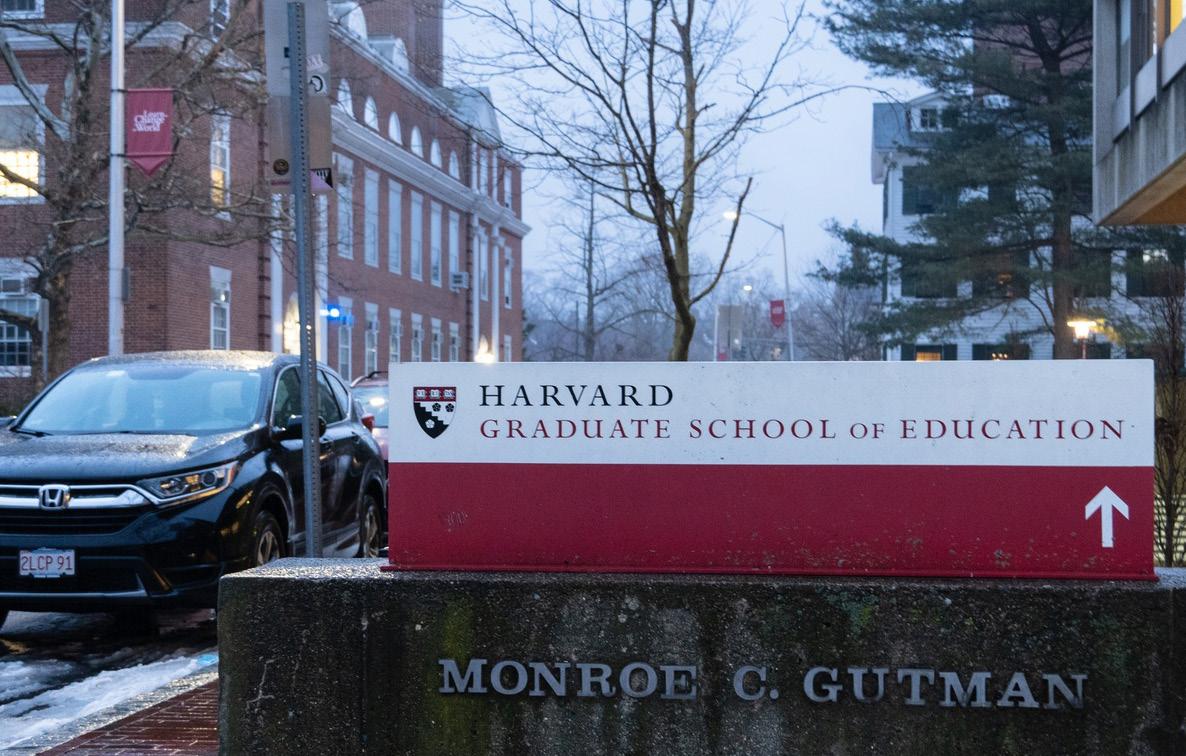
EDUCATIONSCIENCE

Astrophysicist To Explore Pacific Ocean
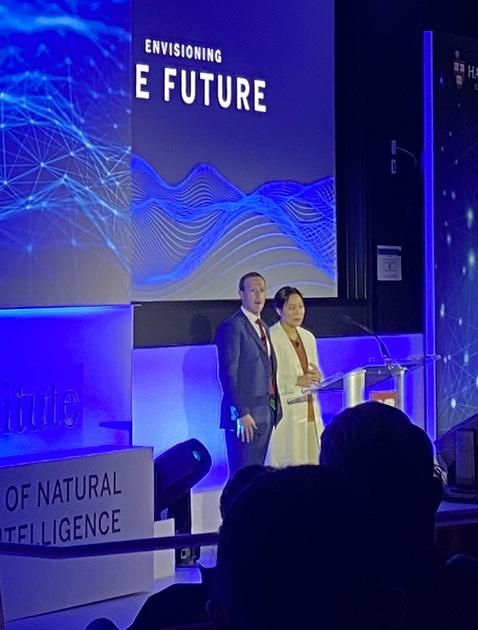
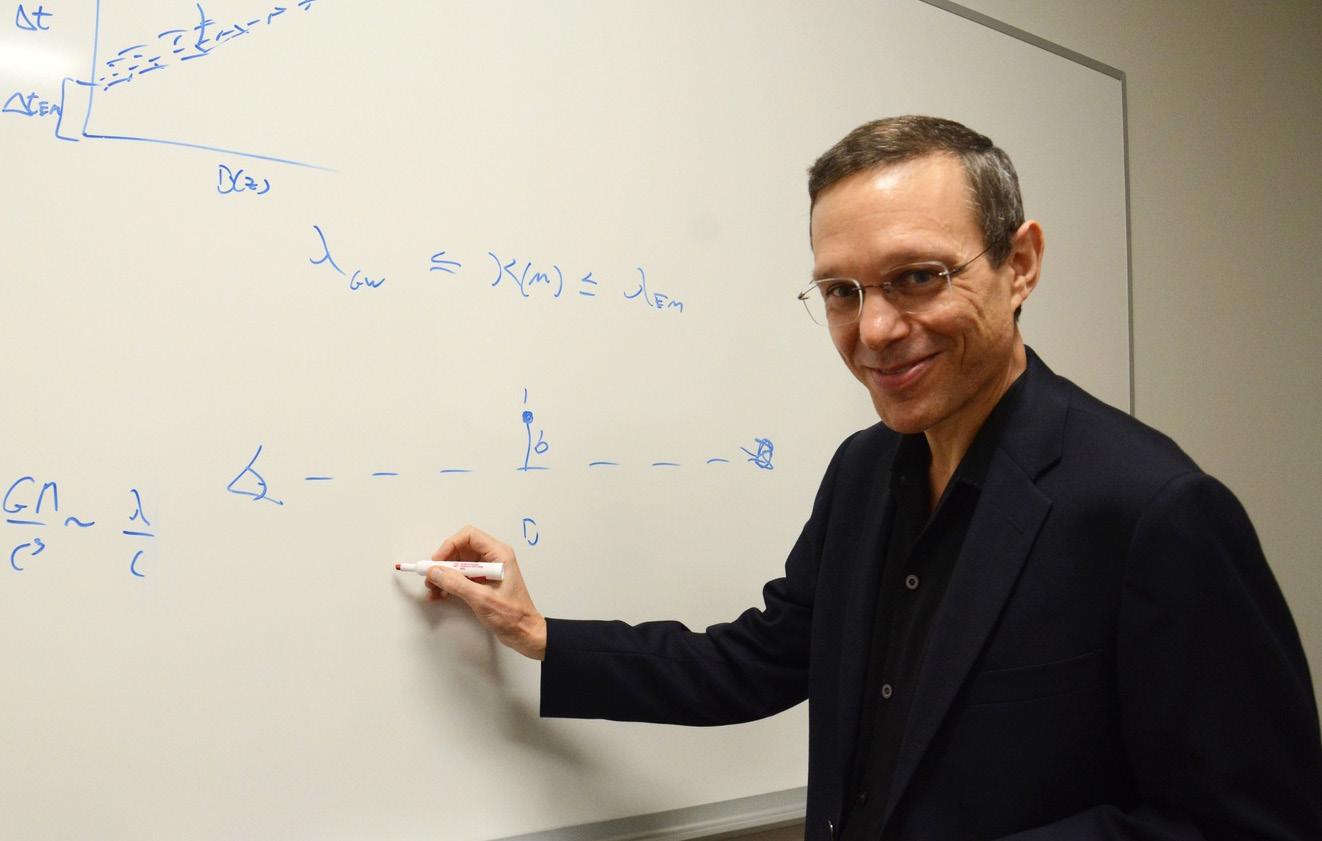
Experts Weigh In on Teacher Shortage
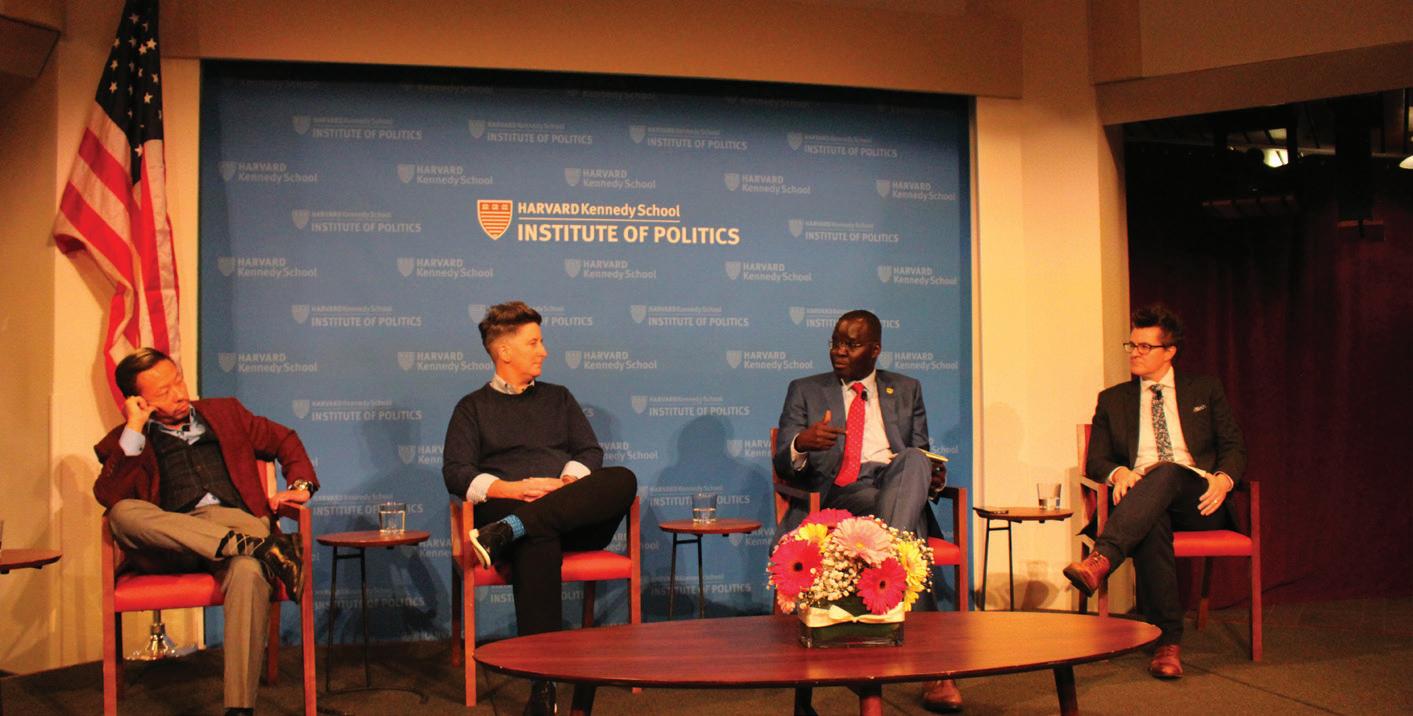
AROUND THE IVIES
The Week in Pictures
Following a sighting of a Star of David next to a Nazi swastika and a banner that read “Burn prisons, Free them all, Attica to Palestine” on the side of the Cornell Law School building, The Cor nel Daily Sun reported that the campus’s Jewish community assembled for a rally last Thursday evening. In response to the antisemitic display, the University released a statement that it con demns “in the strongest possible terms all forms of hatred and bigotry.”
THE CORNELL DAILY SUN
Columbia notified Red Balloon — the non-profit parent board of a West Harlem daycare — that it would need to evacuate its space in a Columbia housing complex by August 2023. Red Balloon has one of the lowest monthly tuition rates for toddlers among six Columbia-affiliated centers that provide daycare for more than nine hours, five days a week.
THE COLUMBIA SPECTATOR
University of Pennsylvania students formed a campus group to endorse Josh Shapiro — the only Democrat running for governor of Pennsyl vania in the forthcoming election — and to raise awareness about the issues on the ballot of the upcoming election. On November 8, Shapiro will face off against State Senator Mastriano of the Republican Party.
THE DAILY PENNSYLVANIAN
Reminiscent of the dissolution of Harvard’s former Undergraduate Council, Dartmouth’s Student Assembly is changing its name to Dart mouth Student Government as part of a larger rebranding plan that also involves updating its goals and internal structure. The DSG’s new goals include improving communication with the student body, increasing access to telether apy, and establishing an official liaison with the Hanover town government.
THE DARTMOUTH
CORNELL
COLUMBIA
‘A PERFECT STORM.’ Despite national discussions about a teacher shortage across the country, several affiliates of the Harvard Graduate School of Education have said the short ages are both subject-dependent and more concentrated in specific school districts. Affiliates said the local nature of shortages, as well as the lack of teachers in the STEM and special education fields, has driven the recent news coverage.
BY PATON D. ROBERTS
UNDERWATER ALIENS. Harvard professor and astrophys icist Abraham “Avi” Loeb is preparing to search the Pacific Ocean floor for fragments of an interstellar meteor and potential alien technology. Loeb hopes to recover pieces of CNEOS 2014-01-08, a meteor of an estimated 500 kilograms originally observed off the coast of Papua New Guinea in 2014. He has received full funding — $1.5 million — to finance the expedition through contributions from wealthy donors, he wrote in an email.
BY JEREMIAH C. CURRAN
‘A NICE END OF AN ERA.’ After at least three failed at tempts, the Harvard University Security, Parking and Muse um Guards Union has successfully voted to merge with the Harvard Union of Clerical and Technical Workers. In mid-Au gust, HUSPMGU ratified the agreement, which brings the union under the umbrella of HUCTW. When the merger takes effect on Oct. 1, it will give HUSPMGU members “parity on pay and phased-in coverage under HUCTW benefits, policies, and protections,” per a Sep. 8 email to HUCTW members. BY CLAIRE
BANNED BOOKS. A dozen librarians and staff members from the Harvard Law School library read aloud from their favorite banned and chal lenged books on Wednesday in honor of the 40th annual Banned Books Week. SOPHIE S. CRIMSON PHOTOGRAPHER
GLOBAL TRANS RIGHTS. The Harvard Institute of Politics hosted a forum Tuesday to discuss cultural political backlash to the global transgender rights The event began with a moment of silence in honor of a transgender Kennedy School student who died in police custody in Indonesia.
JUSTICE BREYER. Recently retired justice Breyer discussed his experiences on Court Mansoor
PRESIDENTIAL PARDON. HLS and HKS affiliates called on President Joe Biden to pardon reparations advocate Callie House, arguing she was wrongly convicted in as result of activism for
HLS LIBRARIANS READ OUT BANNED BOOKS
PENN DARTMOUTH LAST WEEK2 SEPTEMBER 23, 2022 THE HARVARD CRIMSON
LABOR
YUAN AND SOPHIA C. SCOTT
KIM —
and
movement.
MILES J. HERSZENHORN— CONTRIBUTING PHOTOGRAPHER ZUCKERBERG. Meta CEO Mark Zuckerberg and Priscilla Chan ’07 spoke at the launch of the Kempner Institute, a resarch initiative focusing on AI research. MAYESHA R. SOSHI—CRIM SON PHOTOGRAPHER IOP FORUM. Panelist Jen Manion, an Amherst College professor, said they are opti mistic about the future of the global trans rights movement. MILES J. HERSZENHORN—CONTRIBUTING PHOTOGRAPHER FUMBLED FUMBLE. In a call that ended up being over turned, Thor Griffith recovers what he thought to be a fum ble by Merrimack quarterback Jack Zergiotis. JOSIE W. CHEN— CRIM SON PHOTOGRAPHER CROATIAN PM. Croatian Prime Minister Andrej Plenkov ić spoke on Russia’s invasion of Ukraine at the Harvard Institute of Politics on Wednes day. JULIAN J. GIORDANO—CRIMSON PHOTOGRAPHER
Ste phen G.
’64
the Supreme
with Justice Syed
Ali Shah of Supreme Court of Pakistan, reflect ing on the meaning of and learning he did as a judge. JULIAN J. GIORDANO—CRIMSON PHOTOGRAPHER
1916
a
her
the Black community. MILES J. HERSZEN HORN—CONTRIBUTING PHOTOGRAPHER
Sign up for alerts, sent straight to your inbox. Get breaking news . thecrimson.com/subscribe
Queen Elizabeth II, the longest-reign ing British monarch was interred on Monday at the King George VI Memorial Chapel in Windsor. The queen passed away on September 8, in Scotland’s Balmoral Castle at the age of 96. Hundreds of dignitaries attended the funeral on Sept. 19 to express their condo lences and honor the late queen, who held the role for seven decades. The queen left behind four children, eight grandchildren, and 12 great-grandchildren. Her son, Charles has assumed the throne as King Charles III, after 73 years as heir-apparent.
Biden declared in a CBS “60 Minutes” broadcast on Sunday that the country still has “a problem with COVID,” but “the pandemic is over.” Since Covid-19 was declared a pandemic in March 2020, the World Health Organization revealed that the new weekly global mortality fell to its lowest level in the first week of Sep tember. More than a million Americans have died as a result of Covid-19, which has also caused lockdowns, devastated the economy, and prevented millions of chil dren from attending school for months.
What’s Next
Start
KHACHAPURI AND KHARCHO: THE GEORGIAN FEAST AND ITS MEAN INGS
CGIS South Building, 5 p.m. –8 p.m.
The Program on Georgian Studies at the Davis Center for Russian and Eurasian Studies is hosting its first fall reception in three years. Register and attend to learn more about and enjoy the Georgian supra, or feast.

Saturday, 9/24
HARVARD FOOTBALL VS. BROWN
Brown Stadium, 12:30 p.m.
Tune into Harvard Football’s first Ivy League game this season this Saturday. Last week, Harvard took an overtime 28-21 victory against Merrimack Col lege. Harvard has a winning record against Brown, with 88 wins, 30 losses, and 2 ties.
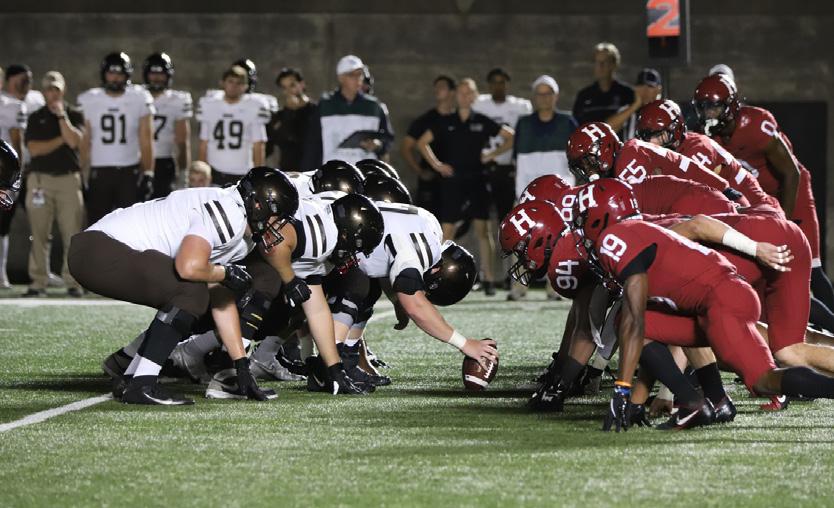
PBHA’S ANNUAL BIKE SALE
1 Harvard Yard, 2 p.m. –4:30 p.m.
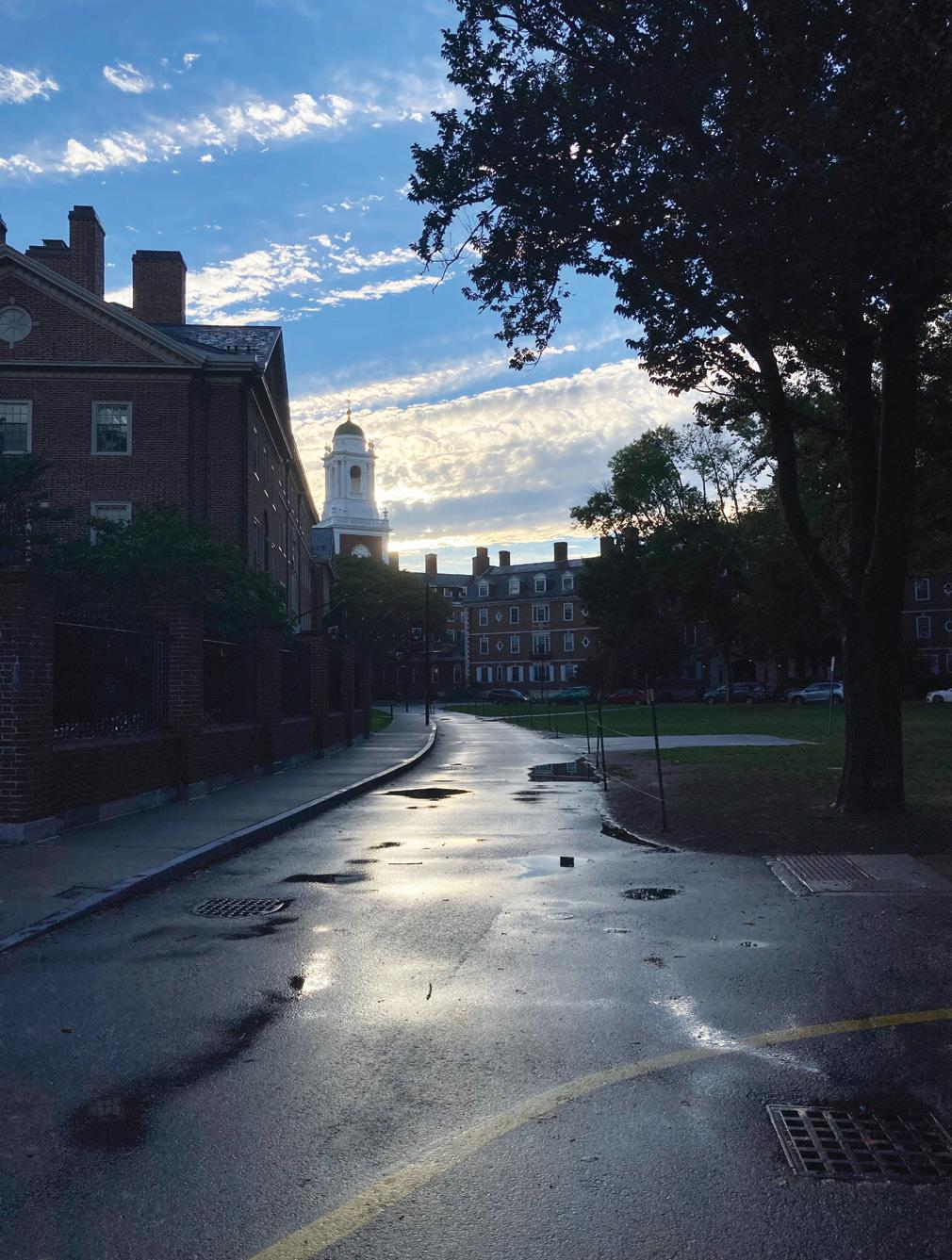
The Phillips Brooks House Association is holding its annual bike auction at the Phillips Brooks House lawn at 1 Harvard Yard, with test-biking from 2 p.m. to 3 p.m. and the auction from 3 p.m. to 4:30 p.m. Initial bids start at $25.
Tuesday, 9/27
PARK DAE SUNG: INK AND SOUL CGIS South Building, Japan Friends of Harvard Concourse, 7 a.m. –7 p.m.
The Korea Institute is hosting an exhibition of 13 ink paintings by contemporary Korean artist Park Dae Sung. Completed in 2022, all works were exclusively produced for Harvard and will be showcased to the public for the first time.
Monday, 9/26
UNAPOLOGETIC INDIAN: ELASTICITY IN INDIAN FOOD Science Center Hall C, 7 p.m. –8:30 p.m.
Join Chintan Pandya, chef and partner of Unapol ogetic Foods, to experience the science behind his culinary techniques on Monday evening.
HARVARD NEIGHBORS OPEN HOUSE
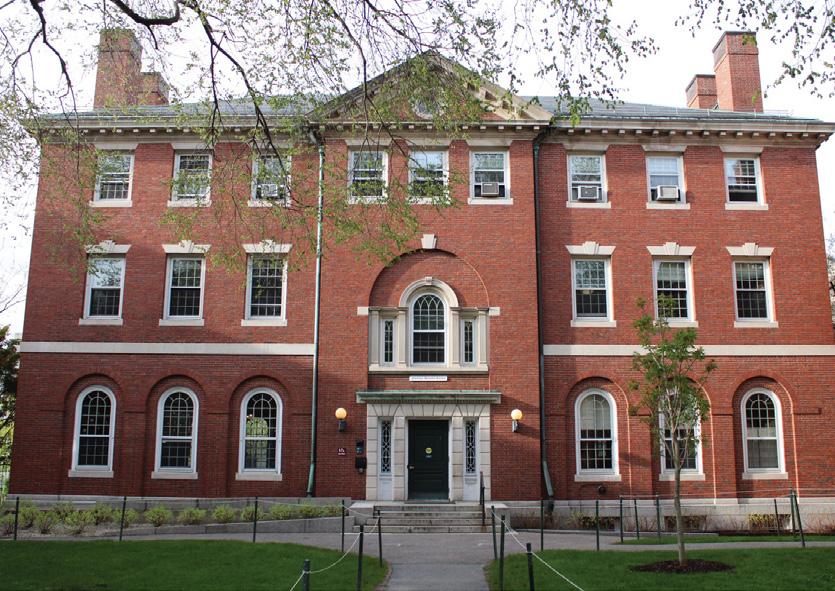
Friday, 9/23 9/28 9/29 THE REAL
CGIS South Building, 5 p.m. –7:30 p.m.
After over two years of virtual gatherings, Harvard Neighbors is hosting an Open House and Welcome Party for faculty, staff, postdocs, visiting scholars, affiliates, and any partners or spouses. To RSVP, send an email to neighbors@harvard.edu.
5TH ANNUAL HARVARD GRAD FEST
Smith Campus Center, 5 p.m.– 9 p.m.
Harvard’s Annual Grad Fest is open to all graduate and professional students and their family mem bers. There will be live music, activities for all ages, art installations, and Harvard resources.
Just weeks before the midterm elec tions, Democrats have reached an arrangement on a coveted policing and public safety package that will be taken to the House floor. This package is smaller than the initial bill proposed in summer 2020, which would have made it easier to pursue claims of police miscon duct through a ban of police chokeholds and altered qualified immunity for law enforcement. The current package in cludes improved de-escalation training and $250 million for officer mental health resources, in addition to added support for smaller police agencies, in an effort to decrease interactions between police and people with mental health disorders that end up with a fatality.
every week with a preview of what’s on the agenda around Harvard University
Wednesday,
Thursday,
IN
WORLD
QUEEN ELIZABETH II DIES AT 96 BIDEN DECLARES IN INTERVIEW, ‘THE PANDEMIC IS OVER’ PRIOR TO MIDTERMS, HOUSE DEMS SIGN AGREEMENT ON POLICING BILLS NEXT WEEK 3SEPTEMBER 23, 2022 THE HARVARD CRIMSON The Bosnia and Herzegovina leader Sefik Dzaferovic lamented the UN’s inability to stop the crisis in Ukraine on Wednesday, saying it was a terri fying repetition of his nation’s bloody struggle from three decades prior. The Bosnian War led to 100,000 deaths and millions of displaced people. Dzaf erovic said that the UN was “unable to prevent or stop the war” in Bosnia, and that this “happened again” in the case of Ukraine’s war with Russia. Dzaferovic add ed that “the Security Council is evidently unable to fulfill its obligations.” UNITED NATIONS INACTION ON UKRAINE CRITICIZED BY BOSNIAN LEADER Associate Managing Editors Kelsey J. Griffin ’23 Taylor C. Peterman ’23-’24 Editorial Chairs Guillermo S. Hava ’23-24 Eleanor V. Wikstrom ’24 Arts Chairs Sofia Andrade ’23-’24 Jaden S. Thompson ’23 Magazine Chairs Maliya V. Ellis ’23-’24 Sophia S. Liang ’23 Blog Chairs Ellen S. Deng ’23-’24 Janani Sekar ’23-’24 Sports Chairs Alexandra N. Wilson ’23-’24 Griffin H. Wong ’24 Design Chairs Yuen Ting Chow ’23 Madison A. Shirazi ’23 Multimedia Chairs Aiyana G. White ’23 Pei Chao Zhuo ’23 Technology Chairs Ziyong Cui ’24 Justin Y. Ye ’24 STAFF FOR THIS ISSUE Night Editors Noah J. Caza ’22-’23 Natalie L. Kahn ’23 Assistant Night Editors Jeremiah C. Curran ’25 Ryan H. Doan-Nguyen ’25 Dorcas Gadri ’25 Michal Goldstein ’25 Ariel Kim ’24 Lucas Walsh ’24 THE HARVARD CRIMSON Story Editors Brie K. Buchanan ’22-’23 Jasper G. Goodman ’23 Kelsey J. Griffin ’23 Natalie L. Kahn ’23 Taylor C. Peterman ’23-’24 Design Editors Nayeli Cardozo ’25 Yuen Ting Chow ’23 Toby R. Ma ’24 Ashley R. Ferreira ’24 Madison A. Shirazi ’23 Sami E. Turner ’25 Photo Editors Julian J. Giordano ’25 Cory K. Gorczycki ’24 Editorial Editors Guillermo S. Hava ’23-24 Eleanor V. Wikstrom ’24 Sports Editors Maddie B. Barkate ’23 Arts Editors Sofia Andrade ’23-’24 Jaden S. Thompson ’23 Copyright 2022, The Harvard Crimson (USPS 236-560). No articles, editorials, cartoons or any part thereof appearing in The Crimson may be reproduced in any form without the express written permission of the President. The Associated Press holds the right to reprint any materials published in The Crim son. The Crimson is a non-profit, independent corporation, founded in 1873 and incorporated in 1967. Second-class postage paid in Boston, Massachusetts. Published Monday through Friday except holidays and during vacations, three times weekly during reading and exam periods by The Harvard Crimson Inc., 14 Plympton St., Cambridge, Mass. 02138 The Harvard Crimson is committed to accuracy in its reporting. Factual errors are corrected promptly on this page. Readers with information about errors are asked to e-mail the managing editor at managingeditor@thecrimson.com. CORRECTIONS Raquel Coronell Uribe ’22-’23 President Jasper G. Goodman ’23 Managing Editor Amy X. Zhou ’23 Business Manager DOMUS AT DUSK JULIAN J. GIORDANO — CRIMSON PHOTOGRAPHER Sunday, 9/25
When Rodrigo Ventocil la Ventosilla was not studying at the Har vard Kennedy School’s library, he loved to feed friends and class mates from HKS at study group dinners with traditional home made meals from his native Peru.
The last study group dinner of the spring semester was host ed by a classmate from China who prepared a hotpot meal, but over an hour after the original meet ing time, Ventocilla was missing. He eventually arrived at the hotpot dinner, late, but with a dish of his own in hand: Peruvi an arroz con pollo, a traditional chicken and rice dish.
“He arrived late because he was still preparing [it],” said Ana Rocío Castillo Romero, Ventocil la’s friend who was a member of the study group. “He wanted to share the arroz con pollo.”
“So we make space in the ta ble, we put the arroz con pollo right next to the hotpot,” Castillo said. “It was delicious.”
Rodrigo Ventocilla was born in Lima, Peru on July 7, 1990. He graduated with a bachelor’s de gree in economics from the Pon tifical Catholic University of Peru. Ventocilla, a transgender man, was a trans rights activist in Peru, where he also worked for the country’s Ministry of Education and Ministry of Economy and Fi nance.
Ventocilla died on Aug. 11 while in police custody at a hospi tal in Denpasar, Indonesia, where he was traveling on a honeymoon with his spouse, Sebastián Maral lano. His family says he was beat en and discriminated against by police in Bali. Indonesian author ities have denied all allegations of wrongdoing.
‘A Fighter’
Ana Ventosilla, Ventocilla’s mother, said her son spent the first 40 days of his life in an incu bator because she went into labor when she was only six months pregnant.
Ventocilla has been “a fighter” since he was very young, Vento silla said.
“We went every day and prayed to the Virgin so that she could save [him] because [he] had been born prematurely,” Ven tosilla said in an interview last
month. “And the doctor told me that [he] was a fighter for [his] life because [he] got ahead.”
Later in life, Ventocilla be came a fighter for LGBTQ+ peo ple in Peru.
Ventocilla had been an LGBTQ+ activist since his col lege years, when he would ask his mother for permission to drive their old car to attend demon strations in support of LGBTQ+ rights, Ventosilla said.
“I was scared and told [him]: ‘You are going to go, but please be careful,’” Ventosilla said. “I even accompanied [him] at times, and [he] always had support, love, and acceptance.”
In June 2015, after graduating college, Ventocilla co-founded a trans rights advocacy organiza tion, Diversidades Trans Mascu linas.
Morgan K. Benson, a 2022 Kennedy School graduate, said a
large part of Ventocilla’s activism consisted of helping trans people find inclusive spaces.
“That’s how DTM started,” Benson said, referring to Diver sidades Trans Masculinas. “He wanted people who needed com munity with each other to be able to have that.”
‘We Loved Each Other’
Ventocilla met Sebastián Mar allano around the time he was launching Diversidades Trans Masculinas. While they knew of each other from the activism world and shared mutual friends, their “definitive” meeting oc curred at a party in Lima’s Bar ranco district, Marallano said in an interview this month.
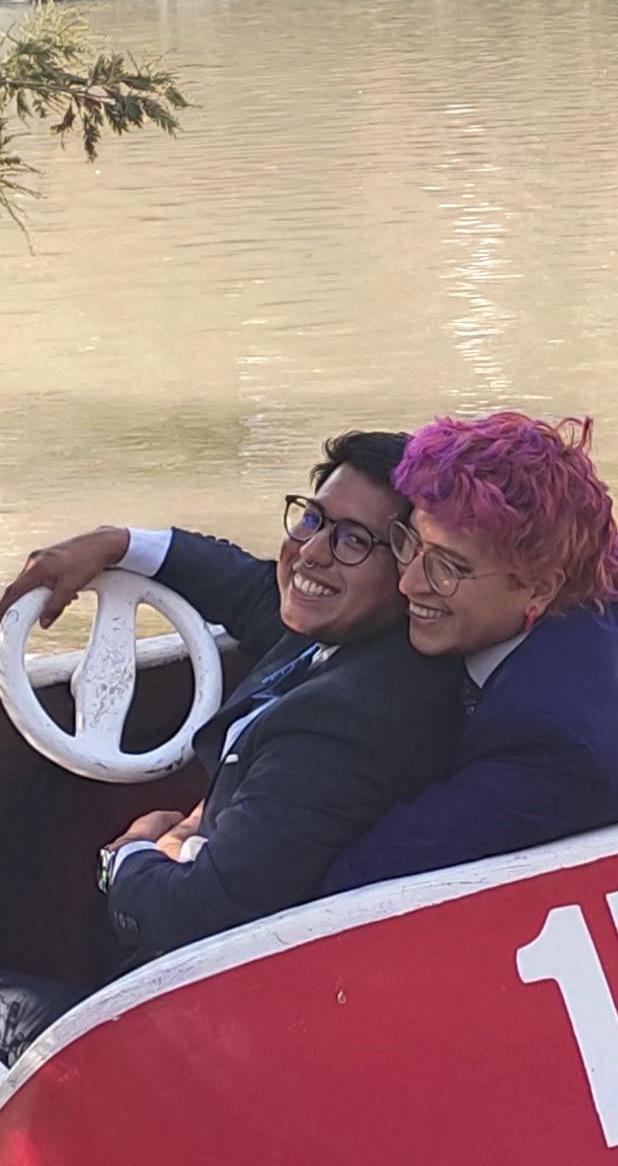
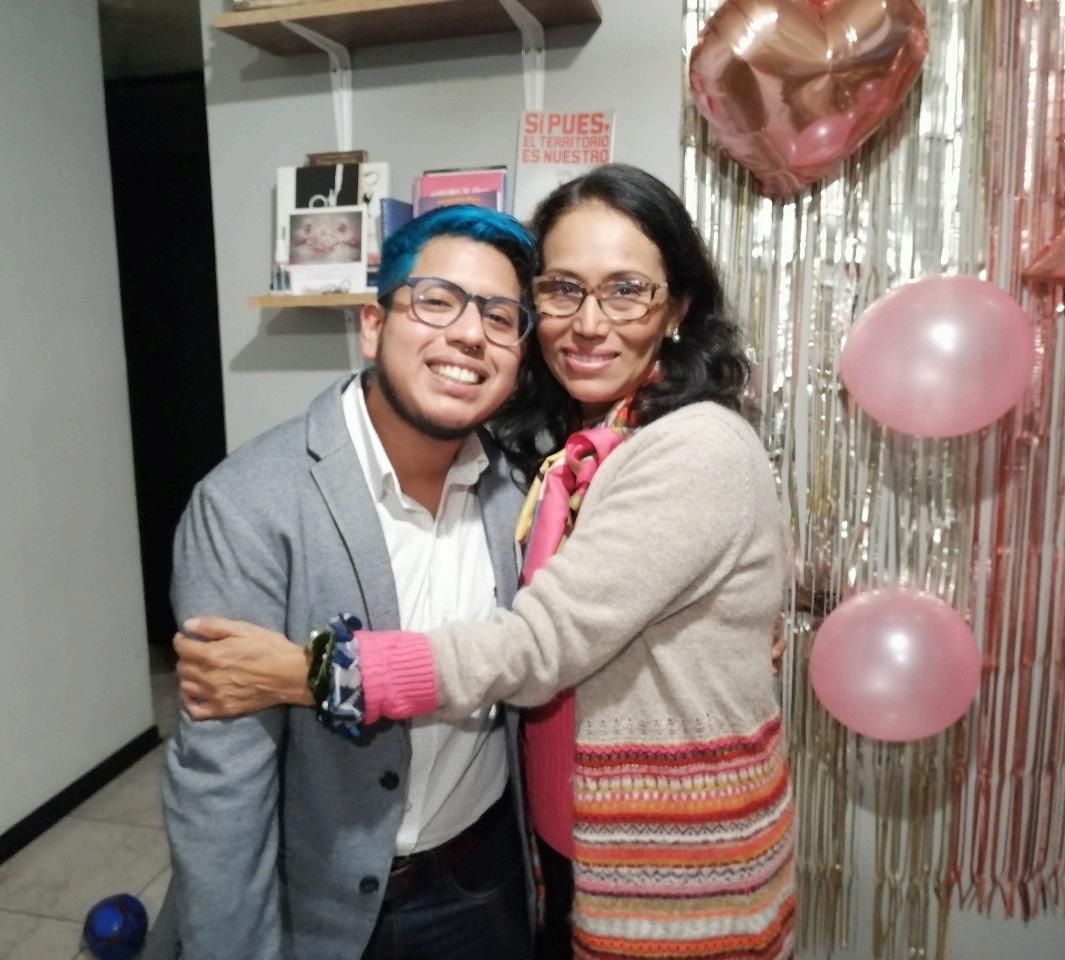
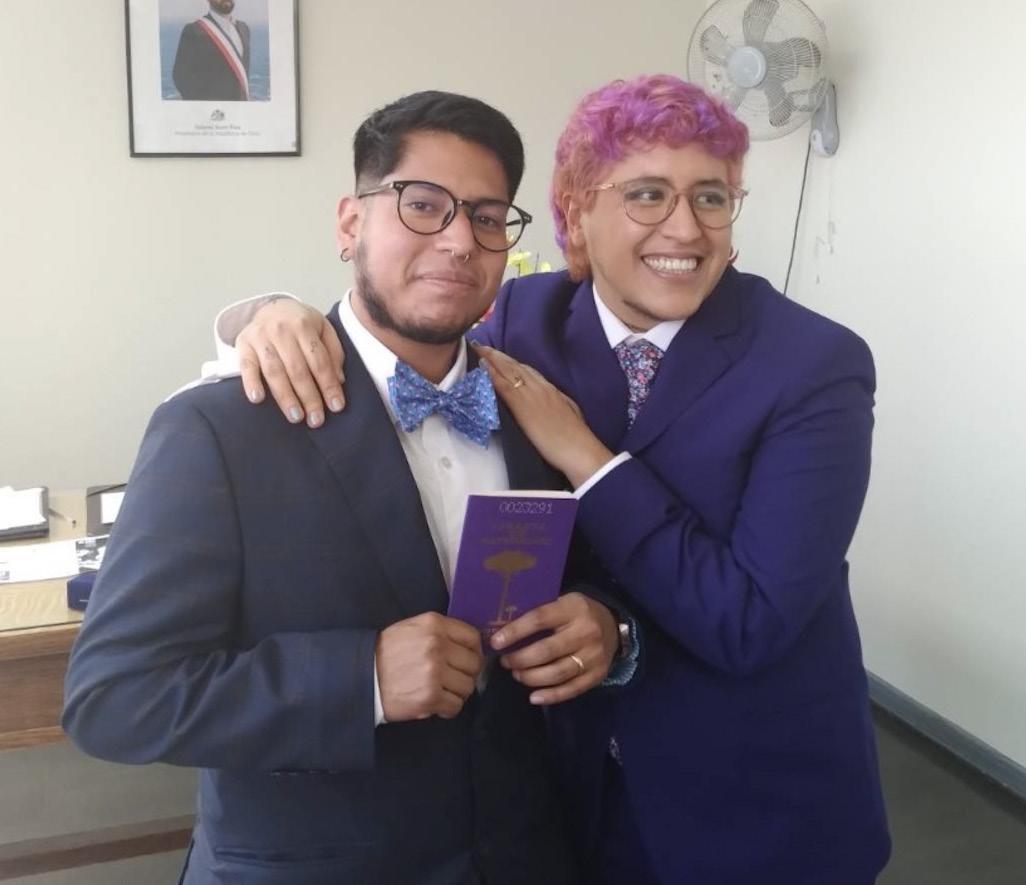
“By then, I had a crush on Ro drigo,” Marallano said. “I liked him.”
After Marallano spotted Ven tocilla at the party, a friend told them to approach Ventocilla and
Report Calls on Univ. to Expand Climate Change Offerings
BY CHRISTIE K. CHOI AND CARRIE HSU CRIMSON STAFF WRITERS
A University report issued last week called on Harvard to ex pand its climate change offerings by hiring new faculty and staff in the field and establishing a standing committee to direct the school’s efforts.
The report, titled “The Fu ture of Climate Education at Har vard University,” was written by a committee tasked with studying the school’s climate change pro gramming. The group consisted of 29 Harvard faculty members and senior teaching administra tors from across the University.
The report comes three months after Harvard an nounced plans to establish a new institute for climate and sustain ability that will serve as a hub for climate research and education.
The report offered four over all recommendations for shaping the future of Harvard’s climate education. It called for “faculty hiring, institutionalizing a stand ing committee on climate edu cation, staffing and substantially funding a climate education ac celerator program, and establish ing an external climate education advisory committee.”
The committee surveyed stu dents, faculty, and alumni and held focus groups on Harvard’s climate education. The report in cluded testimonies from current affiliates and statistics about stu dent satisfaction with the school’s current offerings.
Only 20 percent of student survey respondents “said there were sufficient opportunities to
engage with climate topics out side of class,” according to the re port.
About 80 percent of alumni respondents “expressed interest in playing a role in climate edu cation opportunities for current Harvard students,” and 90 per cent of student respondents “said they would like to engage with alumni on climate topics as part of courses or in extracurricular capacity,” the report said.
Though there are education al offerings from the Harvard University Center for the Envi ronment and several climate-re lated classes and undergraduate concentrations, “there are few clear paths for students within schools/departments or across schools to deepen their knowl edge and skill set in a structured manner,” the report said.
lege climate education require ment. Additionally, it suggested the school could “create a climate education accelerator program charged with catalyzing institu tional innovation, scaling exper tise and impact, and developing partnerships with organizations outside of Harvard.”
In addition to curricular pro gramming, the report called on the University to support oppor tunities outside the classroom.
Harvard’s upperclassmen hous es, for example, could help facili tate cross-school interactions be tween College students and other affiliates, according to the report.
In a message at the front of the document, James H. Stock, Harvard’s vice provost for cli mate and sustainability, wrote that the report “summarizes the rich offerings in climate educa tion already at Harvard and, im portantly, presents a vision of the great potential for expanding Harvard’s efforts in climate edu cation, both on campus and be yond.”
to confess their feelings for him. Marallano followed the ad vice.
“At first, he didn’t believe me,” Marallano said. “He asked me if I was kidding and I told him no, that I was serious — that I wanted to get to know him.”
During a rally for Ventocilla in Boston on Sept. 4, Vic Hogg, an HKS student in the class of 2023, said they remembered how he would openly talk about his love for Marallano.
One such time occurred during a meeting of the “queer heartbreak club,” a group formed by Hogg and some friends who were going through breakups at the time.
“We had spent all this time talking about how depressed we were and blah, blah, blah,” Hogg said with a laugh. “Then Rodrigo came over and just started talking about how fucking in love he was
with Sebastián and how he was so excited for everything that’s go ing to come and so excited for the celebration they were going to be able to have.”
After the end of the spring se mester, Ventocilla and Marallano traveled to Chile, where they mar ried on May 25.
“One of the reasons we want ed to get married — besides the fact that we loved each other — is because we wanted to have the possibility that I could go to Cam bridge,” Marallano said.
But Marallano, who lived in Peru while Ventocilla spent his first academic year at HKS, said they never got the chance to visit Ventocilla in Cambridge because they were unable to get a visa.
‘Rodri was Brave’
Colleagues from Peru and friends from the Harvard Ken nedy School remembered Vento cilla as an advocate for LGBTQ+
rights and a dedicated student who spent many hours focusing on his work.
Rocio Béjar, who was Vento cilla’s boss when he worked in the Peruvian Ministry of Econo my and Finance, said he was “pas sionate” and “a really good work er.”
Béjar said getting a mas ter’s at Harvard was Ventocilla’s “dream,” but that his goal was al ways to return to Peru.
“He wanted to return — al ways — to do something for his country,” Béjar said.
Ventocilla brought his stu dious nature to Harvard, where he would study at the Kennedy School library all the time, ac cording to Benson, who graduat ed from HKS in 2022.
“I wish we had more memo ries together because so much of the year he was in the library,” Benson said. “He studied there and he was just doing it all the time.”
Benson said that one of his fa vorite memories with Ventocilla was traveling to Palestine during spring break, which inspired Ventocilla to think about ways he could “be in solidarity with Pal estine” in his future organizing work.
“It was a really intense trip, but the one day we had that was more relaxed, we went to the Dead Sea,” said Benson, who was room mates with Ventocilla during the trip. “We swam and I got my foot all cut up, which he was so sweet about.”
During his first year at HKS, Ventocilla ran for vice president of diversity, equity and anti-rac ism in the Kennedy School’s stu dent government. In a message announcing his campaign, Ven tocilla wrote that “diversity, equi ty, and inclusion work, especial ly LGBT advocacy,” was one of his passions since college.
“Through my experience as a public sector worker and LGBT activist in Peru, I know that is sues of racism, sexism, colonial ism don’t belong at the margin, they should be the centre of what we learn and do at HKS, and after wards,” Ventocilla wrote at the time.
Ana Rocío Castillo Romero, Ventocilla’s classmate at HKS and a former colleague from Peru, wrote in a text message that Ven tocilla “always fought for his be liefs, who he was, and his right[s].”
“Rodri was brave,” Castillo wrote. “Although he didn’t make it, that didn’t stop him from his fight and ideals.”
miles.herszenhorn@thecrimson.com
Harvard Undergraduate Association Referendum Voided
BY J. SELLERS HILL AND LEAH J. TEICHHOLTZ CRIMSON STAFF WRITERS
After soliciting votes for their first-ever referendum earlier this week, the Harvard Under graduate Association announced Thursday that the results would be declared void, citing a consti tutional misunderstanding with the Dean of Students Office.
HUA Co-President LyLena D. Estabine ’24 wrote in Slack com munications over the HUA chan nel that the referendum was void because the Association had not yet appointed a student election commission, and constitutional amendments would not be con sidered again until the spring.
The decision drew ire from some students, who saw anoth er delay in an ongoing effort to es tablish a diversity, equity, and in clusion team within the HUA.
endum — a process that, accord ing to the HUA’s constitution, can be initiated by a unanimous vote of the executive board or a peti tion signed by 5 percent of the stu dent body.
Estabine and HUA Co-Presi dent Travis Allen Johnson ’24 re futed Primus’ accusations, saying they hesitated to hold a referen dum in the fall, when an incom ing DEI officer would only be eli gible to serve for one semester.
Without agreement from HUA leaders, Primus pursued a referendum via petition, host ing a public town hall meeting Wednesday evening to discuss the matter with Estabine and Johnson.
At that time, the referendum was still open, and Estabine en couraged attendees to vote in the minutes before it closed.
team. They said that you guys should definitely name a com missioner to hold the election,” Nasher said. “So I’m just confused about this gap of information.”
Estabine, Johnson, and Nash er did not come to a resolution by the meeting’s conclusion.
Dean of Students Office rep resentative Jason R. Meier did not respond to a request for com ment.
On Thursday, when Primus submitted its petition to the DSO for certification, they were told that the process should instead be handled by the HUA, accord ing to an email from Meier to Pri mus.
In the email, which was ob tained by The Crimson, Mei er said the office could not initi ate the referendum process as it would be an “administrative over-reach.”
Kevin J. O’Brien ‘74 Partner at Ford O’Brien Landy
The committee called on the University to hire more faculty in order to increase the number of advanced climate classes and im prove current offerings.
The report also said Harvard should establish a Standing Com mittee on Climate Education to advance programming, degree, and concentration offerings and explore the potential for a Col
The co-chairs of the commit tee that authored the report, N. Michele Holbrook ’82 and Dustin Tingley, wrote in the executive summary that the group’s ap proach “emphasized a process where local groups could meet with their community to under stand their needs and develop a vision to share with the larger University committee.”
“A strong and multidisci plinary educational program must be a cornerstone of Har vard’s focus on climate and sus tainability,” they wrote.
“Our conversations with the DSO left us with the impression that until an election commis sion was convened, their staff could serve in that capacity,” Es tabine wrote.
“Upon further review, we have decided, in consultation with the DSO, that the HUA must be a stu dent-led organization, including the election commission,” she added.
The debacle began on Mon day, when Primus, a campus group representing first-genera tion, low-income students at the College, went public on Insta gram with claims that the HUA had dismissed its efforts to estab lish a DEI team over the summer.
The addition of a new team requires the passage of a schoolwide constitutional reform refer
But during the meeting, both Primus and Harvard Under graduate Association leadership claimed to have received differ ent information from the DSO about the referendum, creating confusion surrounding the state of the election commission.
“In terms of what is a fact, the election commissioner is JR [Bagley] at the DSO, and we are working with him to ensure that the election is handled fairly and smoothly,” Estabine said during the town hall.
Laila A. Nasher ’25, the vice president of advocacy for Primus, said she had received conflicting information from her conversa tions regarding Primus’ petition for the establishment of a DEI team.
“The DSO said that there is an election commissioner who held [Tuesday’s] referendum and that this was not the HUA’s executive
In the wake of the Undergrad uate Council’s dissolution last spring, the Dean of Students Of fice appointed an interim elec tion commission to facilitate the election of the Harvard Under graduate Associate’s first officers, as outlined by the Association’s constitution.
According to Estabine and Johnson, an official election com mission will be formed by the end of September through applica tions selected by the executive board.
In her Thursday statement, Estabine confirmed that a ques tion regarding the formation of an “Inclusion Team” would ap pear on the Harvard Undergrad uate Association’s spring referen dum.
sellers.hill@thecrimson.com leah.teichholtz@thecrimson.com
You can’t argue that [Harvard] were the beneficiaries of the scheme instead of the victims.
“
RODRIGO VENTOCILLA a HKS student who died in police custody in In donesia last month, was remembered as a “fighter.”
BY MILES J. HERSZENHORN CRIMSON STAFF WRITER
Rodrigo Ventocilla Ventosilla, left, pictured with his spouse, Sebastían Marallano. JULIAN J. GIORDANO — CRIMSON PHOTOGRAPHER
Rodrigo Ventocilla Ventosilla, left, poses for a photograph with his moth er Ana Ventosilla. COURTESY OF THE VENTOSILLA FAMILY
Rodrigo Ventocilla Ventosilla, left, and his spouse, Sebastían Marallano.
COURTESY OF THE VENTOSILLA AND MARALLANO FAMILIES
NEWS4 SEPTEMBER 23, 2022 THE HARVARD CRIMSON
christie.choi@thecrimson.com carrie.hsu@thecrimson.com
Rodrigo Ventocilla Ventosilla 1990–2022 OBITUARY
Harvard Profs. Call for Biden to Pardon Reparations Activist
BY MILES J. HERSZENHORN CRIMSON STAFF WRITERS
Harvard professors and representatives from Black women’s rights or ganizations unveiled a petition for a posthumous presidential pardon for Callie G. House, who was described as “the foremoth er” of the slavery reparations movement during a press confer ence Wednesday.
Standing in front of a portrait of Ida B. Wells in the Harvard Kennedy School’s Fainsod Room, HKS professor Cornell William Brooks called on President Joe Biden to pardon House, saying the move was long overdue.
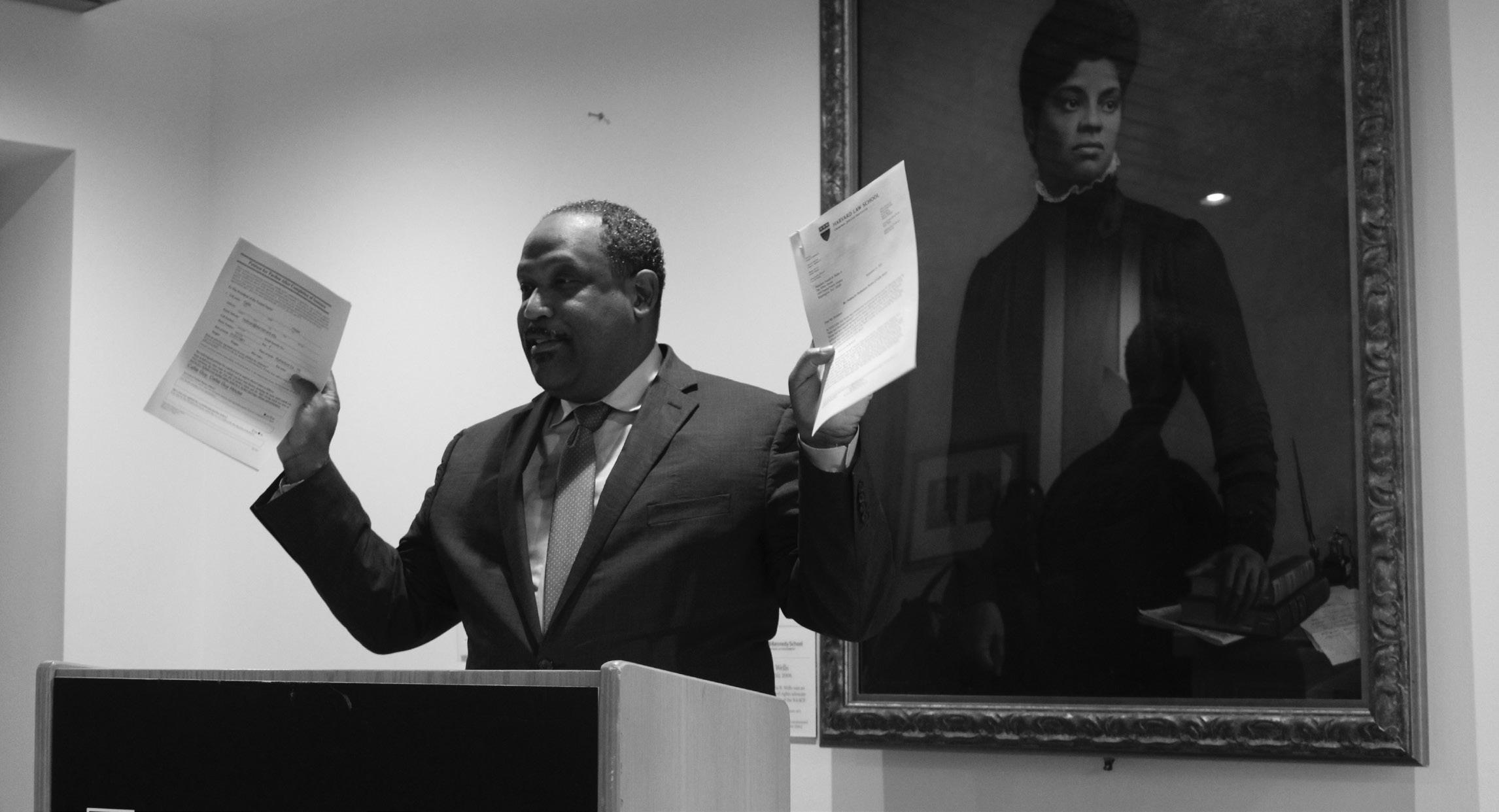
Brooks was joined by Ron ald S. Sullivan Jr., a Harvard Law School professor; Lynn V. Dymal ly, acting president of the Nation al Congress of Black Women; Er ika Swaringen-Blankumsee, a representative of the National Association of Colored Women’s Clubs; and a group of Harvard students who helped draft the pe tition.
Born into slavery in Tennes see in 1861, House later co-found ed the Ex-Slave Mutual Relief Bounty and Pension Association, an organization that lobbied the United States Congress to pro vide reparations for ex-slaves in the 1890s. At its peak, House’s or ganization boasted hundreds of thousands of members, drawing the attention of several federal agencies that aggressively inves tigated the group. With scant ev idence, House was sentenced in 1917, to a year in jail after she was convicted of mail fraud by an allwhite male jury.
“As a consequence of her advo cacy, she was targeted, charged,
convicted, and incarcerated in her own country,” Brooks said during the press conference. “So here we are, 100 years later, seek ing a pardon for a woman — the vindication of a legacy, and exon eration of history.”
Lindsey Batteast, a sec ond-year master’s of public poli cy student at the Kennedy School who worked to draft the pardon petition, said the students were inspired by how House overcame numerous obstacles in her life to become a leading figure in the reparations movement.
“There’s this saying that you die twice: one time when you stop breathing and the second time is when someone says your name
for the last time,” Batteast said. “We cannot allow for the legacy and leadership of Callie House to die.”
“Callie should be a household name without any debate,” Bat teast added. “Her legacy should be honored — not stained with an unjust conviction.”
Swaringen-Blankumsee said the reparations movement led by House “should have changed the trajectory of where we are today in this country.”
“Callie House — a true Amer ican hero — deserves to have her name spoken in great regard and reverence,” Swaringen-Blan kumsee added. “So today, we all stand before you giving Callie
Univ. Selects Student Advisors for Pres. Search
BY CARA J. CHANG AND ISABELLA B. CHO CRIMSON STAFF WRITERS
Harvard on Thursday unveiled an 18-member student adviso ry group that will counsel the search committee tasked with se lecting the University’s 30th pres ident.
The student advisory group, which will be chaired by gradu ate student Christopher H. Cleve land ’14, represents all of Har vard’s graduate schools as well as the College.
Only the College, the Graduate School of Arts and Sciences, and the Harvard Business School are represented with more than one member on the student advisory group.
Cleveland previously served on the student advisory commit tee in 2017 during the search that selected University President
Lawrence S. Bacow.
In the Thursday announce ment, Penny Pritzker, senior fel low of the Harvard Corporation, who leads the presidential search committee, said she looks for ward to working with the stu dent advisory panel and learning “about the varied perspectives of their peers.”
“Harvard is home to some of the world’s most remarkable stu dents, and it will be invaluable to benefit from the views of this group of outstanding students from across the university, as our search committee thinks about Harvard and its future leader ship,” Pritzker said.
The timing of the formation of the student advisory committee closely mirrors previous search es.
Following former University President Lawrence H. Summers’ departure from Massachusetts Hall, the 2006 search committee
appointed the first student group following a chorus of complaints about a dearth of student involve ment in the presidential search process.
The selection of the student advorsir comes roughly a month after the University announced the faculty and staff groups that will advise the presidential search committee.
Though the search committee has not provided a timeline for its process, some long-time donors and higher education experts ex pect the committee will deliver a final recommendation to the Board of Overseers by the first or second month of 2023.
Bacow and his predecessor, Drew G. Faust, were both named to the University’s top post on February 11 in 2018 and 2007, re spectively.
House the support that she re ally deserved, the voice that was stripped from her.”
Sullivan called on Biden to quickly approve House’s pardon, which he has “exclusive and near ly unfettered authority” under the Constitution to do.
“It was an awful, awful convic tion designed only to stop a rep arations movement,” Sullivan said. “It’s a horrific injustice that has to be remedied.”
The petition was sent to the Department of Justice and to the White House after the end of the press conference, according to Sullivan.
“With the stroke of a pen he can do it,” he said of Biden. “We’re
going to call on him to do it.”
In an interview on Tuesday, Brooks said he expects Biden to quickly approve House’s pardon.
“I fully expect my students and our colleagues to go to the White House to celebrate the righting of a historical wrong,” he said. “There’s no question as to the guilt of the federal government in prosecuting an entirely innocent woman.”
“President Biden has a great many difficult decisions relat ed to climate change, related to Ukraine, related to inflation, re lated to gas prices,” Brooks said. “This is not a hard decision.”
miles.herszenhorn@thecrimson.com
Zuckerberg Speaks at AI Initiative Launch
“Kempner was set up as a big bet on the students,” Zuckerberg said.
He added, “There’s a lot of dif ferent ways to do this stuff in ac ademia, but we believe students are really the ones who are going to solve the big problems here.”
Stephen Quake, Head of Sci ence at CZI, echoed Zuckerberg’s sentiments on students leading Kempner’s future and vision.
“As brilliant as the Harvard faculty are, I love my colleagues here, they’re not going to solve these problems on their own. They require the passion and cu riosity of young minds who are going to challenge, receive wis dom, and challenge the status quo,” Quake said.
The launch event also fea tured video remarks from sever al tech giants including Micro soft founder Bill Gates ’77, former chief executive officer of Google Eric Schmidt, and chief execuitve officer of Amazon Andy Jassey ’90. Gates, Schmidt, and Jassey all lauded Harvard for investing in the future of artificial intelli gence through the Kempner In stitute.
“The next generation of ar tificial intelligence requires us ing principles that our brains use for fast, flexible natural reason ing, and understanding how our brains compute and reason re quires theories developed for AI,” reads the mission statement on the Kempner Institute website.
“I am absolutely confident that in 10 to 20 years, this institute will have produced some of the great est minds in AI,” Schmidt said.
mayesha.soshi@thecrimson.com
LGBTQ+ Harvard Students Counter HCFA Speaker
BY VIVI E. LU AND LEAH J. TEICHHOLTZ CRIMSON STAFF WRITERS
Donning rainbow colors, a group of LGBTQ+ undergraduates at tended a Harvard College Faith and Action event last Friday to counter a message portrayed by the speaker that many of them deemed homophobic.
Titled “What is the Good News for my LGBTQ+ Neighbors?”, HC FA’s worship event featured Ty ler S. Parker ’17, a minister for the group who discussed his theolog ical decision to remain celibate as someone attracted to people of the same sex. In dissent, more than 20 students attended the event and hosted a panel after ward to highlight LGBTQ+ expe riences diverging from Parker’s.
Abby D. McElroy ’24, who helped to organize the panel held after the event, said it was import ant to show there are spaces that fully support LGBTQ+ Christians.
“This event is claiming to say this is the Christian good news. But actually, there’s so much Christian good news that fully af firms and so many Christian tra ditions that fully affirm and love queer people and queer identities and queer love,” McElroy said. “We want to make sure that peo ple know that, actually, a majori ty of Christians hold a very differ ent view.”
In a statement to The Crim son, HCFA co-presidents Kath erine Wang ’23 and Felix D. Perez Diener ’23 wrote that HCFA aims to “be a place where any student can become a follower of Jesus.”
“We’re not perfect, but we’re trying hard to love others the way Jesus commands us in John 15:12-13: ‘Love one another as I have loved you. Greater love has no one than this, that someone lay down his life for his friends,’” they wrote.
Elizabeth S. Propst ’23, an other panel organizer, said the LGBTQ+ students’ display was meant to be “loving and compas sionate” but also “dissenting.”
“We organized it with the in tention not to be aggressive about disrupting their event, but to let them know that we are part of this
campus,” Propst said. “Their ac tions have impacts on people and communities that can cause a lot of pain to people that maybe they are not interacting with on a reg ular basis.”
HCFA has been no stranger to controversy over the years.
In 2018, the group drew pro test for hosting an event with Jackie Hill-Perry, an outspoken critic of homosexuality. HCFA was put on probation by the Col lege less than a week later after pushing out a leader who was in a same-sex relationship.
Sarika Chawla ’23, who earli er this month denounced HCFA over a Lowell House email list, criticized the group for “tokeniz ing” its speaker at Friday’s event.
“This is a homophobic theolo gy that HCFA is pushing,” Chaw la said. “That [Parker] was told, essentially, in order to be gay, he must be single forever and not act on his queerness was particularly heartbreaking.”
racialized language.” Following the HCFA worship service, students hosted a pan el featuring four speakers who identify as LGBTQ+ and Chris tian.
“It was really important to us to lift up voices of — in this case — Christian folks who fully af firm queerness and religion, and specifically the intersections of queerness and Christianity,” McElroy said. “It was a communi ty space for folks to reflect togeth er, and we really wanted to culti vate a space that would uplift the joyful intersections.”
Still, some attendees have called for the College to place HCFA on probation once again for spreading a message they be lieve is at odds with the ideals of an inclusive campus.
“The thing that I think HCFA should face sanctions for is the fact that it’s not a welcoming or ganization to queer people,” Kate H. Travis ’22 said. “There’s a sce nario in which I might have been a part of HCFA if I had been wel comed into that community.”
Perez Diener and Wang wrote that sanctioning HCFA would be detrimental to freedom of reli gion at Harvard.
In a statement to The Crimson, Parker wrote that he “was careful to only encourage students to use Scripture to discern what Jesus might call them to embrace.”
“One thing I did say was that as a single and celibate queer Christian, I’m invited to explore all the ways to cultivate intima cy and chosen family with oth er humans beyond the norms of sex, romance, and marriage,” Parker wrote. “Queer authors have been urging queer folks to broaden their horizons for inti macy and family for decades, and I just translated that message for a Christian audience.”
“If platforming queer ideas is ‘homophobic,’ I have a different definition of the word,” he added.
Parker also wrote that being labeled as a “token” is an example of the way the “queer community often fails black folks in its use of
“We would be forced to deny what we believe the Bible says about sexuality in order to avoid probation — a chilling prece dent for freedom of religion and thought at Harvard,” they wrote.
College spokesperson Aaron M. Goldman did not respond to repeated requests for comment on the possibility of sanctions from the DSO in light of recent criticisms against HCFA.
While Brit G. Shrader ’24 dis agreed with HCFA’s messaging, they said spaces for LGBTQ+ Christian students — beyond HCFA — exist on campus.
“Your love is beautiful. It’s pre cious. And there are spaces on campus that aren’t HCFA and off campus that are completely queer and Christian,” Schrader said. “There’s so many affirming, Christian spaces for queer folks — they’re on campus, and there’s space for you.”
vivi.lu@thecrimson.com leah.teichholtz@thecrimson.com
Professor Ronald S. Sullivan Jr. speaks at a press conference at the Harvard Kennedy School calling for President Joe Biden to issue a pardon for Callie G. House. MILES J. HERSZENHORN — CONTRIBUTING PHOTOGRAPHER
NEWS 5SEPTEMBER 23, 2022 THE HARVARD CRIMSON
cara.chang@thecrimson.com isabella.cho@thecrimson.com
‘AI’ FROM PAGE 1
Christopher H. Cleveland ‘14 (chair) Esias Bedingar Jack Blank Laura S. Pesquera Colom Sarah A. Eisen Sonya Falkovskaia Caleb Kimball King ‘23 Anneka E. Kumli Max Meehan ‘16 Yinka Ogunbiyi Xavier J. Pérez Román ‘24 Natalie Sadlak Lena Shi Dustin E. Tillman Emma J. Thomas Rosa C. Vargas Jenny J. Yoon ‘23 Daniel N. T. Yue ‘16 STUDENT ADVISORY GROUP MEMBERS GSAS and HGSE GSAS and HSPH HES HSDM GSAS HGSD Harvard College HKS GSAS and HBS SEAS and HBS Harvard College HMS GSAS and HGSE GSAS HDS HLS Harvard College GSAS and HBS Brit G. Shrader ’24 Harvard College Student There’s so many affirming, Christian spaces for queer folks. “
Taxing Harvard’s Endowment
BY
In November 2017, Drew G. Faust, Harvard University’s carefully-spoken president, offered a dire warning: A Repub lican tax proposal that was pend ing in the U.S. House, she said, would be “a blow at the strength of American higher education.”
The bill, which was signed into law later that year, includ ed a provision that required doz ens of schools — including Har vard and four other Ivy League schools at the time — to pay taxes on their multi-billion dollar en dowments, a requirement they had dodged for years.
Universities had spent mil lions of dollars lobbying to kill proposals that would require them to pay taxes on their invest ment earnings. But with a chang ing political tide in Washington, they were unable to fend off the 2017 tax bill, which imposed a 1.4 percent excise tax on investment returns for private colleges and universities whose endowments exceed $500,000 per student.
Supporters say the legislation makes rich universities pay their fair share. But higher education leaders insist it has placed an un due burden on institutions that exist to promote the public good.
“Taxing charitable resourc es away from higher education institutions does not make them more affordable — it has exact ly the opposite effect,” Harvard President Lawrence S. Bacow said in May, a week after a lobby ing trip to Washington. “It makes for bad public policy.”
The tax is a drop in the buck et for Harvard’s $53.2 billion en dowment. The University’s annu al financial report for fiscal year 2019 estimated it would have to pay an additional $37.7 million in federal taxes due to the provi sion.
The amount, in thousands, of dollars, per student an en dowment must surpass to be subject to the 1.4 percent excise tax passed into law in 2017.
Harvard’s endow ment is a com plex aggregate of thousands of different funds — approximately 80 percent of which individual donors have earmarked for specific
37.7
The amount, in millions, of dollars, that Har vard projected it would have the
concerns with the bill extend well beyond tax policy.
“This is about Republican en mity toward what they believe are hotbeds of progressive activ ism,” he said.
Not ‘Rainy Day Funds’
Harvard has argued the excise tax is a blow to initiatives like fi nancial aid that promote student welfare.
Harvard’s endowment is a complex aggregate of thousands of different funds — approxi mately 80 percent of which indi vidual donors have earmarked for specific uses. The excise tax passed in 2017 requires endow ments to hand over a small por tion of each fund’s investment re turns to the federal government. As a result, Harvard says, the tax reduces its capacity to invest in important initiatives.
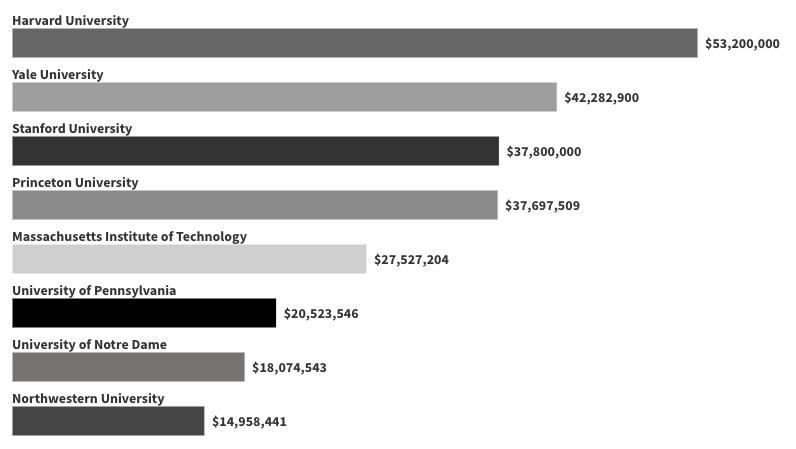
Higher education experts say lawmakers fail to recognize the reality of how university endow ments operate.
“They just think that you have these wealthy institutions that have this enormous pile of mon ey, and they think of them like a savings account,” said Steven M. Bloom, assistant vice president for government relations at the American Council on Education.
“They aren’t, and the complexity of it, I think, escapes people.”
Like many private universi ties, Harvard hires external in vestment firms to oversee the vast majority of its endowment funds, meaning the University does not have direct access to most of its assets. Each year, the endowment disperses a small fraction of its value — usually around 5 percent — for University operations.
Even for the portion of their endowments that universities can spend on a discretionary ba sis, there are better uses for the money than sending it to Wash ington, said former Vassar Col lege President Catharine B. Hill.
“When institutions have to pay this tax, it means they have that much less money to spend on other priorities or other objec tives,” she said. “To the extent that it’s spread across the institution, it’ll affect different spending lines in a budget.”
cept because a lot of people see these large pools of funds and think that they should all go to the here and now.”
But some experts say Harvard still has wide latitude over where cuts to pay for the tax could come from.
“It’s only keeping the univer sity from spending on scholar ships if the university decides that it’s going to take that money out of scholarship,” Vanderbilt Law School professor emeritus Beverly I. Moran said. “The uni versity could take the money out of something else. That’s what a budget is.”
Charlie Eaton, a sociology pro fessor at the University of Califor nia, Merced, said Harvard needs to do more to promote the inter ests of low-income students in or der to argue the tax significantly burdens its ability to support stu dent welfare.
“Harvard enrolls so many fewer students than schools with a fraction of its resources,” he said. “If Harvard really want ed to make the case that equity is compromised by the endowment tax, it would just have to enroll a lot more students from disadvan taged backgrounds than it cur rently enrolls.”
Harvard spokesperson Jason A. Newton declined to comment for this story.
A ‘Cheap Political Ploy’?
But the debate over the en dowment tax is not just about fis cal policy.
Elite schools and their endow ments have increasingly become political targets for Republican lawmakers — Harvard especial ly. In June, Fox News host Pete Hegseth mockingly scribbled “RETURN TO SENDER” on his Harvard Kennedy School degree, saying it should be named “Criti cal Theory University.”
“Republican tax policy en courages wealth. Republicans want to cut taxes for wealthy indi viduals and corporations,” Park er said. “So this completely vio lates traditional Republican tax law.”
Sandy Baum, a nonresident senior fellow at the Urban Insti tute, a Washington-based think tank, said there are merits to leg islators’ criticisms of rising tui tion costs. But political motiva tions are at play, too, she said.
“It does seem like this whole narrative of, ‘We don’t like these institutions, and we want to stop them from doing whatever they want to do because we see them as left-wing,’” she said.
But the endowment tax isn’t just red meat for the GOP base. Some Democrats have backed similar proposals in recent years — including Massachusetts’ 2018 Democratic gubernatorial nom inee, Jay Gonzalez, who cam paigned in Harvard Square on a plan that would cost the Universi ty more than $500 million.
“We live in a time that I think is a populist era, and you’re see ing attacks against institutions that are perceived as the estab lishment,” Bloom said. “So it’s not surprising that these affluent in stitutions and their endowments are subject to attack — it’s sort of a cheap political ploy.”
was signed into law in August.
But the final bill, the Inflation Reduction Act, didn’t touch the endowment tax, and schools may face long odds going forward in their effort to get rid of the policy.
“Harvard faces two problems: It faces Republicans who don’t like elite universities in general and Democrats who think that it’s perfectly OK to tax the rich a lit tle more,” Parker said. “So from a lobbying point of view, this is a substantial difficulty.”
But GOP lawmakers may face headwinds of their own if they try to expand the tax the way some universities fear, Moran said.
“You can say the right hates universities — but the right likes Wall Street, and these endow ments are very important for Wall Street,” she said. “These hedge funds make a very nice liv ing off of these endowments.”
Several lawmakers have pro posed legislation that would re peal or reform the excise tax. The Higher Education Endowment Tax Reform Act, introduced by Rep. Brendan F. Boyle (D-Pa.), would repeal the excise tax for universities that meet a threshold for spending on financial aid. But the discussion is likely dead in the water until after the November midterm elections.
“It’s not a good look to push through a tax cut for Harvard at the same time that you’re going into an election,” Eaton said.
Still, lobbying efforts are likely to continue.
“Issues are never moot in Washington,” Clark said. “All of the institutions that are impact ed by this tax here and now — or potentially impacted by it in the foreseeable future — have an in terest in talking to policymakers about what it means for their in stitution.”
Some worry the legislation is more about making a polit ical statement than it is fiscal policy — and that it could turn elite schools into more of a par tisan punching bag than they already are.
Some worry the legislation is more about making a politi cal statement than it is fiscal pol icy — and that it could turn elite schools into more of a partisan punching bag than they already are.
Thomas D. Parker ’64, an ex pert on higher education and nonprofit management, said
Far from “rainy day funds,” en dowments are designed to be in vestment tools that plan years into the future, said Liz Clark, vice president for policy and research for the National Association of College and University Business Officers.
“Endowments are unique in that they are created to provide reliable and growing funds over time,” she said. “It’s a hard con
Lawmakers have also taken aim at Harvard. In June, Senator Marco A. Rubio (R-Fla.) alleged without direct evidence that Har vard officials may have played a part in suppressing theories about the genesis of Covid-19. Lat er that month, U.S. Representa tive Gregory F. Murphy (R-N.C.) called on the school to disclose and divest its endowment from any potential holdings in Chinese companies.
Many higher education ex perts say the tax reflects discon tent with a perceived liberal bent at elite universities — rather than economic motivations. An en dowment tax, after all, is not cut out from traditional supply-side economic policy, which prioritiz es reducing taxes for the wealthy.
It’s that sentiment that con cerns some higher education ex perts, who fret that more taxes could be on the horizon.
“What they’re afraid of is that it’s the camel’s nose under the tent — that this thing could get out of control,” Moran said, “and at some point universities might be subject to the taxes that other companies are subject to.”
‘A Substantial Difficulty’
Since the passage of the 2017 bill, Harvard has helped lead the charge to repeal the endowment tax.
This summer, the Universi ty lobbied Congressional Demo crats to roll back the tax as part of a budget reconciliation bill that
No matter whether the tax is repealed or reformed in the near future, Harvard still has a re sponsibility to continue pursuing the charitable acts that exempt it from most government taxes in the first place, some experts maintain.
Tax requirements aside, Mo ran said Harvard still has a re sponsibility to invest in programs like financial aid, which exempt it from most federal taxes in the first place.
“Scholarships aren’t breaking Harvard’s back. It’s a very typi cal argument that wealthy people make,” Moran said. “‘Oh you’re taking my money in taxes — now I can’t give to charity.’”
“Everybody else pays taxes and gives to charity,” she said.
isabella.cho@thecrimson.com eric.yan@thecrimson.com
The approx imate per centage of the endowment’s value Harvard disperses every year to spend on University operations.
Steven M. Bloom American Council on Education
We live in a time that I think is a populist era, and you’re seeing attacks against institutions that are perceived as the establishment.
“
Lawrence S. Bacow policy.
SEPTEMBER 23, 2022 THE HARVARD CRIMSON
5
uses.
to pay through
excise tax in fiscal year 2019. .
500 COVER STORY6
ISABELLA B. CHO AND ERIC YAN CRIMSON STAFF WRITERS
Harvard University President It makes for bad public
“
Croatian PM Speaks at IOP Forum
New Fellows Welcomed to Radcliffe Program
Two days before Croa tian Prime Minister An drej Plenković is set to ad dress the United Nations General Assembly in New York, he gave Harvard affiliates a preview, dis cussing the global consequences stemming from Russia’s escala tion of its invasion of Ukraine at a Harvard IOP forum Wednesday evening.
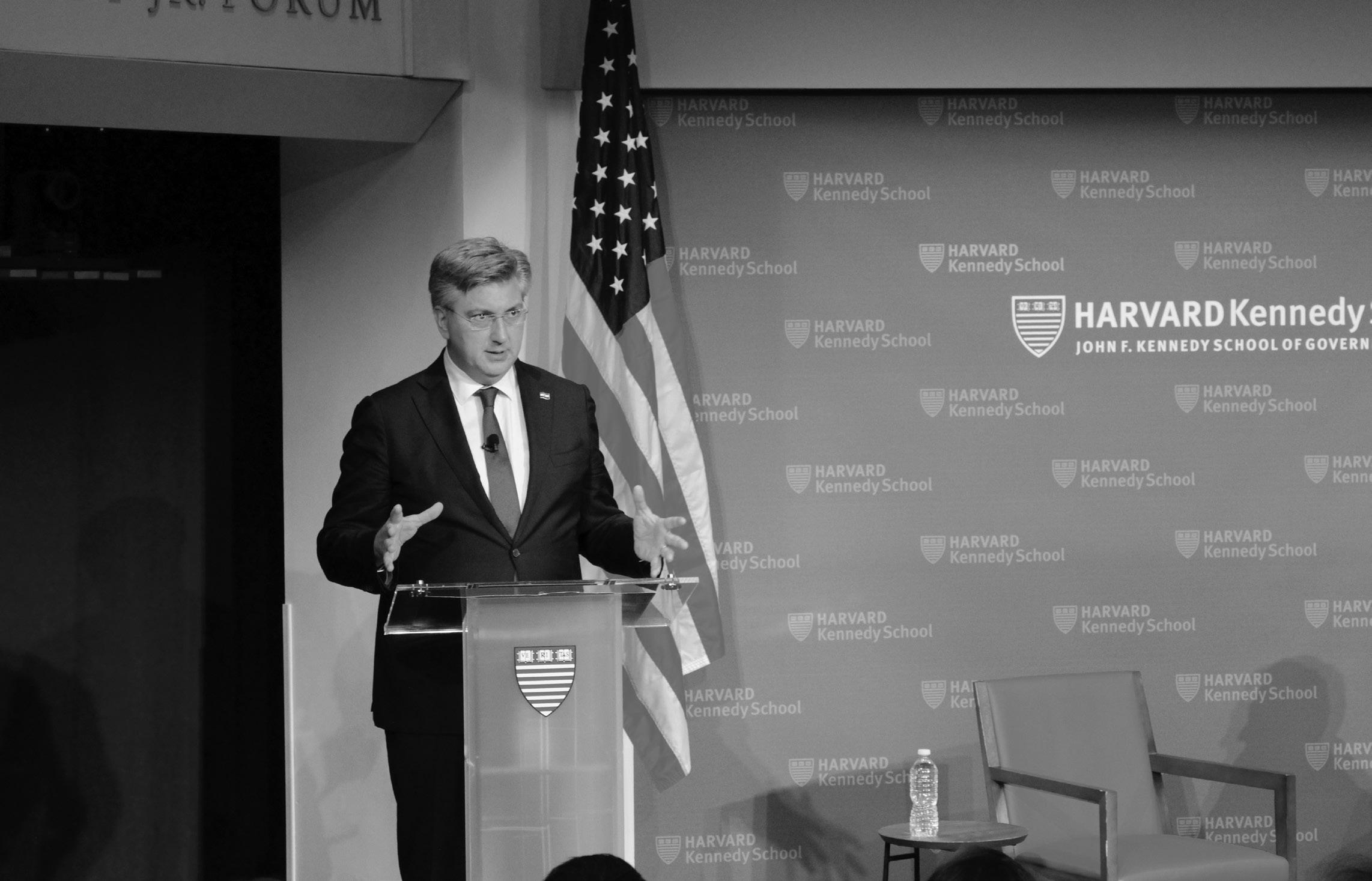
Plenković said discussions at the UN this week have centered around Russia’s war on Ukraine, which he described as an “un precedented violation of interna tional law where one permanent member of the Security Coun cil has aggressed and invaded a neighboring country, also [a] member of the United Nations.”
Earlier on Wednesday during a morning address to the na tion, Russian President Putin an nounced a “partial mobilization” of Russia’s military reservists and issued an implicit threat that Russia was prepared to use nu clear weapons against the West.
“In the event of a threat to the territorial integrity of our coun try and to defend Russia and our people, we will certainly make use of all weapon systems avail able to us,” Putin said, according to the Kremlin’s transcript of his speech. “This is not a bluff.”
Plenković said Putin’s most re cent threats “makes this moment, this UNGA week, very specific.”
“It’s not very often that we dis cuss the potential of the use of the nuclear weapons in the world,” Plenković said. “We were trying
to de-escalate, we were trying to disarm, we were trying to control — this was the objective of the in ternational community within the United Nations system.”
Russia is an authoritarian re gime that does not “really agree with the way that the world is globally governed” and takes a “conflictual” approach to world affairs, Plenković said. Croatia and the rest of the EU have relied on French President Emanuel Macron and German Chancellor Scholz to negotiate with Putin in recent months be cause they are “the two strongest and the most influential coun
tries” in the bloc, according to Plenković.
moment will come where the in ternational community might opt for someone who would be very respected from everyone — including in Moscow — as an in ternational personality who can serve as an intermediator or ne gotiator or the communicator,” Plenković said. “That is an ele ment that hasn’t been explored so far.”
Congress in New York on Friday.
“We have a dialogue with the representatives of the Jewish community in Croatia and we are in the process of trying to address this issue adequately even though many, many decades has passed,” he said.
The Radcliffe Institute for Advanced Study welcomed its new cohort of fellows last week who will tackle a range of year-long projects from waste management strategies to feminist poetry.
The Harvard Radcliffe In stitute Fellowship Program “offers scholars and practi tioners in the humanities, sci ences, social sciences, and arts” the opportunity to con duct research at Harvard. This year’s cohort includes fif ty fellows and four graduate student fellows from fourteen countries.

Throughout the academ ic year, fellows will carry out projects across various dis ciplines. Projects chosen by the new fellows include con structing a robotic fish to bet ter understand fish behavior, researching medical technol ogy for chronic disorders, and creating a music series based on models like stock index es and animal migration pat terns.
Athena Q. Ye ’23 and Chibui ke K. “Chibby” Uwakwe ’23 were named First and Second Mar shals, respectively.
Ye, who received the news of her selection at swim practice, wrote in a statement that she was “extremely grateful and blessed for this opportunity.”
“Not only did I feel thankful for the people who voted for me during the election, but I also felt so supported by those I’ve formed connections with these past 3 years,” Ye wrote. “The people of
But Plenković said the format for negotiating with Russia might change in the future.
“I personally think that the
Plenković also responded to a question from an audience member about the restitution of property that belonged to Jew ish victims of the Holocaust from Croatia, saying he will meet with the leader of the World Jewish
“I think there is a lot of good will on our side not only to engage into meaningful talks, but to de liver on symbolic gestures that would at least provide some sort of a compensation for the wrong doings of those who did it almost 80 years ago,” Plenković added.
miles.herszenhorn@thecrimson.com
Lisa I. Iezzoni, a Harvard professor and new fellow, at the Radcliffe Institute of Ad vanced Study looks forward to working on her project, which will focus on at-home support for individuals with disabili ties.
“I am going to be working on a project about the pro fessional support that peo ple with significant disability might need to be able to con tinue living in their homes rather than being put into nursing homes,” Iezzoni said.
University of Chicago pro fessor Brodwyn M. Fischer ’91, another fellow at the Radcliffe Institute, said she is excit ed about the diversity of this year’s class of fellows.
in this role and work with Athe na and also work with the Alum ni Association to have super great reunions,” Uwakwe said. “These reunions are really important for us to build a class identity.”
Program Marshals, who place third through eighth in the elec tion process, are tasked with or ganizing class and alumni activ ities.
“Being able to take a moment and help celebrate our class, and just making sure that all of our unique experiences can contrib ute to Harvard’s future — it’s just really amazing,” said Esther J. Xiang ’23, a program marshal.
In addition to the eight elected marshals, six seniors, appointed as Gift Marshals by the Harvard College Fund, are responsible for the Senior Gift Campaign.
“Being a class marshal — or being a gift marshal, or being on the Class Committee in gen eral — means that you really get a chance to talk to people about their lives and really stay in touch after you graduate in a way that I’m really lucky to be able to expe rience,” Bowley said.
In the coming weeks, the class marshals will interview candi dates to make up the remainder of the Senior Class Committee: the secretary, treasurer, media team, and house representatives.
The full list of seniors select ed as members of the Senior Class Committee is below:
First Marshal Athena Q. Ye ’23 (Leverett)

“There’s a lot of racial and ethnic diversity, there’s a lot of international fellows, there’s a huge diversity of disciplines,” Fischer said. “And there’s also a huge diversity of genera tions.”
Fischer praised the fel lowship program for bring ing together a group of profes sionals who are “so different from one another” and eager to hear each other’s perspec tives.
“One of the things that’s re ally special about this fellow ship is that it’s one of the few places that I’ve ever experi enced where a group of adults — that don’t have a lot in com mon in terms of their work — come together and are actu ally really curious about each other and really want to en rich each other’s work and learn about it,” she added.
Harvard is what makes this place special. I can’t wait to do them proud.”
Uwakwe, a Crimson Arts edi tor, said he is excited to “make up for lost time” for students in the Class of 2023 — the only cohort the University did not invite back to campus when classes went on line in the 2020-2021 academic year.
“This role isn’t just for senior week, it’s not just for when we graduate, it’s definitely long term. And I’m really excited to function
“The hope is that each senior will make a small contribution to the Senior Gift Campaign, which essentially goes to the Harvard College Fund and is used for var ious projects across the college from funding Brain Breaks to helping with financial aid,” said Mustafa Ansari ’23, one of six gift marshals.
Jonathan Z. Zhang ’23 said his role as gift marshal entails work ing with the Harvard College Fund to encourage members of the Class of 2023 to begin a “cul ture of giving back.”
Natalka A. Bowley ’23 said she most looks forward to interacting with members of Class of 2023 through her role as gift marshal.
Second Marshal Chibuike K. “Chibby” Uwakwe ’23 (Eliot)
Program Marshals Kyle J. Lee ’23 (Kirkland)
Sebastian J. Pereira ’23 (Mather)
Daniyal Sachee ’23 (Mather)
Calliste A. O. Skouras ’23-’24 (Leverett)
Choetsow Tenzin ’23 (Lowell)
Esther J. Xiang ’23 (Adams)
Gift Marshals
Mustafa Ansari ’23 (Currier)
Natalka A. Bowley ’23 (Winthrop)
Kathryn L. Hodakowski ’23 (Eliot)
Priyanka Kumar ’23 (Lowell)
Jessica Liu ’23 (Eliot)
Jonathan Z. Zhang ’23 (Lowell)
Fellows at the Radcliffe In stitute for Advanced Study also said they are eager to participate in the Radcliffe Research Partnership pro gram, which pairs them with Harvard undergraduates.
Throughout the year, the un dergraduates will assist the Radcliffe fellows with their research and receive mentor ship.
“I find that having stu dents engaged in the research project is really challeng ing because often they ask good questions and look at the problem differently,” said Radcliffe fellow Christina L. Davis ’93, a Harvard profes sor.
“I think that the Radcliffe Research Partnership is a re ally valuable program for stu dents to get a chance to engage in research and be part of the process,” she added.
Iezzoni said the program has exposed her to “new ways of thinking and new attitudes” so far, adding that she aims to leave her comfort zone during her time at the Radcliffe Insti tute.
“All I can say, a week in, is that my head is spinning — but in a very good way,” she said.
Prime Minister of Croatia Andrej Plenković spoke about Croatia’s recent status as a fully integrated member of the EU at an IOP forum. CORY K. GORCZY
CKI — CRIMSON PHOTOGRAPHER
IOP
ON WEDNESDAY, Cro atian Prime Minister Andrej Plenković spoke about Russia’s invasion of Ukraine at an IOP forum.
BY MILES J. HERSZENHORN CRIMSON STAFF WRITER
Fourteen seniors were an nounced Thursday as senior class marshals for the Class of 2023.
The marshals, who together comprise the Senior Class Com mittee, are responsible for or ganizing class-wide events un til Commencement in May. The committee also coordinates the Senior Gift fund and plans post-graduation reunions.
After two rounds of elections,
Andrej Plenković Croatian Prime Minister
It’s not very often that we discuss the potential of the use of the nuclear weapons in the world.
BY CAROLINE E. CURRAN CRIMSON STAFF WRITER
NEWS 7SEPTEMBER 23, 2022 THE HARVARD CRIMSON
Ye to Serve as Class of ’23 First Marshal Athena Q. Ye ’23, left, and Chibuike K. “Chibby” Uwakwe ’23. COURTESY OF ATHENA Q. YE AND CHIBUIKE K. “CHIBBY” UWAKWE COLLEGE BY VIVI E. LU CRIMSON STAFF WRITER vivi.lu@thecrimson.com The Crimson thecrimson.com Pictures worth a thousand words.
“
caroline.curran@thecrimson.com
A Problem?
BY THE CRIMSON EDITORIAL BOARD
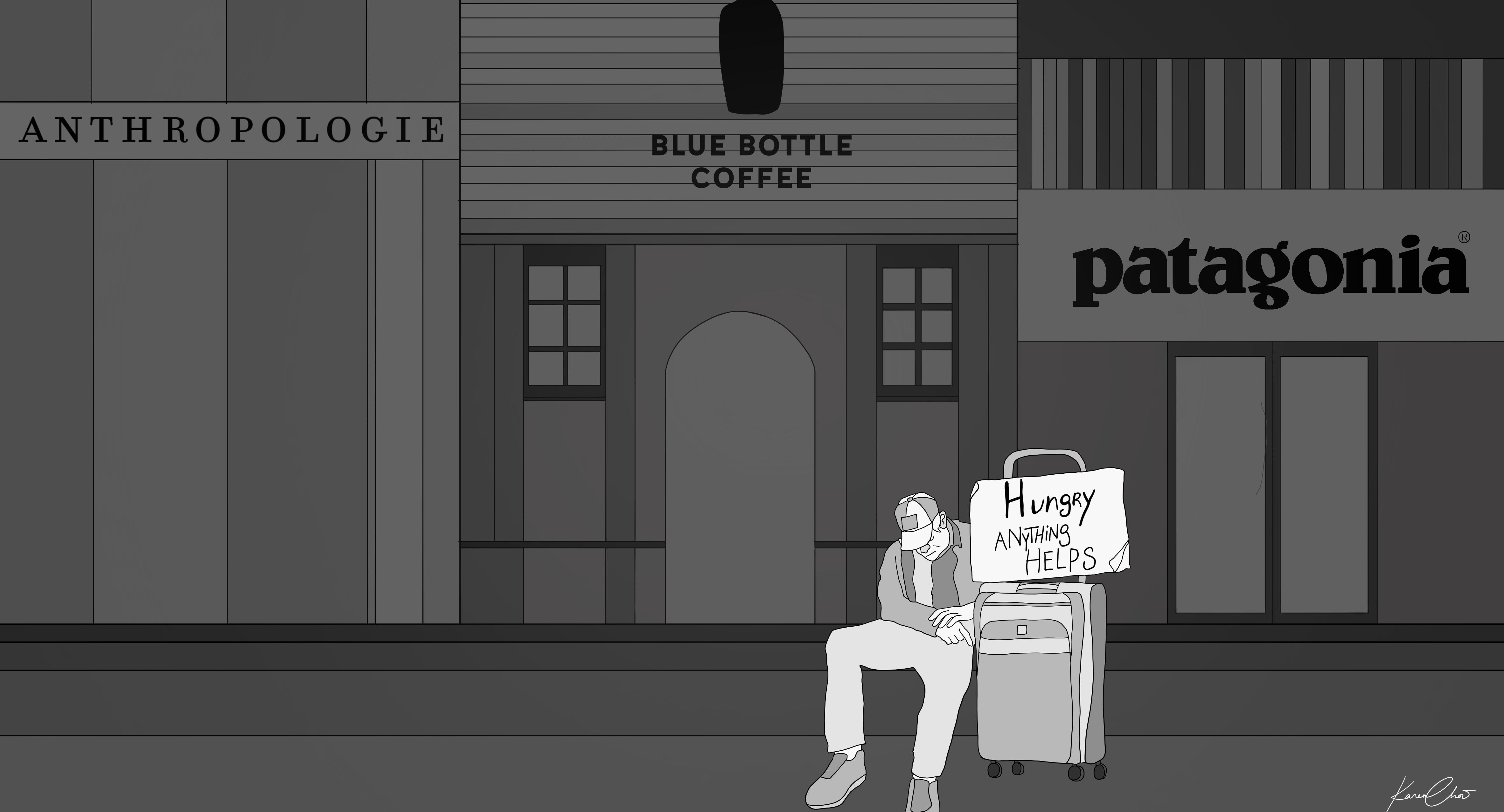
This past July, The Crimson released the fifth installment of its Harvard faculty survey, diving (not so deep) into our professors’ ideological leanings.
For the umpteeth time, and perhaps to no one’s surprise, the vast majority — 82 per cent — of respondents identified as “lib eral” or “very liberal.” Only 1 percent of respondents identified as conservative; exactly zero faculty members chose the “very conservative” label.
The talking point seemed, for once, to match reality: Academia was festering with liberal bias. An elated Fox News ran a feature on the poll (never, rather rudely, crediting The Crimson by name); a Nation al Review columnist used the survey to ar gue that conservative perspectives in the country were being “ignored” or “routine ly trashed.”
But does our faculty’s ideological slant represent a genuine, practical problem?
For Government professor Harvey C. Mansfield, the answer is a resounding yes. Mansfield, who fancies himself one of the last conservatives on campus, has ar gued at length that the lack of conservative voices on campus poses a serious issue. In
Mansfield’s eyes, his colleagues are either oblivious to how “Harvard is mocked by half the country” for its public and gratu itous ideological bias or willing to self-cen sor their views to fit in.
The resulting absence of conservative voices poses, in his view, a substantial ob stacle to both Harvard’s “impartiality and its devotion to veritas.”

We emphatically agree with Mansfield that debate and discourse are central to a vibrant intellectual community: Produc tive disagreement is the lifeblood of aca demia. Exclusive, unfounded adherence to any academic orthodoxy runs counter to our pursuit of veritas. Where our board disagrees with Mansfield — and rather sharply, we may add — is in his notion that a more even distribution of faculty along a conservative-liberal binary would in crease productive disagreement in any meaningful way. We find little reason to believe that. In fact, boiling down ideological and intellec tual diversity to such limited labels strikes us as downright reductive.
At first look, the overwhelming major ity of faculty identification as “liberal” or “very liberal” can be misleading, not least because less than a third of all faculty mem bers fully completed the survey. These sta tistics suggest, on some level, that the ma jority of Harvard faculty agree on most if not all issues — that they all checked ex actly the same boxes on some sort of ideo logical test. Such an interpretation is far from the case: While some degree of over lap is likely, self-identifying with a particu lar label hardly entails complete ideologi cal symmetry. Disagreements in practice, if not on paper, are common, particular ly when the labels span such broad polit ical swaths. Options like ‘very liberal’ pi geonhole varied perspectives, funneling everything from hardcore Democrats to anarchist thinkers into a single monolith
ic identity.
Moreover, even professors with paral lel political views might find themselves at odds in debates that are more directly re lated to their field: unwilling to disagree on abortion rights but eager to dispute the other’s interpretation of some empiri cal paper or set of data. Not all intellectual conflicts occur on the conservative-liber al — or, to all effects for American politi cal media, Republican-Democratic — axis. The labels employed by the survey are lim ited in nuance and content; the relevance of our faculty’s concentrated selection of some over others is thus only limitedly re vealing.
It is not this concocted notion of “diver sity” we should concern ourselves with, but rather the actual quality and quanti ty of rigorous on-campus debate. In order to have open and honest discussions, indi vidual opinions should be judged on their merits, not by the labels of those who hold those views.
Therefore, we should assess our cam pus climate by how well it lives up to our institutional mission of truth and scholar ship. Can students and faculty engage with one another’s ideas substantively, candid ly, and constructively? Do our disagree ments reflect genuine attempts to find answers? Can we take individual ideas se riously without conflating them with en tire ideologies?
If conservative faculty feel underval ued or dehumanized by their peers in a way that affects their scholarship, that is an unquestionable problem. We find little evidence beyond Mansfield’s generic com plaints that such a situation is actually the case; still, it should be seriously engaged with, lest our group biases render us exces sively dismissive.
That doesn’t mean that Harvard ought to go on a hiring spree through red Amer ica on some wild goose chase for “political
balance.” When Harvard seeks professors and guest speakers, its institutional obli gation should be to reach out to those who are at the forefront of their fields and can contribute substantially to our intellectu al community. It is not, by any means, ob ligated to satisfy some absurd ideologi cal quota for the sake of avoiding clickbait headlines about “left-wing bias.” Mans field’s suggestion that the University select Commencement speakers of conservative leanings every other year strikes us as bi zarre and unnecessary, a prioritization of intellectual difference over quality.
Novel and diverse perspectives are in herently essential to generating academ ic excellence, but there is no merit in being contrarian simply for the sake of it — those who forsake truth and good faith to argue the pseudo-scientific basis for racism, mis represent historical facts, or deny climate change do not further Harvard’s mission of Veritas.
Our campus and our truth-telling mis sion have no use for climate change de niers anymore than they have for Holo caust deniers.
We — professors, students, and com munity members alike — all have a role to play in cultivating a space for the intellec tually challenging, good-faith discussions we want to participate in. Our campus cul ture is what we make of it. Instead of falling into the trap of labels, hear ideas for what they are — and make sure to probe them sharply.
This staff editorial solely represents the majority view of The Crimson Editorial Board. It is the product of discussions at regular Editorial Board meetings. In order to ensure the impartiality of our journal ism, Crimson editors who choose to opine and vote at these meetings are not in volved in the reporting of articles on sim ilar topics.
SEPTEMBER 23, 2022 THE HARVARD CRIMSONEDITORIAL8 STAFF EDITORIAL
Liberal
IT IS NOT THIS CONCOCTED NO TION OF “DIVERSITY” we should concern ourselves with, but rather the actual quality and quantity of rigorous on-campus debate. Submit an Op-Ed Today!
OP-ART The anti-homeless architecture of Harvard Square. KAREN CHOI — CONTRIBUTING OPINION DESIGNER
FUTURE IN PROGRESS
Before the Bombs Fall
BY LINA H. R. CHO
In 1932, science-fiction author and social critic
H. G. Wells took to BBC Radio and began to tell the future.
Soon, he predicted, anyone would be able to “pack up a parcel of explosives or poison gas or incendiary matter or any little thing of that sort and send it up into the air to travel to just any chosen spot in the world and drop its load.”
herent fantasy. Instead, I hope to provide some food for thought about where our present ends and our future begins.
According to Hal Hershfield, an associate professor of marketing, behavioral decision making, and psychology at UCLA who agreed to speak with me over Zoom, the relationship be tween our present and future selves may be more uncertain than we think.
Hershfield’s research suggests that the neu ral patterns that are evoked when considering our future selves often more closely resemble the neural patterns evoked by considering other people than when considering our current selves — one could say that we often treat our distant selves as if they’re strangers.
By contrast, when we perceive our current selves as continuous with our future selves, we experience an emotional sense of connection that correlates with long-term exercise, sav ing, and potentially even more ethical behavior. Hershfield suggested that I could try to actively draw my future self closer to who I am now by writing letters to and from my future self or wit nessing simulations of aged-up versions of my self in virtual reality.

It seems like building a good future will re quire concretely envisioning our future selves, dilemmas, and decisions. Then, we can connect those projections to our present selves and ac tions.
I RESENT THE QUEEN BECAUSE, WHEN KASHMIRI PEOPLE DIE, THERE IS NO SPACE IN THE PAST FOR THEM. WHEN KASHMIRI PEOPLE DIE, THEY JUST DISAPPEAR — NO TEN DAYS OF MOURNING, but just ten more days, months, years, and centuries of the same, endless nightmare of occupation. But these histories are not forgotten; they are erased. Harvard, in particular, knows well the violence inflicted by its own effaced colonial histories, as well as the promise of decolonial knowledge production.
BY SAMEER M. KHAN
Iimagine that hearing of the death of Queen Elizabeth II must have been a paralyzing mo ment for citizens of the United Kingdom, a collective experience so totalizing that the King dom’s ten days of mourning just might not suffice to properly memorialize her tremendously long rule.
After all, the world she departed has aged quite a bit since she assumed her reign in 1952, exactly 70 years ago.
But for me, the Queen’s death — her ability to now peacefully populate the pages of histo ry — solemnly reminds me that time can be too kind to institutions of power and their agents; that for the Queen to now inhabit the past is a privilege which her colonial subjects, tortured well into the present by the consequences of British imperialism, will never hold.
ed into the grooves of its colonial imagination. It was Queen Elizabeth’s Britain that trivialized the self-determination of the Kashmiri people, deft ly dangling above their heads the fantasy of con ducting a plebiscite in Kashmir that would de termine whether the region would join India or Pakistan or become its own internationally-rec ognized state.
“I only wish to puncture this protective veil we seem to cast on figures of history, who, upon their death, are allowed to luxuriate in the past, untouched and beautified.
Wells found it absurd that hundreds of thou sands of students and professors were working diligently on records of the past while nobody worked full-time on estimating the impacts of new inventions and technologies.
“There is not a single Professor of Foresight in the world! But why shouldn’t there be?” he asked. “Will there be no Foresight until those bombs be gin to rain upon us?”
Ninety years later, many of Wells’ prophecies have come true, but his warnings remain most ly ignored.
Many government agencies and companies scramble to anticipate the future — not until 2018 did the U.S. Government Accountability Of fice create a center that identifies trends affect ing policymakers, for example — yet only a smat tering of academic programs research and teach necessary skills to navigate the complexity and uncertainty of the future.
More often, I hear “the future” used as a buzz word to advertise upcoming products in “the fu ture of work” or “innovation” or “cancer thera peutics.”
Both collectively and individually, we must start deliberately interrogating the future. What do we make of this ongoing verb tense? How dif ferent are our visions, and how might we medi ate the differences between them? How ought we think about what a good future would look like, for ourselves and others? And how much does our future-imagining influence our future-mak ing?
How can we more concretely envision the fu ture? Various future studies techniques can help, whether in policymaking or our personal lives. “Backcasting,” for example, asks us to define cri teria of a desirable future and then work back wards to specify which programs and actions best achieve those criteria; “horizon scanning” presses us to detect and communicate budding needs or threats. Both techniques draw our dis tant selves closer.
In particular, it is a luxury the people of Kash mir — my people, forever shackled to her memo ry — will never hold.
And while the Queen likely forgot Kashmir by the end of her life, the people of Kashmir will not be spared from remembering her name and the suffering she sowed in their land.
Although the Partition of India, Pakistan, and Kashmir in 1947 — a treacherous bloodbath ar chitected by the British that claimed the lives of approximately one million people — predated the Queen’s rule, the Indian subcontinent was still well-inscribed within Britain’s colonial play book.
Indeed, the nations born of Partition hard ly belonged to themselves. India and Pakistan did not triumph post-1947 as paradises of inde pendence; rather, the footprints of the British who had so callously mapped borders and bod ies in the Indian subcontinent against each oth er based largely on religious demographics were not only visible, but also alive. Manufactured by Partition were not new nation-states, but still-breathing artifacts of British coloniality.
To this day, almost a century after Britain’s 1948 United Nations Security Council vote in its favor, such a plebiscite has never been held. And it was Queen Elizabeth who considered her po litical interest in the Indian subcontinent one of “noninterference,” which, frankly, makes me chuckle — because what is more invasive and po litical than colonialism?
But despite the violence she engineered in my homeland, I do not wish Queen Elizabeth pain in death.
I only wish to puncture this protective veil we seem to cast on figures of history, who, upon their death, are allowed to luxuriate in the past, untouched and beautified.
In Kashmir, there is no such thing as the past. Genealogies of occupation in the Kashmir Valley can be traced to the late-sixteenth century, when Sultan Yousuf Shah Chak — the final indigenous ruler of Kashmir — was deposed by the Mughal emperor through a trick of deception now all too familiar to the Kashmiri eye: settler-colonialism, disguised as a call for peaceful negotiations.
A decade ago, UNESCO, the United Nations agency which aims to foster peace through the creation and sharing of knowledge, began to teach “futures literacy” as an essential 21st cen tury skill. In UNESCO’s “Future Literacy Labora tories,” participants walk through their explic it assumptions and hopes about the future and then critically imagine and evaluate alternative scenarios.
One Laboratory, for example, brought to gether Egyptian students to imagine shock-resil ient wellbeing in 2050, while another assembled Finnish researchers to discuss safety and net works in future cities.
So, let’s think through the years together. I still find it incredible that Cleopatra lived closer to the iPhone launch than to the building of the Great Pyramids.
In the next 2,000 years of human existence, what will become of, say, biotechnological war fare, academic institutions, consumer protec tion, the concept of aging, the practice of data collection, our relationship to non-human life, or what it means to be happy?
Such answers will not come easily. Imagin ing and developing the future requires futur ists trained in sociology and evolutionary biolo gy and game theory and empathy, and it requires us to all seriously interrogate our visions and val ues.
It was Queen Elizabeth’s Britain that trivialized the selfdetermination of the Kashmiri people, deftly dangling above their heads the fantasy of conducting a plebiscite in Kashmir that would determine whether the region would join India or Pakistan or become its own internationally-recognized state.
What had been performed as a profound ges ture of decolonization on the international stage had instead only reproduced the horrors of Brit ish imperialism.
Kashmir, in particular, became the connec tive tissue that Britain leveraged to maintain and tighten its colonial gaze in the Indian subconti nent — and, most remarkably, it became the big gest loser in this imperial exchange.
Colonization in Kashmir is uniquely embod ied. From the toppling of the Shah dynasty to the Valley’s infamous reputation as the most milita rized region today, settler-colonialism has crys tallized in the bodies of every Kashmiri.
For us, one occupier is no different than the other, no history more past than the other. Life in Kashmir bends time and space — and to breathe in Kashmir is not to inhale, but to gasp for air, for relief.
I resent the Queen because, when Kashmiri people die, there is no space in the past for them. When Kashmiri people die, they just disappear — no ten days of mourning, but just ten more days, months, years, and centuries of the same, endless nightmare of occupation.
But these histories are not forgotten; they are erased. Harvard, in particular, knows well the vi olence inflicted by its own effaced colonial histo ries, as well as the promise of decolonial knowl edge production — knowledge committed to deconstructing our sanitized public memory and honoring the silenced victims of colonial ism.
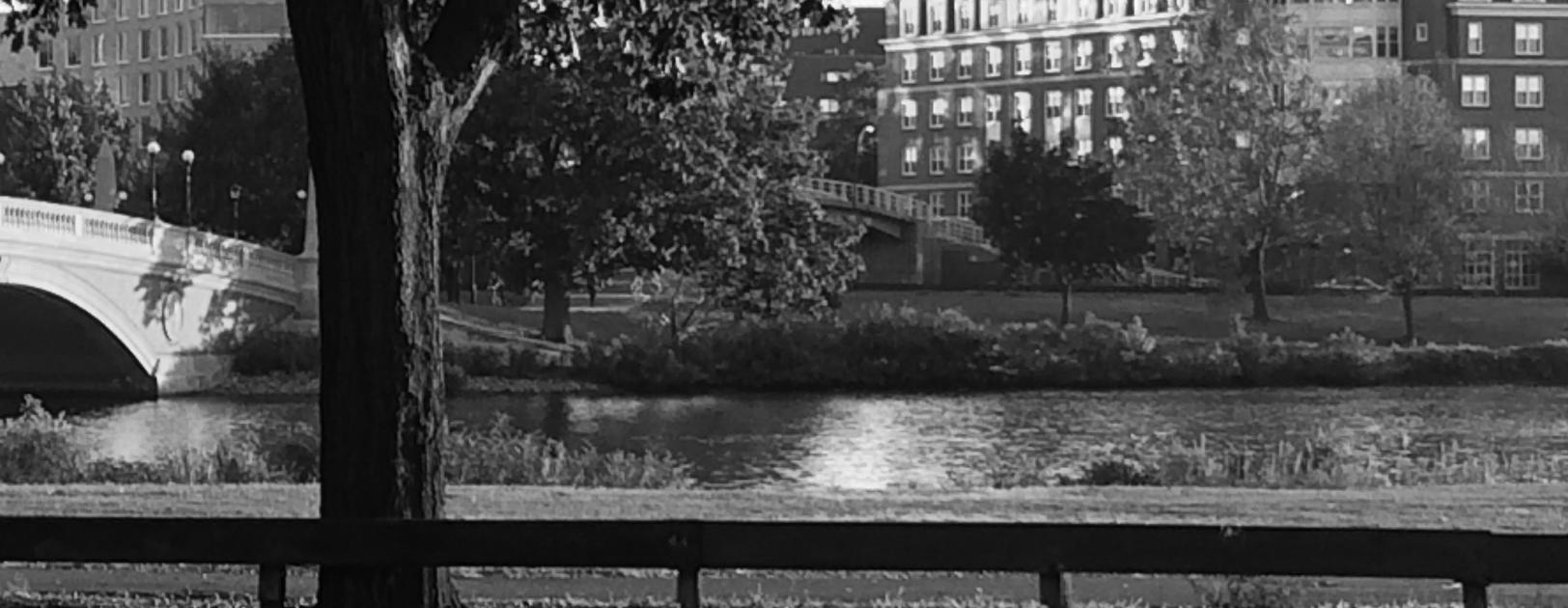
Harvard must expand its probing into colo nial encounters, though, beyond its gates. From Harvard to Kashmir and beyond, it is through this kind of counter-hegemonic engagement with institutions of power that we may learn, for once, to empower communities like the Kashmi ri people.
Over the course of this column, I will inter view University professors, professional think ers, and a broad array of other citizens to collect visions of what’s to come 10, 100, 1,000, and 10,000 years from now.
Their insights are bound to weigh different priorities, and I won’t try to mold them into a co
Our future is a work in progress, and we can not wait for the bombs to rain upon us.
—Julie Heng ’24, a Crimson Editorial editor, is an Integrative Biology and Philosophy concen trator in Kirkland House. Her column “Future in Progress” appears on alternate Mondays.
It was Queen Elizabeth’s Britain that had con solidated tensions between India and Pakistan by inflaming and prolonging both states’ colo nial dreams of acquiring Kashmir, all with no in tention to formally intervene in fears of losing economic support in the region.
Indeed, to the British, Kashmir was not a peo ple to protect or a land to be liberated — it was a political balancing act, lives cruelly contort
And it is through this radical attempt at un learning that we may no longer worship a wom an who, before she became a queen, bled the col or of a colonizer.
““There is not a single Professor of Foresight in the world! But why shouldn’t there be?” he asked. “Will there be no Foresight until those bombs
“
—Sameer M. Khan ’24, a Crimson Editorial edi tor, is a History of Science and Social Anthropol ogy concentrator in Adams House. the this what’s to come 10, 100, 1,000, and 10,000 years from now.
“
It seems like building a good future will require concretely envisioning our future selves, dilemmas, and decisions. Then, we can connect those projections to our present selves
God Save the Colonizer SEPTEMBER 23, 2022 THE HARVARD CRIMSON EDITORIAL 9 OP-ED
COLUMN
The Crimson @CrimsonOpinion Over
course of
column, I will interview University professors, professional thinkers, and a broad array of other citizens to collect visions of
“
City Votes on Pregnancy Centers
BY ELIAS J. SCHISGALL CRIMSON STAFF WRITER

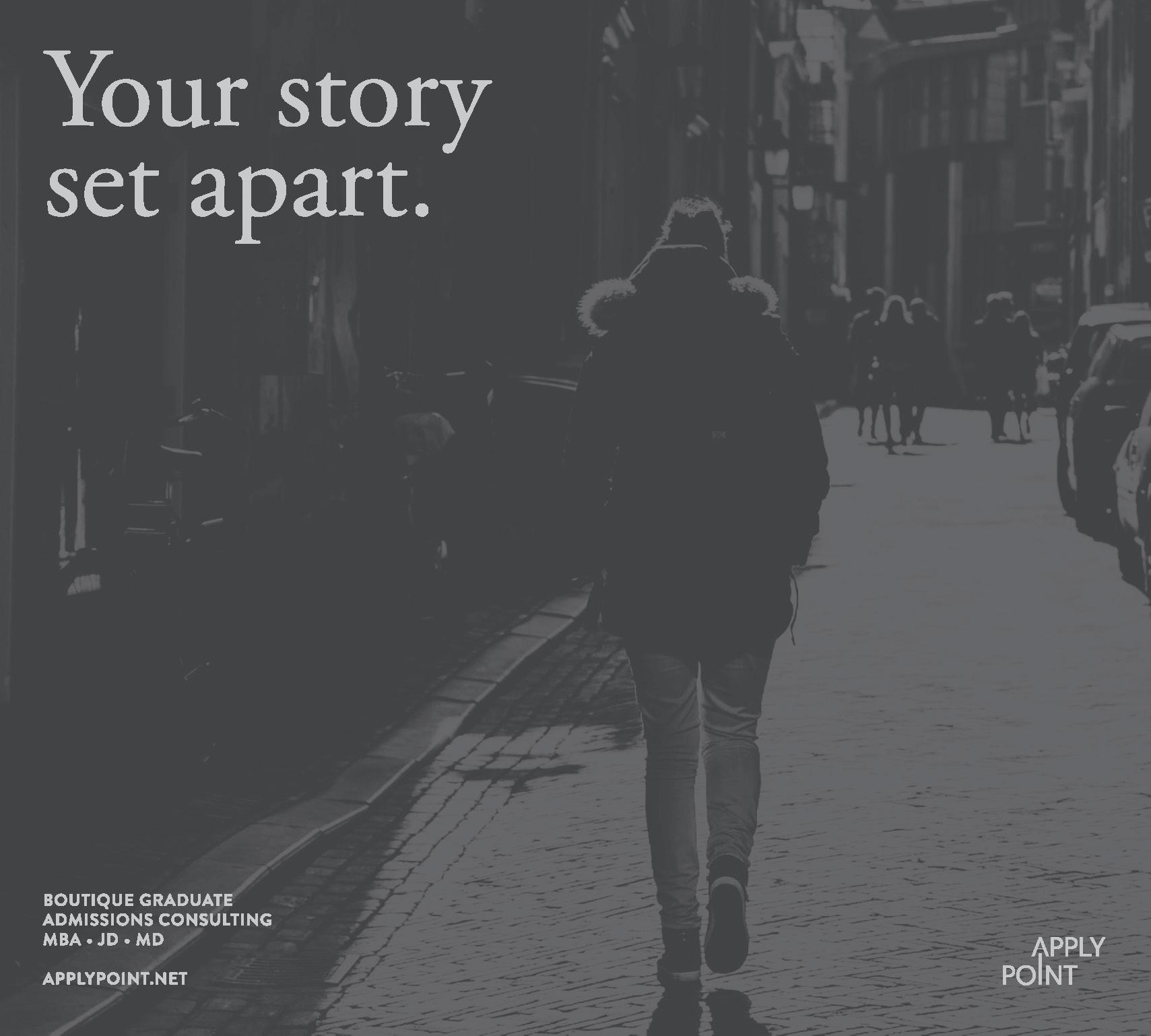
At a Tuesday meeting, the Cambridge City Coun cil resolved to ban the li censing of limited-services preg nancy centers — establishments that can resemble abortion cen ters but often counsel against abortion services — though legal and constitutional questions re main.
During the Ordinance Com mittee’s meeting, councilors dis cussed a proposed amendment to municipal law that would pro hibit the city from licensing es tablishments that “present them selves as providing pregnancy related services but instead seek to persuade people against hav ing an abortion,” according to the amendment’s text.
The amendment also seeks to prevent any crisis pregnan cy center, commonly known as crisis pregnancy centers, from publishing information in print or online that it “knows or rea sonably should know” to be “de ceptive, whether by statement or omission.”
But an opinion delivered by Cambridge’s City Solicitor Nancy E. Glowa raised doubts about the amendment’s legality. She argued that the restrictions on publish ing information could violate the 1st Amendment of the U.S. Consti tution and the 16th Amendment of the Mass. Constitution.
“Our opinion is that this could be an unconstitutional regula tion of free speech,” Glowa said in the meeting.
She said the amendment as written may not pass a “strict
scrutiny” test if reviewed by a court. The strict scrutiny stan dard would require the city to demonstrate the amendment “furthers a compelling inter est and is narrowly tailored to achieve that interest.”

Councilor Patricia “Patty” M. Nolan ’80, a co-sponsor of the amendment, said the Council will “take into account” the legal questions and try to pass a ver sion of the amendment that is “narrowly enough construed” to pass constitutional muster.
“The goal, I think, of the Coun cil is to do all we can to ensure that there’s not deceptive information
being promulgated in the city,” Nolan said in an interview.
Crisis pregnancy centers have come under heightened scruti ny following the Supreme Court’s decision over the summer to overturn Roe v. Wade. Critics al lege the centers target pregnant women and give the misleading impression that they are medical facilities or provide abortions.
“These fake clinics claim to be providing just informa tion and support for all options when in fact they do not,” Nolan said. “They provide wrong infor mation about the options, and they provide a lot of pressure to
choose only two of three options: either adoption, or carrying the pregnancy to term.”
During the public comment portion of the meeting, ten speak ers — including the executive di rector of a Boston-based limit ed-services pregnancy center — spoke against the proposal. None spoke in favor. The propos al follows the example of Somer ville, whose city council banned limited-services pregnancy cen ters in March. In July, Massachu setts Attorney General Maura T. Healy ’92 also issued a consum er advisory warning of the “limit ed and potentially misleading na
ture” of the centers, according to a press release.
In Cambridge, as in Somer ville, the ban would be preemp tive; currently, no limited ser vices pregnancy centers operate in either city, though some exist throughout the Boston area.
The Council voted to hold a second Ordinance Committee meeting at a later date to further discuss the amendment. It also directed the city solicitor to con sult with Somerville’s law depart ment on the legal justification be hind its ban.
elias.schisgall@thecrimson.com
Healey Leads Diehl in Massachusetts Governor’s Race
BY YUSUF S. MIAN CRIMSON STAFF WRITER
Two weeks after the Massachu setts state primary, Maura T. Healey ’92 appears to be the gov ernor-in-waiting.
Healey, the state’s attorney general who won the Democratic gubernatorial nomination with virtually no competition, holds a commanding polling lead over ri val Geoffrey G. Diehl, the Repub lican nominee backed by former President Donald J. Trump.
Healey leads Diehl 52 percent to 26 percent, according to a poll from Suffolk University released last week.
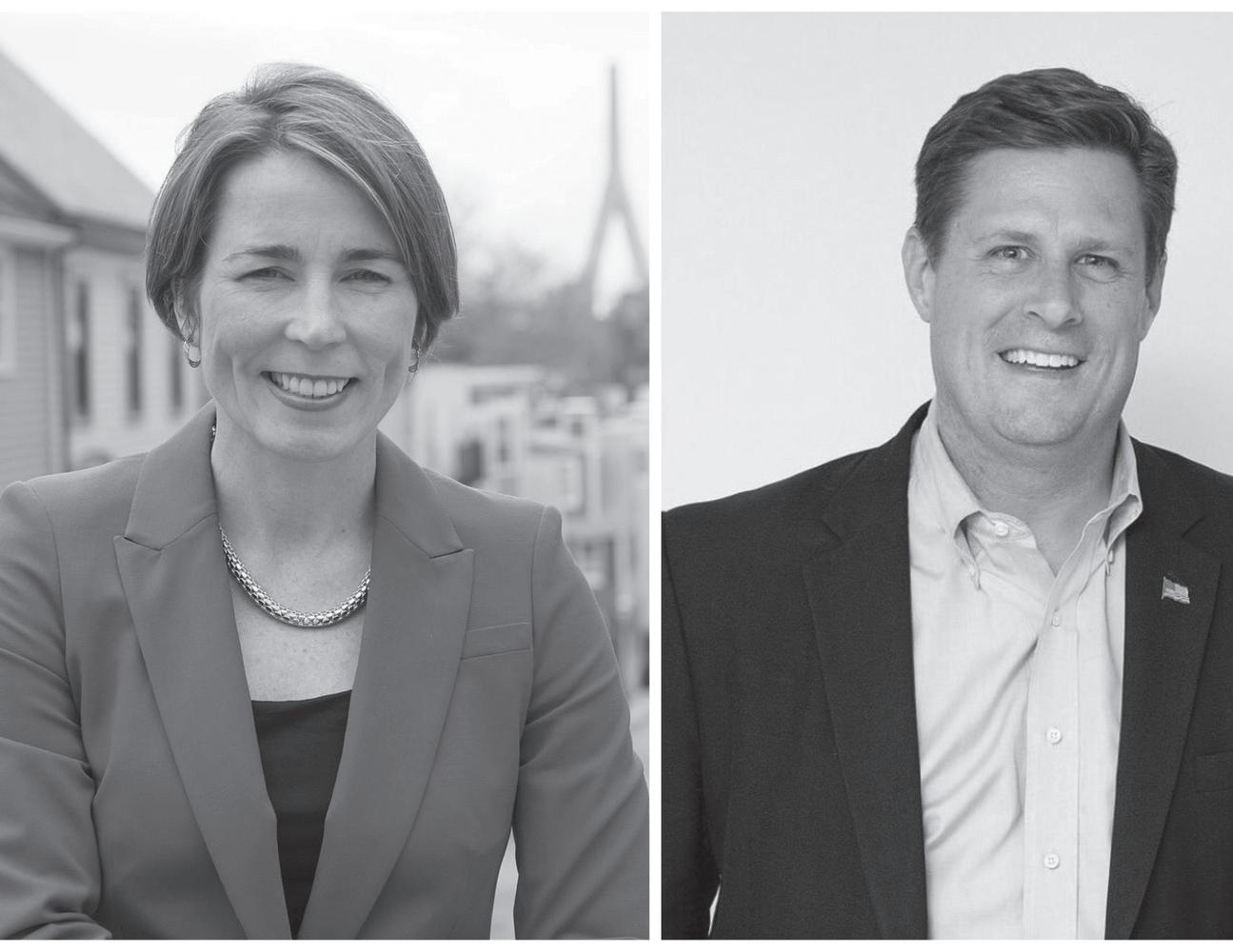
Healey would be the third con secutive Harvard College alumni to serve as governor.
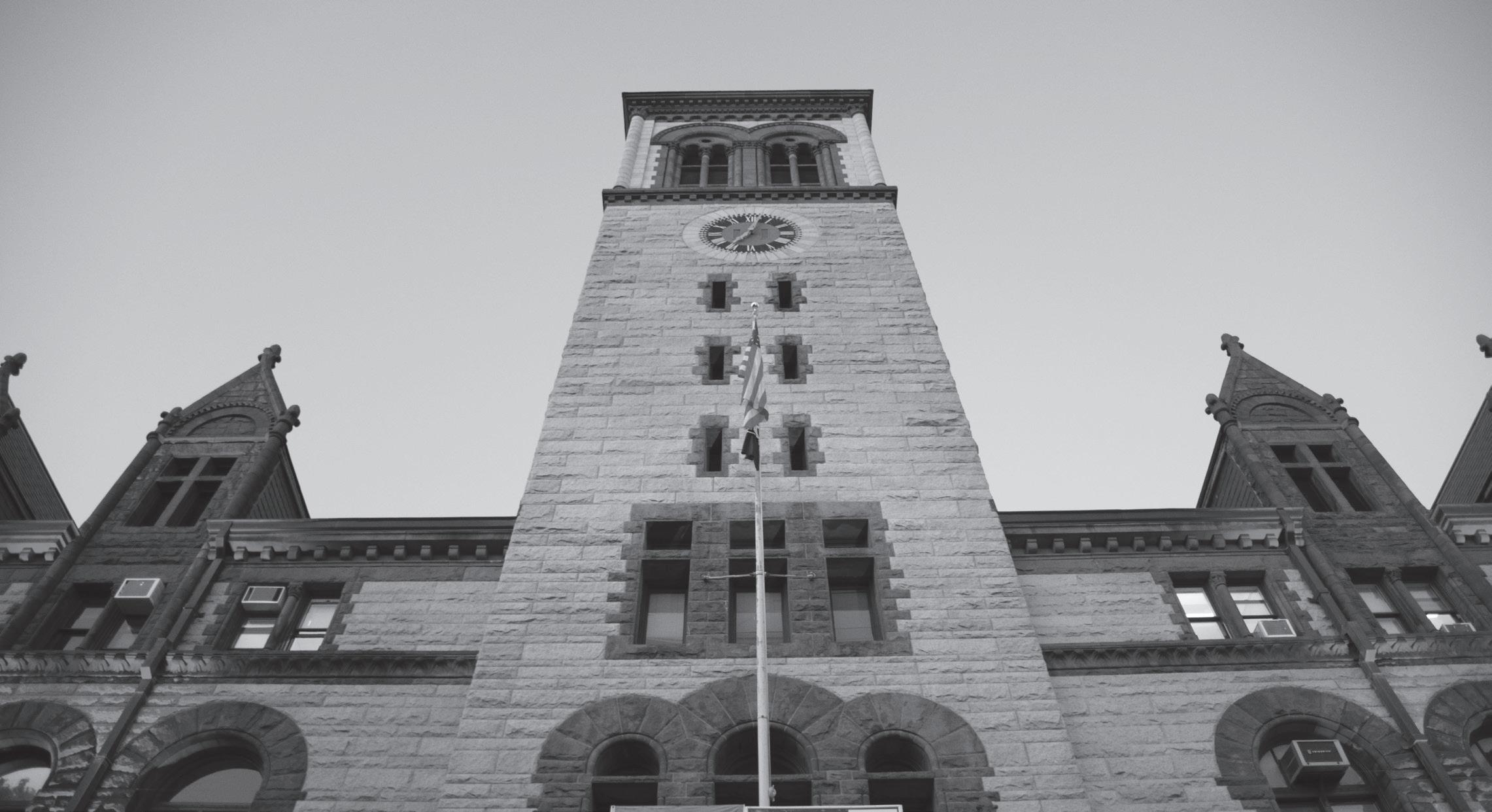
The poll showed Kevin Reed, the Libertarian nominee, siphon ing off 10 percent of GOP primary voters, suggesting that some Re publicans are repelled by Diehl.
Diehl defeated his more mod erate primary opponent, busi nessman Chris Doughty, in the primary earlier this month.
Healey has gone on the at tack against Diehl, charging that he is too conservative for Massa chusetts, a blue state with a histo ry of electing moderate GOP gov ernors. Diehl has continued to tout Trump’s support and attack Healey as being too far to the left.
The New York Times report ed Sunday that Diehl’s campaign declined to say whether he would accept the outcome of the elec tion. The former Plymouth state representative also previously endorsed Trump’s false claims that he won the 2020 election.

Healey also holds a large fund raising advantage over Diehl. She had over $4.7 million in the bank at the end of August, according to state filings — compared to a meager $17,000 in Diehl’s coffers.
Every statewide Democrat ic candidate holds a double-digit lead over their GOP opponent, ac cording to the Suffolk survey. An drea J. Campbell, the Democrat ic nominee for attorney general, leads Republican James McMa hon, 50 percent to 24 percent, ac cording to the poll.
State Senator Dianna DiZo glio leads Republican Anthony Amore by 18 points. Longtime Democratic incumbent William F. Galvin leads Republican Ray la Campbell by 33 percentage points.
President Joe Biden’s approv al rating in Massachusetts sits at 48 percent, according to the poll, compared to 43 percent who dis approve.
Governor Charlie D. Baker ’79 holds a 70 percent approval rat ing, according to the survey.
yusuf.mian@thecrimson.com
READ IT IN FIVE MINUTES
PRINCE OF WALES TO VISIT BOSTON
William, the Prince of Wales, will come to Boston with his wife Catherine on December 2, for the 2022 Earthshot awards, accord ing to the Boston Globe.
The Prince planned to attend the Earthshot Prize Innovation Summit in New York City, but was unable to come due to the death of his grandmother, Queen Elizabeth II. The Earthshot prize is awarded to five of fifteen finalists who present solutions to address climate change, according to their website.
The ceremony in Decem ber will be held at the John F. Kennedy Presidential Library and Museum in Dorchester.
The name of the award is a reference to the moonshot pledge made by former President John F. Kennedy ’40, in which he committed the United States to landing a man on the moon by the close of the 1960s.
A green line train derailed near Park Street station shortly before midnight Monday, according to the Boston Globe.
The Massachusetts Bay Transportation Authority confirmed the incident on Wednesday. There were two passengers on the train, MBTA spokesperson Joe Pesa turo said, though there were no injuries. MBTA personnel repaired the tracks and placed the train car back on rails overnight.
LAWYERS SEEK ING INJUNCTION AGAINST DESANTIS
The request comes as a part of a larger lawsuit against DeSantis by Lawyers for Civil Rights. DeSantis said he intends to spend the entire $12 million budget set aside by the Florida State Legislature to relocate migrants. Lawyers suing the governor say that an injunction would dissuade other governors from doing the same as DeSantis.
The suit comes as multiple Republican governors, such as Texas governor Greg Ab bott and Arizona governor Doug Ducey, have bussed thousands of migrants to New York City and Washington D.C. DeSantis, alongside Ab bott and Ducey, say that the recent influx of people enter ing their communities have overwhelmed them.
The lawyers suing De Santis allege that he misled the migrants he flew to Mas sachusetts by offering them false promises of employ ment opportunities and free housing. DeSantis’ office did not respond to requests for comments Wednesday, ac cording to the Boston Globe.
CLIMATE PROTEST ERS ARRESTED
Environmental activists marched through down town Boston in the morn ing, blocking traffic and closing one side of a Sea port bridge Wednesday, the Boston Globe reports.
The protest began soon after 7 a.m. and was con ducted by Extinction Re bellion Boston. The protest lasted about two hours.
Boston police arrested ten of the activists, according to Boston Police spokesperson Sergeant Detective John Boyle.
State police said that troopers also seized two vehi cles used by protesters.
The Cambridge City Council meets in City Hall, located in Central Square.
JULIAN J. GIORDANO — CRIMSON PHOTOGRAPHER
Democratic
Lawyers representing Ven ezuelan migrants flown into Martha’s Vineyard by Florida Governor Ron De Santis are requesting that a federal judge block him from making more trans ports, the Boston Globe reports.
GREEN LINE TRAIN CARS DERAILED
CAMBRIDGE CITY COUNCIL
SEPTEMBER 23, 2022 THE HARVARD CRIMSON METRO 10
Attorney General Maura T. Healey ’92 will face Geoffrey G. Diehl in the race for Massachusetts governor in November. BY COURTESY OF GEOFFREY G. DIEHL AND MAURA T. HEALEY
Follow The Crimson on TikTok TikTok.com/ @TheHarvardCrimson Like The Crimson on Facebook Facebook.com/ TheHarvardCrimson
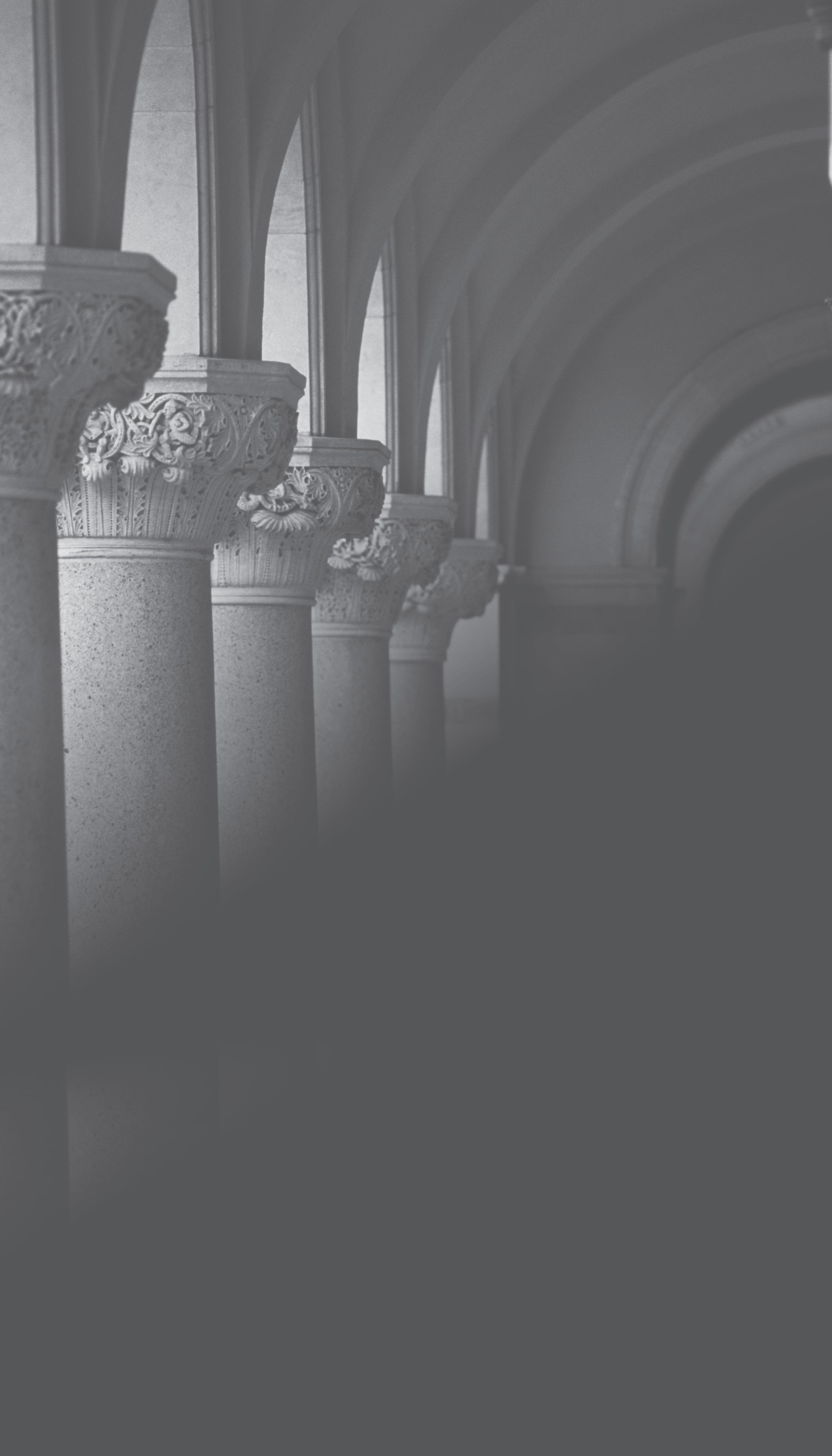
www.SiebelScholars.com The Siebel Scholars program was founded in 2000 to recognize the most talented graduate students in business, computer science, bioengineering, and energy science. Each year, over 90 outstanding graduate students are selected as Siebel Scholars based on academic excellence and leadership and join an active, lifelong community among an ever-growing group of leaders. We are pleased to recognize this year’s Siebel Scholars. Siebel Scholars Class of 2023 JOHNS HOPKINS UNIVERSITY WHITING SCHOOL OF ENGINEERING Tatsat Banerjee Savannah Est-Witte Justin Lowenthal Zachary J. Schneiderman Xiaoshan Shao MIT SCHOOL OF ENGINEERING Miguel A. Alcantar Cal Gunnarsson Catherine Henry Bianca Arielle Lepe Jacqueline Valeri STANFORD UNIVERSITY SCHOOL OF ENGINEERING Michael Chavez Thomas Lozanoski Erica Schwarz Pranav Vyas Xinzhi Zou UNIVERSITY OF CALIFORNIA, BERKELEY COLLEGE OF ENGINEERING Jordan Baker Kelsey Gray DeFrates Juan Eduardo Hurtado Gabriela Lomeli Connor Tsuchida UNIVERSITY OF CALIFORNIA, SAN DIEGO JACOBS SCHOOL OF ENGINEERING Erick Armingol Jervaughn Hunter Esther Lim Jonathan Pekar Yue Qin COMPUTER SCIENCE CARNEGIE MELLON UNIVERSITY SCHOOL OF COMPUTER SCIENCE Victoria Dean Shivam Duggal Isaac Grosof Divanyash Kaushik Lynn Kirabo HARVARD JOHN A. PAULSON SCHOOL OF ENGINEERING & APPLIED SCIENCES Chi-Ning Chou Gregory Kehne Dor Verbin Kai Wang Kelly Zhang MIT SCHOOL OF ENGINEERING Tanner Andrulis Ce Jin Ming Yang Lu Wei-Chiu Ma Junyi Zhu PRINCETON UNIVERSITY SCHOOL OF ENGINEERING AND APPLIED SCIENCE Uthsav Chitra Uma Girish Jane Pan Clayton Thomas Teague Joseph Tomesh STANFORD UNIVERSITY SCHOOL OF ENGINEERING Peng Chen Ziang Liu Clara Greene MacAvoy Carmen Daniela Strassle Yian Zhang TSINGHUA UNIVERSITY SCHOOL OF INFORMATION SCIENCE AND TECHNOLOGY Shengding Hu Zhiyue Li Chen Wang Jiayi Wang Mengyu Zhang UNIVERSITY OF CALIFORNIA, BERKELEY COLLEGE OF ENGINEERING Michael Lam Kaushik Shivakumar UNIVERSITY OF CHICAGO SCHOOL OF COMPUTER SCIENCE Phoebe Collins Yi He Drew Keller Andrew McNutt Emily Wenger UNIVERSITY OF ILLINOIS AT URBANA-CHAMPAIGN COLLEGE OF ENGINEERING Gargi Balasubramaniam Emmanuel Gallegos Ryan Marten Samraj Moorjani Xueqing Wu BUSINESS MIT SLOAN SCHOOL OF MANAGEMENT Stwart Pena Feliz Belen Gallego Boyana Georgieva Amelia De Paola Amitabh Guha Roy STANFORD UNIVERSITY GRADUATE SCHOOL OF BUSINESS Olivier Babin Kathryn Gautier Hannah Richards Elizabeth Rosenblatt Joshua Rowley UNIVERSITY OF CHICAGO BOOTH SCHOOL OF BUSINESS Catalina Bilbao De Raadt Hunter Holland Wynne Tang Todd Vogel Yinga Xia BIOENGINEERING
UNA is the greatest band in the world.
At least that’s what the band — an acclaimed indie pop three-piece hailing from Los Angeles — wants you to think. It’s evident with their larger-than-life confidence (iron ic or not), their unapologetically effervescent songs, and their re lentless commitment to creating and performing. With their cur rent fall tour well on the way after a kickoff show in Boston on Sept. 18, they’re sure to convince you of their stardom.
Made up of members Katie Gavin, Josette Maskin, and Nao mi McPherson, MUNA has been the go-to band for electro-pop bangers since 2017, though they’ve been around for much longer. Their debut studio album “About U” under RCA Records pushes listeners to the deepest depths of their inner psyche and back again. Bellied by brutally honest lyrics and kaleidoscopic production, it explores love and heartbreak in tracks like “Every thing” and “Winterbreak,” yet it also posits an alternative: a “place” where one can go to
escape the difficulties of the world, even if just for a second.
“I know a place where you don’t need protection / “Even if it’s only in my imagination,” Gavin sings on the album’s debut single, one of the first songs she, Maskin, and McPherson wrote together.
In many ways, “I Know a Place” continues to be the band’s mantra. Its themes are present across MUNA’s discography, in cluding the iconic “Saves the World” and a new self-titled re cord that meets and exceeds ex pectations for the queer icons.
The call to action in the track brings with it an energy that drives MUNA’s concerts and en gulfs them in an unmistakable air of community. MUNA shows are a place to let go, to dance and to sing, and to envision brighter, more loving alternatives to what life could be. Their performanc
es are, to quote Gavin at the end of their Sept. 20 show in Wash ington, D.C., a “queerful joy revo lution.”
Sunday’s sold-out Boston show at the Royale was no dif ferent. With the help of openers Meet Me at the Altar, a refresh ingly fiery punk band for the modern age, MUNA delivered an unforgettable performance rooted in care, fun, and, to quote Gavin, “horniness.”
The band’s stage presence is undeniable, and made the show feel like an intimate night spent with friends, rather than the mas sive concert it was. McPherson, Gavin, and Maskin danced to gether, teased each other, and bantered as though they were let ting the crowd in on their many jokes. At one point during “No Idea,” “one of the horny ones” from MUNA’s latest album, Gavin and McPherson had a moment on stage inspired by the song’s lustful lyrics. After the song end ed, Gavin turned to McPherson, incredulously, “I can’t believe you let me put my finger in your mouth … That was fucking crazy.”
Throughout the show, the trio made sure to hit all the right notes, playing songs from across their expansive discography,
Books for Busy Readers: Top Picks, from Memoirs to Poetry
complete with a cover of the heavily-memed yet adored “Mr. Brightside.” Songs like “Num ber One Fan,” “Anything But Me,” and “Pink Light” were emotion al highlights, showcasing the band’s endless capacity for joy and self-love despite— or even amid— heartbreak. Others, like 2017’s “If U Love Me Now,” which Gavin called “the saddest song in our entire discography,” showed how far the trio has come. But it was “Home By Now” that really sold the show. Maskin, McPher son, and Gavin took over the stage, making sure to reach every corner of the audience with the song’s chorus, their fists in the air.
of rebirth for the band, has set MUNA on their biggest headlin ing tour to date. “The last time we were playing venues this size, we were opening for other people,” McPherson said from their post on stage left. “It’s so cool playing shows like this.”
ith the start of the fall se mester, many Har vard students face long reading lists and packed Google Calen dars — gone are the lazy sum mer days of “hot girl reading.” Problem sets and essays might be sucking up every minute of your free time, and the thought of reading for fun might even make you a little queasy right about now, but don’t worry: The Crim son has you covered. If you need a break from studying or if you’ve exhausted Netflix, cozy up with a captivating, quick read recom mended by The Crimson. Here are our top book picks for the busiest students:
Wway to read if you are pressed for time. Each essay is a self-con tained topic, so you can easi ly read as many or as few as you want. Jordan Kisner’s collection of essays is fresh and interesting, on topics ranging from colonial ceremonies on the Texas-Mexico border to experimental religion. Her writing is lucid, and these es says will have you thinking about American culture in a new way.
“The History of Love” is short and packs a punch. Krauss, an as toundingly talented writer, crafts a story about a 14-year-old girl’s journey to find the author of a book her mother is translating. Set in New York City, this novel blurs the line between memoir, fiction, and reality itself through its book-within-a-book struc ture. Full of life and energy, this book posits itself as the anti-obit uary, seeking to memorialize and immortalize living people.
The entire internet seems abuzz about this book, and for good reason. If you haven’t read Taylor Jenkins Reid’s master piece yet, it’s a must. “The Sev en Husbands of Evelyn Hugo” is a sexy, speedy novel about a Hol lywood star’s complex public and private life. It’s glamorous and fast-paced, with loveable charac ters and a twisty, surprising plot. This is fiction at its finest.
It’s been a big few years for MUNA. After a difficult pandem ic year, they became the second artist signed to Phoebe Bridg ers’s Saddest Factory Records in May 2021. Their first single on the nascent label, 2021’s “Silk Chif fon” with Bridgers, became a chart-topping hit and indisput able queer anthem. Now, their self-titled album, itself a sort
That sentiment was shared by the band. Talking about how the show represented the first night of a months-long headlining tour across the U.S., Maskin shared that “it just feels so special.” At another point, she said, “we hav en’t played a show in a month and this is just the biggest welcome.” Indeed, the crowd at night one of MUNA’s two-night Royale res idency was fervent, the roars of adoration nonstop. Some trav eled in from out of state, some at tended with their exes, and for many, it was their first time see ing MUNA on stage. The majority, though, knew the words to every song and enough about the band to laugh along with their inside jokes, a testament to the commu nity of inclusivity the band has in tentionally built.
MUNA is the greatest band in the world. They know it, and now Boston does, too. a to to to and to to what can and
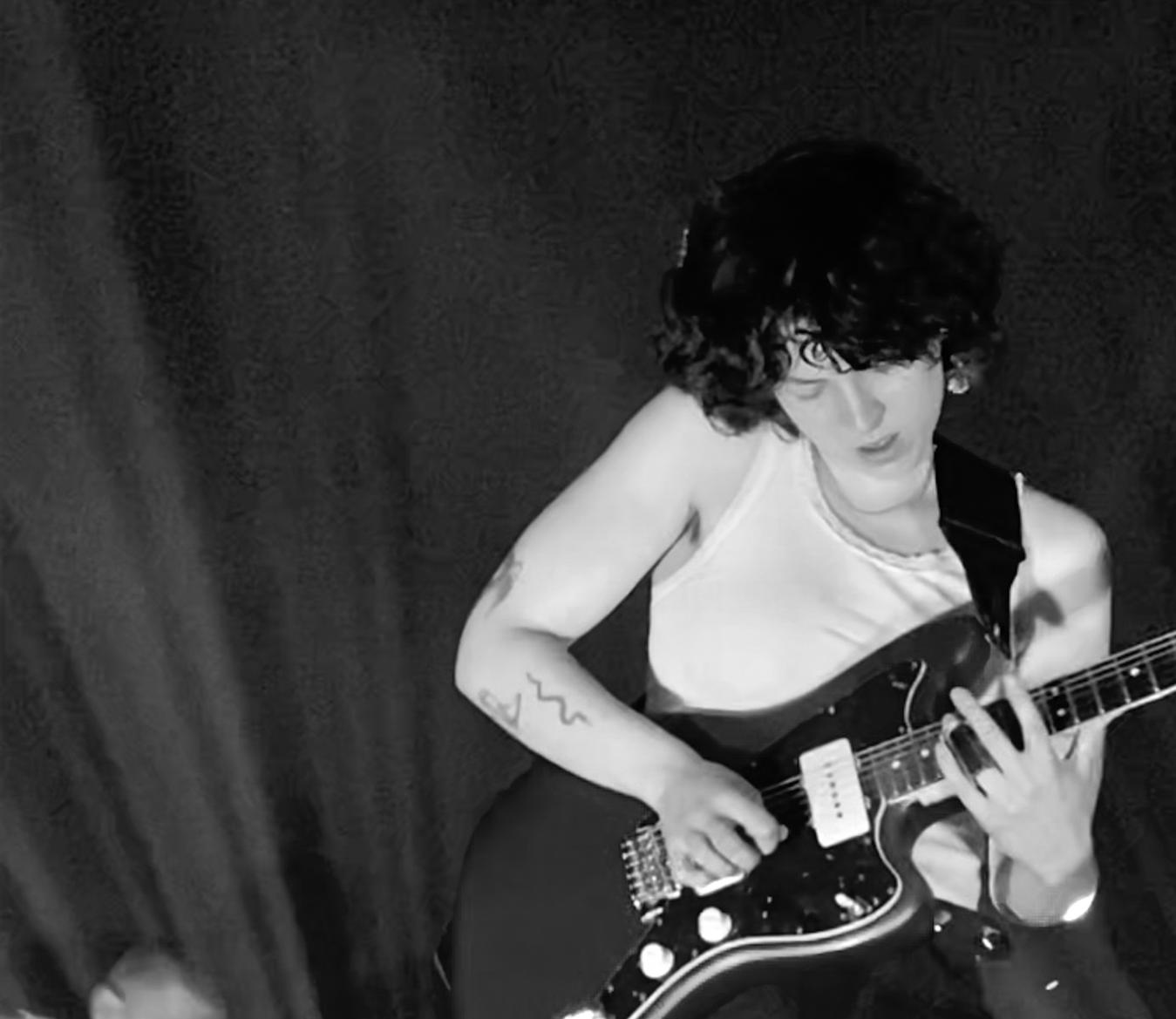
Generally fairly compact, memoirs are a great way to en gage with reading because, as the stories of real people’s lives, they are inherently accessible. And who doesn’t love to read about other people’s drama? Trevor

Noah’s memoir is poignant and deeply hilarious. He tells the story of growing up in apartheid South Africa and his journey to becoming one of the most famous comedians in the world. The par ticularly engaging audiobook, full of Noah’s signature comedic timing and impressions, is anoth er great way to consume this gem.
Treated as a terrorist by the U.S. government for fighting against racism and white supremacy, Khan-Cullors’s life story sends a compelling message about the state of American justice, the power of speech and resistance, and what it takes to lead a nation wide movement. In 250 pages, Khan-Cullors reveals her diffi cult, harrowing, and inspiring work. It is a fascinating and im portant read.
about grief, family, and love. While his poems are not always transparent, the art is in his word choice. Vuong’s poems are ach ingly beautiful and well worth reading in your (however limit ed) free time. vere civil charge of “reckless infliction of emotional distress.”
“When They Call You a Terror ist” is the must-read memoir by one of the founders of the Black Lives Matter movement.
Essay collections are a great
At just 89 pages, “Night Sky With Exit Wounds” is slim, but it leaves quite an impact. Vuong deftly engages figurative lan guage in his series of poems
BY SERENA JAMPEL CRIMSON STAFF WRITER
serena.jampel@thecrimson.com OF SEVEN HUSBANDS OF HUGO” A FROM A AFRICAN
“WHEN THEY CALL YOU A TERRORIST: A BLACK LIVES MATTER MEMOIR” by Patrisse KhanCullors and Asha Bandele
“NIGHT SKY WITH EXIT WOUNDS” by Ocean Vuong For more book recommenda tions from staff, check out the
NAYELI CARDOZO CRIMSON DESIGNER
MUNA TOWARDS A ‘QUEERFUL JOY REVOLUTION’ THE CONCERT. MUNA kicked off their fall 2022 tour with two sold-out Boston shows. M MUSIC BY SOFIA ANDRADE CRIMSON STAFF WRITER THE HARVARD CRIMSONARTS12 sofia.andrade@thecrimson.com SOFIA ANDRADE — CRIMSON PHOTOGRAPHER MUNA shows are
place
let go,
dance and
sing,
envision brighter, more loving alternatives
life
should be. “
The Crimson’s
“THIN PLACES: ESSAYS FROM IN BETWEEN” by Jordan Kisner “THE HISTORY
LOVE” by Nicole Krauss “THE
EVELYN
by Taylor Jenkins Reid “BORN
CRIME: STORIES
SOUTH
CHILDHOOD” by Trevor Noah
Crimson Arts
“From Our Book shelves” series, available at THECRIMSON.COM THC
—
NEW YORK FASHION WEEK: MAYBE SHE’S BORN WITH IT
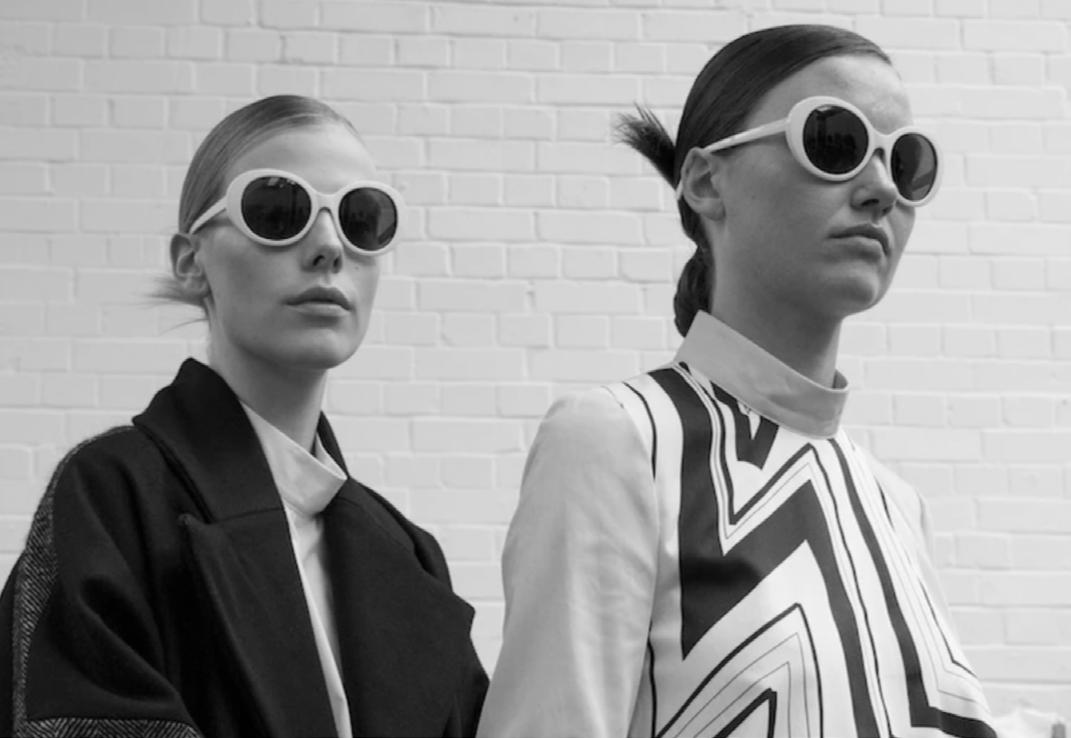
‘Heroes of the Fourth Turning’ is an Intellectual Obstacle Course
BY VIVIENNE GERMAIN
Directed by Marian na Bassham, the Speakeasy Stage production of Will Arbery’s “Heroes of the Fourth Turning” is rich, raw, and fresh. This bold perfor mance challenges audiences by presenting a surprisingly uncon ventional way of listening to and thinking about politics, success ful due to excellent work with characterization.

Some people avoid discussing politics, race, and religion and others seek to amplify marginal ized voices. “Heroes of the Fourth Turning” offers a surprisingly underrepresented and risky ap proach: listening — really listen ing — to the perspectives of white right-wing conservatives.
Set in 2017 during the begin ning of Donald Trump’s presiden cy, five Catholic white Republican characters hold the audience’s unadulterated attention for two hours and five minutes, sans in termission, while they argue, dis agree, and concur about socio political ideas in the context of religion. The minimal action nev er leaves its backyard setting, ren dering the focus on white rightwing ideas and discourse.
Bassham’s production devel ops distinct, contrasting, and compelling characters who not
only represent different arche types of white conservatives but also have the depth required for audiences to access them as peo ple with believable emotions and desires, both of which are criti cal tools for the presumed goals of the play. The actors’ outstand ing performances and the sim ple but effective costume choices contribute to the successful de piction of the characters.
Elise Piliponis and Dayna Cousins deliver remarkable, con vincing monologues that draw audiences into their characters’ lives and opinions, both in iso lation and in opposition to each other. Piliponis’s Emily, a gen tle, deeply pro-life, deeply reli gious Republican, pulls audienc es into her pro-life monologue with a sense of genuine care (about helping women), while Cousins’s Teresa, a headstrong, Trump-loving, Karen-in-train ing, “Connecticut” Republican, pulls audiences into her pro-life monologue with fiery passion (about preventing murder).
Jesse Hinson’s strong-armed portrayal of Justin, the aggres sively masculine, pro-gun Re publican works well against Nathan Malin’s Kevin, the nottoo-smart, perhaps considered “white trash” Republican, whose well-executed, uncoordinat ed and unbalanced physicality brings the character’s substance abuse issue to the forefront. Kar en MacDonald conveys a strik
ing and formidable Gina, the oldschool, anti-Trump, pro-George H. W. Bush Republican, with her commanding stage presence and ownership of the role.
The masterful performanc es from the actors are comple mented by costumes that further emphasize the variety of conser vatives represented in the play: a warm and understated cardi gan and dress for Emily, a classy pantsuit for Teresa, a flannel shirt and outdoorsy vest for Jus tin, an untucked and eventually unbuttoned shirt for Kevin, and a neat, mom-appropriate ensem ble for Gina. These choices help audiences easily differentiate the characters, which eases the work of differentiating their political positions.
By embracing the differ ences between these white Re publicans, and by humanizing them — which makes audienc es more willing to listen to their points — Bassham’s “Heroes of the Fourth Turning” gives view ers a chance to deeply consid er hot-button topics from a po tentially new vantage point. The characters delve into the nuanc es of their ideas. They are not just homophobic and transphobic; they push and pull and poke and stretch different aspects of and approaches to homophobia and transphobia until audiences tru ly grasp their perspective.
Today, after the Jan. 6 insur rection, the overturning of Roe
v. Wade, and the Uvalde school shooting — events that had not yet happened when Arbery wrote this play — it seems crooked to listen to people refer to Trump as “the more human” candidate, claim that Planned Parenthood is part of “a system that is evil,” and suggest bringing guns to a school for student “marksman ship training.”
But Basham’s production nei ther celebrates nor encourag es conservatism or Catholicism. “Heroes of the Fourth Turning” does not push the audience to agree with its characters; it push es the audience to listen and use that information for whatever purpose — even if just to deepen confidence in liberal beliefs. Ex amining alternate opinions al lows people to better own, grasp, and defend their personal opin ions, especially when those alter nate opinions are shown in a neu tral light.
Audiences will enjoy the hu mor, the beautiful set (creative lighting combined with a black scrim results in a gorgeous star ry night sky effect), and the chem istry and dynamics between the actors on stage — but the greatest impact of Bassham’s production of “Heroes of the Fourth Turning” is its ability to place audiences on an intellectual obstacle course.
While having rich and well-connected parents has been among the most bankable paths to success in most celeb rity professions for decades, nepotism and high fashion modeling are a match made in heaven. In this think piece, contributing writer Benji L. Pearson takes a look at the lucky few models who had the good fortune of being born to parents who can give them the industry connections to get a stilettoed foot in the door. They’re known as “nepotism babies,” and New York Fashion Week is crawling with them. Every runway seems to fea ture at least one. Some, like Bella Hadid and Kendall Jenner, have succeeded in catwalking out of the shadow of their parents’ and siblings’ profiles to be taken seriously as models in their own right. Other newer faces to fashion, like Kaia Gerber, Sophia Richie, and Ella Emhoff, still have their families to thank for their quick rises onto the most coveted runways.
In the supermodel heyday of the ‘90s, he writes, the models’ ap peal came not only from their long limbs and perfect pouts but from the illusion that anyone could be them. Cindy Crawford, arguably the preeminent ‘90s supermodel, was famously dis covered by a local photographer while shucking corn during her summer job in high school. She dropped out of her first semes ter of college and soon found herself gracing the cover of Vogue Magazine.
This story struck the perfect alchemy of relatability and aspira tion. Young people latched onto this Cindy-rella story and others like it because it started at such an accessible, quotidien place — remember, she was shucking corn — but quickly ascended to glamorous heights. Young people and media alike latched onto this narrative that anyone from anywhere could be a star with some luck.
With social platforms democratizing media, traditional media sources have lost control of pushing similar aspirational narra tives. Now, many people fixate on stories that don’t instill hope but instead reinforce inequality. These rags to runways narra tives have been replaced by the less heartening reality that, in order to succeed in modeling, you can’t just be a Cindy, you have to be her daughter.
It makes sense that modeling is filled with the daughters and sons of A-listers. Modeling is often far from financially sustainable, and when you’re paid in designer t-shirts and exposure instead of mon ey, it helps to have parents that can supplement your income. It’s disheartening to confront the reality that most celebrity-ori ented professions are almost impossible to break into or profit from without the support of rich and famous parents. But it’s also demystifying: Isn’t it better that we at least know how the machine really works rather than clinging to handpicked, embellished origin stories that provide us with a false sense of proximity to celebri ties? Maybe, with newfound clarity, young people will look beyond professions that have a history of underpaying and exploiting their workers.
Maybe, we should leave those lines of work to the Jenners, Hadids, and Gerbers (by way of Crawford) who don’t need the extra cash anyway.
BON APETIT. More and more restau rants are going vegan or providing vegan options. Is this the future of dining?
BY THOMAS FERRO
In the world of fine dining, es tablished restaurants and chefs set the standards for trends in global food culture. The early 20th century introduced the food world to the gastronomic innova tion of Lyon, where the legendary Eugénie Brazier opened La Mère Brazier, her flagship restaurant. Brazier’s light yet classical French dishes became the epitome of gas tronomy and the beginning of nouvelle cuisine.
Later, other icons emerged from under Brazier’s wing, in cluding the famed Paul Bocuse. With respect to a long culinary tradition and history, Bocuse re fined and cultivated older reci pes to maximize their potential, positioning him as a leading fig ure in nouvelle cuisine. Following in Bocuse’s footsteps, restaurants around the world continued to contribute to the evolution of food culture, most famously with the Adrià brothers at the impecca bly avant-garde El Bulli, launch ing gastronomy into the future by being persistently innovative and unique at all costs.
In more recent years, fine din ing establishments have taken a less uniform approach to gas tronomy and innovation. Mode na-based Massimo Bottura fo cuses on the revitalization and reinterpretation of tradition and terroir in his renowned restau rant, Osteria Francescana. On the other side of the world, Mashama Bailey’s The Grey, in Savannah, Georgia, examines the history of the American South, both in cui sine and culture. In Chicago, Alin ea, led by Grant Achatz, follows in El Bulli’s footsteps by relentlessly pushing molecular gastronomy to a somehow even more molecu lar level –– think floating balloons made of sugar, fruit, and helium,
among many other inventions.
Clearly, these chefs have bril liantly mastered their crafts and philosophies, paving their own paths in the global food culture. Yet, with so much variation, it is hard to say what this generation’s defining movement will be in the evolution of cuisine.
Recently, veganism has at tempted various coups d’états in haute cuisine establishments across the globe. In 2021, Dan iel Humm’s Eleven Madison Park made its pivotal switch to a plantbased menu. Generally, Humm’s transition to veganism received poor reviews in its early stages, most notably with a devastating account in the New York Times by Pete Wells. While Humm is, with out a doubt, an extremely talented chef, his vegan dishes remained in their infancy a bit too long af ter the switch was implemented. Despite an initial setback, Eleven Madison Park gradually regained its prestige.
While most restaurants have not eliminated the use of all ani mal products, the emphasis on vegetarian and pescatarian offer ings has undeniably gained more attention and thought. In 2001, Alain Passard announced that his Parisian restaurant, L’Arpège, a famously meat-focused estab lishment, would convert to a vege tarian menu. While Passard even tually reintroduced some meat and fish to his menu, L’Arpège re mains mostly vegetable-focused, prioritizing the utmost respect and reverence for each ingredi ent.

Likewise, in San Francisco, Dominique Crenn removed meat from her menus, leaving diners with a delightfully pure and sub tle pescatarian experience. While Passard limited meat to give veg etables the spotlight they’ve his torically been refused, Crenn an nounced that the decision was made primarily for environmen tal reasons.
Passard and Crenn, among many others, have pioneered the movement of restricting meat-centered experiences from fine dining and placed their em phasis on often underappreciated ingredients in the world of haute cuisine. This subtle transition of global food culture from meat to vegetables has not cut out all an imal products from menus, but
only refocused the lens.
Veganism, or at least vegeta ble-centered food, seems to be a promising step forward in the fu ture of fine dining. But, it is imper ative to remember that plant-fo cused dining experiences will only succeed should each dish be made for the ingredient: A dish that would have originally relied on meat should not count on veg
etables as a worthy substitute. Dishes have to be constructed for the ingredient, not in spite of it. Only then will fine dining realize veganism’s potential.
If the world of fine dining con tinues on this path, this genera tion’s defining moment in the evo lution of cuisine may just be on the horizon.
NIKON CORPORATION/UNSPLASH — COURTESY IMAGE
NETFLIX — COURTESY IMAGE
“
Veganism, or at least vegetable-centered food, seems to be a promising step forward in the future of fine dining.... [But] dishes have to be constructed for the ingredient, not in spite of it.
vivienne.germain@thecrimson.com
SEPTEMBER 23, 2022 THE HARVARD CRIMSON ARTS 13
THEATER
CRIMSON STAFF WRITER EDITOR’S PICK: NEPOTISM BABIES
Fine Dining Goes Vegan
CONTRUBUTING WRITER ADAM JAIME — COURTESY IMAGE
“
FIFTEEN QUESTIONS
TAEKU LEE ON POLI SCI, CIVIC AND AS A PREMED
BY MEIMEI XU CRIMSON MAGAZINE ASSOCIATE EDITOR
what have for a very long period of time been very stable democ racies. The politics of identity is playing a role that is inextricable from the rise of lots of populist movements, nativist movements in a lot of different societies, and that is an area that I think politi cal scientists need to focus more on. So I don’t want to just say, “Harvard and other universities need to hire more people that are doing what I do,” since that is part of what I do, but I do think that this is an area where there are some profound changes going on in our society, and the more brainpower universities like Har vard could put to it, the better.
FM: This fall and spring, you’re teaching a research workshop class for graduate students. What other classes do you hope to teach in the future?
Taeku
Lee is the inaugu ral Bae Family Professor of Government at Har vard University and one of three faculty members recent ly brought in as part of the Faculty of Arts and Sciences’s ethnic stud ies cluster hire initiative. He pre viously served as a professor of political science and law at Uni versity of California, Berkeley. He currently serves on the National Advisory Committee for the U.S. Census Bureau. This interview has been edited for length and clarity.
Fifteen Minutes: Were you po litically active as an undergrad at the University of Michigan, and if so, what were you in volved in?
Taeku Lee: In my college years I was supposed to be attending a lot of medical school classes, but I found myself actually very drawn to a lot of political caus es that were activating and mo bilizing students in my time. The mid-1980s were a time where the United States and then-Sovi et Union looked as though they were poised down this inexora ble path toward nuclear warfare. My involvement in that issue then got me interested in a lot of oth er kinds of geopolitical issues. So I organized around U.S. foreign policy in Central America and the U.S.’s relationship to the struggle against apartheid in South Africa at the time. I did a good bit of work around hunger and famine par ticularly in what was then Ethio pia, now Ethiopia and Eritrea.
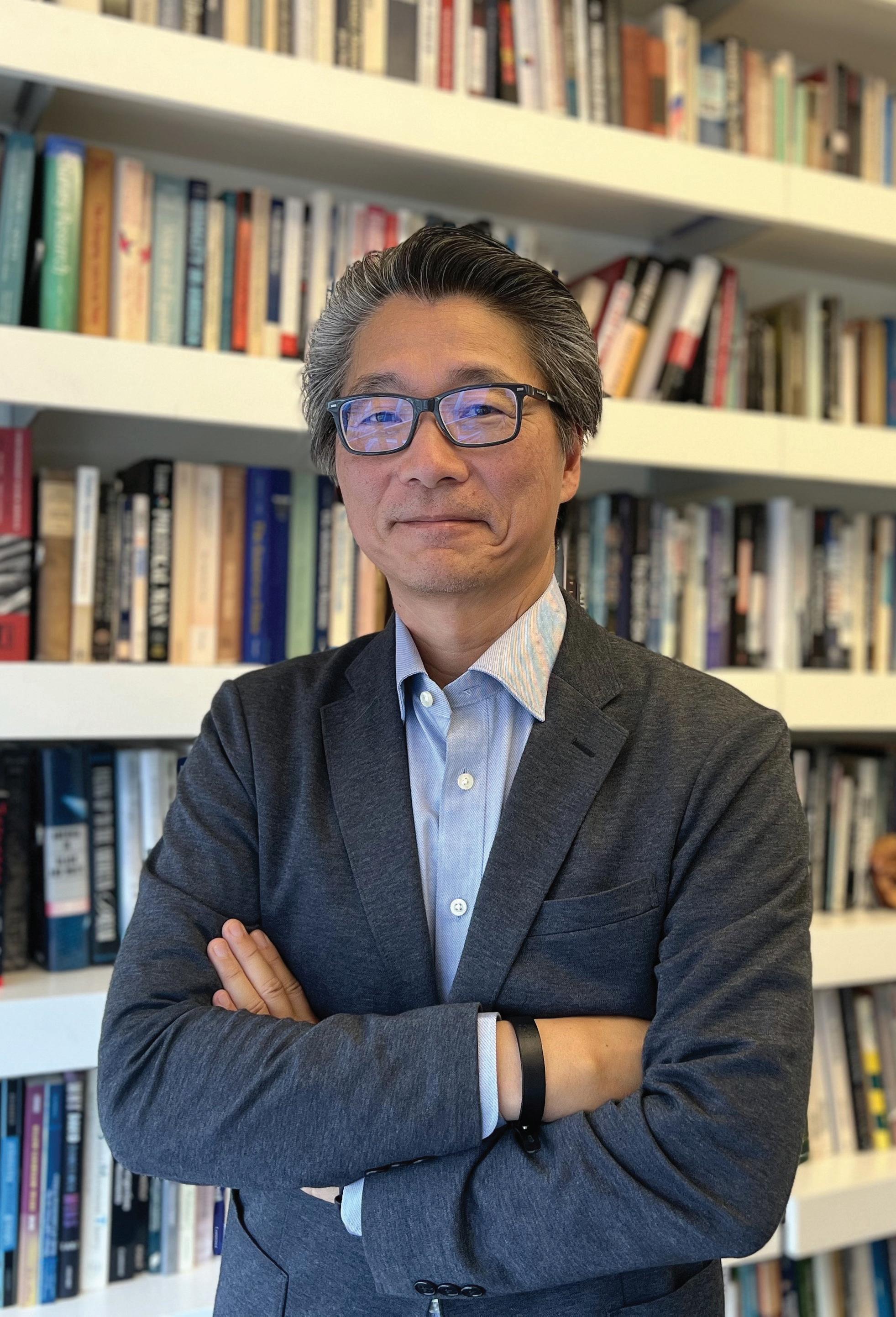
FM: How did you finally make the plunge and decide to pur sue political science research, and did you ever find your self wavering between politi cal science and other fields or running for office or being in an NGO?
TL: I drew a mentor who was ac tually a medical school profes sor at Michigan but who had also been an activist through most of his life, especially in the ’60s and ’70s. I was explaining a struggle I was having at the time where I was organizing close to 100 med ical students to engage in an act of civil disobedience at the Neva da nuclear test site. But I was tell ing him that I actually had not reached that point in my own po litical views about civil disobe dience that I thought I was will ing to cross the line to be arrested for this cause. So my mentor at the time, Dr. Arthur Vander, just looked at me with a wry smile on his face and he said, “You know, Taeku, you have to realize that some people are really good at doing and some people are real ly good at thinking about doing, and I think you might be the lat ter kind of person, even though your views on politics are obvi ously very heartfelt.” That actual ly took me down a road of being a lot more interested in politi cal philosophy. Eventually, from that, I made what was a very hard decision, especially for an immi grant and maybe also for an im migrant from an Asian American family — to choose to leave medi cal school to pursue a PhD which at the time was going to either be in philosophy or in political sci ence.
FM: You serve as one of the principal investigators of the National Asian American Sur vey and have been involved with the survey since its first report in 2008. How did the survey and your involvement with it start?
TL: In terms of the ability to have an infrastructure for doctoral stu
dents in political science to be able to do dissertations on Asian Ameri can politics, you need access to data, and you need access to human cap ital, which means faculty who have given some thought and done some research on Asian Americans. So I got together with a few fellow politi cal scientists who had all just recent ly been tenured. None of us had been tenured based solely on our inter est in Asian American politics, and we decided that since we now have a certain amount of job security, we’re going to take a risk, apply for grants that we had no right to expect to be funded, and then try to build that in frastructure. And we were lucky to be able to convince several founda tions, and then the National Science Foundation, to help fund the first major political survey of how Asian Americans think and what they ac tually do in the realm of politics. And that was sufficiently successful that we were then able to do two more National Asian American surveys after that in 2012 and 2016. In this case, I think there was such a dearth of interest in surveying the opinions of Asian Americans that we discov ered some people wanted to stay on the phone and just keep talking to our interviewers. Some of our inter views went on for 50, 60, 70 minutes, and we had to start retraining the in terviewers to break off on the inter viewer end as opposed to on the re
spondent end. I think that’s a good example of what a gap there was be tween the lived experiences of Asian Americans and the trained social scientists who had the resources and the training to be able to go out there and study those lived experi ences.
FM: Much of your research has fo cused on Asian American polit ical participation and public po litical participation at large. How did you become interested in this topic as an academic endeavor?
TL: A key turning point for me was 1992, with the LA uprising where I keenly felt the paradox of being in a PhD program at the time in politi cal science, reading the works of dif ferent political philosophers, while [people in] Los Angeles — which is a city where a lot of my extended fam ily was living, including an uncle and an aunt who ran a small momand-pop shop that was at risk of be ing burnt down — were just defend ing their lives and their livelihoods. I keenly felt like there was something fundamentally misguided about my pursuit of thinking about pol itics and political science without understanding at a very fundamen tal level the history of racial politics in the United States, and in particu lar, the history of anti-Black racism in the United States. And so I took a
180-degree turn away from what I was interested in at that time, which was a combination of game theory and Marxist theory, and then just dove into a lot of history and sociol ogy courses about the Black experi ence in the United States. It wasn’t until I was further along in my ca reer that I was able to really focus on Asian Americans.
FM: What is your advice to stu dents who are interested in pro moting informed civic engage ment?
TL: Choose what your gateway drug is. Start somewhere. When you start somewhere and start working with other people, I think there’s much greater rewards to trying to make change and make change with oth er people in concert, whether it’s hugely successful or just somewhat successful. Just the process of do ing politics with other people is re warding.
FM: What gap in our current fac ulty do you hope to fill, wheth er that be in the Government de partment or in Harvard’s Faculty of Arts and Sciences as a whole?
TL: One of the things that’s really changing in the real world today is the degree to which identity-based politics is posing deep threats to
TL: Next year, I’m very eager to start teaching undergraduate courses. I think I’ll probably offer a course on Asian American poli tics, and I may also offer a broader course on racial and ethnic poli tics using this textbook that we’re just completing.
FM: You joined Harvard as one of three scholars hired as part of the FAS’s ethnic studies clus ter hire initiative. What is your hope for the future of ethnic studies at Harvard?
TL: I think we are not quite at square one, because we now have three of us who’ve agreed to be part and to hopefully take the lead in this effort to build some thing. But we’re still very much in the early stages, and this is an exciting stage where anything could be possible. We don’t quite know where all the barriers are, but I do know that this has been the most recent culmination of a 50-year effort to hire faculty in this area and to try to build some programs. So I’m not going to as sume that we will be able to figure out the secret sauce to building a successful program overnight, but I’m also excited to see what we’re able to build.
FM: Some scholars and activ ists are adamantly supportive of establishing ethnic studies departments in universities across the United States. Oth ers push back against the con cept of an “ethnic studies” de partment, arguing it lumps together unique areas and cul tural studies that should be departments or programs in their own right. What is your take on this discussion? Would you hope that the FAS establish an ethnic studies department sometime in the future?
TL: Fundamental to a universi ty is the organization of inqui ry into not only different topical areas, but also different disci plinary perspectives. So one is sue that has always been a chal lenge throughout the history of building ethnic studies programs has been a deep skepticism, often on the part of other disciplines or on the part of senior administra tion at a university, that there is a unifying discipline around eth nic studies. And I think that has to be one of the foundational chal lenges that Professor Lee, Hoff nung-Garskof, and I and whoev er else that we’re able to hire or persuade to join our group — a lot of very open discussions about what we think this unifying per spective on inquiry into ethnicity, indigeneity, and migration would be at Harvard. Some universities center the study of race and the way that they think about an in tellectual hub like this one. Oth ers center the experience of di aspora, some center the tension between diaspora and indige neity. There are a lot of different kinds of ways to foreground what that unique perspective might be, but I think we need to have one. If you don’t have one, it’s always go ing to be difficult – firstly, to per suade Central Campus, if you will, that there is a basis, a foundation for a separate department. And if you don’t have that, even if you are able to persuade somebody, it will be hard to sustain that effort.
Q&A: THE GOVERNMENT PROFESSOR sat down to discuss his pursuit of political science and the develop ment of ethnic studies at Harvard. “This is an area where there are some profound changes going on in our society, and the more brainpower universities like Harvard could put to it, the better,” he says.
ENGAGEMENT,
HIS STINT
Fifteen Minutes is the magazine of The Harvard Crimson. To read the full interview and other longform pieces, visit THECRIMSON.COM/ MAGAZINE MEIMEI XU — CRIMSON PHOTOGRAPHER FM
14SEPTEMBER 23, 2022 THE HARVARD CRIMSON
HLS Honors Banned Books
BY RYAN H. DOAN-NGUYEN CRIMSON STAFF WRITERS
Patrons looking to enter the Harvard Law School li brary Wednesday after noon had to navigate around a dozen librarians and staff mem bers, who crowded the front steps as they took turns reading aloud selections from their favorite banned books and authors.
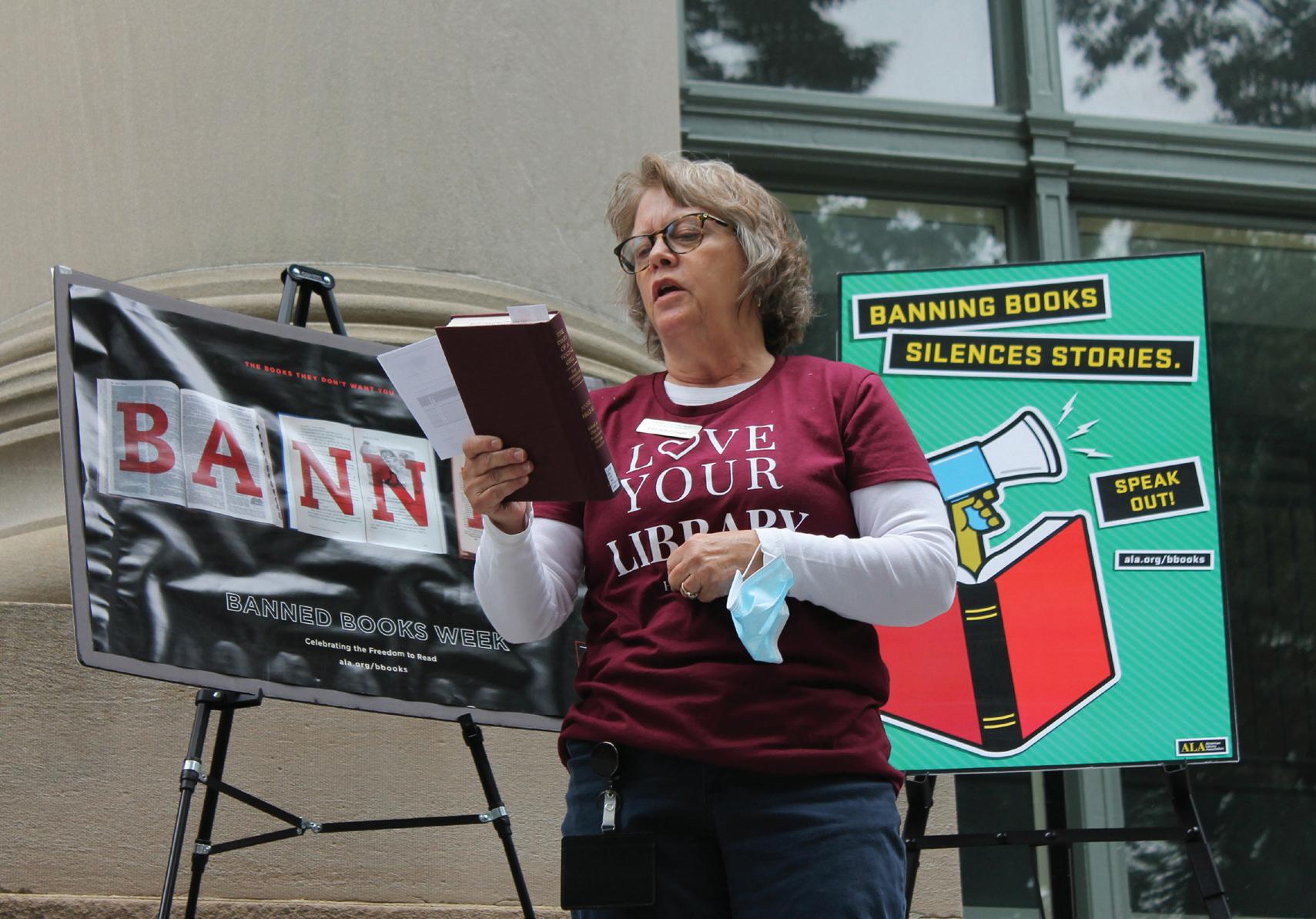
The readout, which the Law School library has hosted since 2016, commemorates the 40th annual Banned Books Week — a nationwide campaign to fight censorship, spotlight persecut ed individuals, and celebrate the freedom to read under the First Amendment’s free speech pro tections.
Featured works included Mar garet Atwood’s “The Handmaid’s Tale,” Tim O’Brien’s “The Things They Carried,” Anne Frank’s “The Diary of a Young Girl,” Isaac Ba bel’s “Odessa Stories,” and Alison Bechdel’s “Fun Home.”
“It really was to help people understand that their ability to read whatever they want might be limited at some point in the fu ture and how important it is for us in a place that celebrates intellec tual freedom to champion access to books,” said HLS Library Exec utive Director Jocelyn B. Kenne dy, who moderated the event.
Kennedy, who read excerpts from Toni Morrison’s “The Bluest Eye,” George Orwell’s “1984,” and James Joyce’s “Ulysses,” said to day’s most commonly challenged books discuss LGBTQ+ issues and racial justice, among other
socially sensitive topics. She em phasized that having free access to books is crucial in generating difficult but necessary conversa tion and called attention to the rising censorship of books across the country.
“That’s a human harm,” she said, “Why I think it’s problem atic is a person or a group of peo ple are deciding on behalf of ev erybody what you can and cannot have access to — what you can and cannot hear or know.”
According to Kennedy, 2021 saw the challenging and banning of over 1,500 different books in the United States, a figure that has already been exceeded in 2022. A book is considered challenged when there is an attempt to re move or restrict it.
“It’s getting worse,” Kennedy said. “There’s something about
the world that we’re living in to day that is leading people to chal lenge books more than ever be fore.”
The weeklong commemora tion — spanning from Sept. 18 to 24 — was founded by the Ameri can Library Association follow ing the 1982 Supreme Court case Island Trees School District v. Pico. High school senior Steven Pico and four peers challenged a New York school board’s deci sion to remove nine books, in cluding Kurt Vonnegut’s “Slaugh terhouse-Five” and Langston Hughes’s “Best Short Stories by Negro Writers,” from the dis trict’s junior high and high school libraries.
“The reality is that it’s been happening always,” Kenne dy said. “We’ve always banned books. It’s human nature to want
to suppress anything that’s differ ent.”
Lesliediana Jones, the HLS Library associate director for public services and chair of the American Library Association’s Intellectual Freedom Commit tee, talked about the challenges librarians and educators face in supporting the free exchange of ideas that books provide.
Jones, who read a passage from Angie Thomas’ “The Hate U Give,” said librarians are “reg ularly being challenged, being threatened” and that some are “losing their job over books that are in their library — that are on the banned books list — and books that they want their stu dents to read.”
ryan.nguyen@thecrimson.com

More Than 200 Students Take Spring Makeup Exams
EDONA COSOVIC CRIMSON STAFF WRITER
Last week, more than 200 Har vard undergraduates took final exams within the first month of the semester.
The Faculty of Arts and Sci ence Registrar administered a total of 208 makeup final exams in the Student Organization Center at Hilles. Students who were unable to take their spring 2022 finals last semester were required to make them up last week — roughly four months af ter classes concluded.
Some students who took makeup exams expressed mixed feelings about the policy, citing difficulty preparing for the belated test.
“It’s a blessing and a curse. I got more time to study, but at the same time, over the sum mer, I forgot a lot of materi al,” John P. Ho ’25 said. “I think it could be more convenient to have the final take place in May. Having alternate dates for you to take the final within the same week that you missed it.” Scott W. Arbery ’24 said he utilized class resources, includ ing office hours, to prepare for his Ec10b: “Introduction to Mac roeconomics” makeup exam.
Julian Giordano ’25 said he received minimal support and communication from course staff for his makeup final.
“The exam, as it turns out, was a different format from the exam that I was expect ing to take in May, which was not communicated to us,” said Giordano, a Crimson multime dia editor.
For certain classes, the final exam could make or break a stu dent’s grade.
“Knowing that it was out of
my hands, if I did poorly, it was more of a reflection on the fact that it was such a long time in between when I was studying for the class and when I took the exam,” Giselle Chiprez ’25 said. “It definitely felt like I was on my own.”
For some students, making up last semester’s work meant sacrificing this semester’s.
“It’s a blessing and a curse. I got more time to study, but at the same time, over the summer, I forgot a lot of material
John P. Ho ‘25
“I had to, obviously, miss classes that day,” Adam S. Mo hammed ’25 said. “I guess I would have liked to have more time to study, but since that didn’t happen, retrospectively, I would have preferred to do [the exam] last semester.”
FAS spokesperson Rachael Dane declined to comment on student criticisms, pointing to the policy guidelines.
“Regarding makeups, there is quite a lot of communications with both faculty and students,” Dane wrote. “During makeups last week, if a student missed an exam due to positive COVID diagnosis, the Registrar invited them to reach out to exams to see if they could accommodate them on a day this week.”
“The Registrar is holding a special makeup exam day this Wed. for those students who are out of isolation and feel well enough to take it,” she added.
edona.cosovic@thecrimson.com
Harvard Law School librarians and staff members read from their favorite banned books on the steps of the Harvard Law School library. SOPHIA S. KIM— CRIMSON PHOTOGRAPHER LAW
ON WEDNESDAY, librari ans at Harvard Law School commemorated National Banned Books Week by reading formerly banned books on the library steps.
NEWS 15SEPTEMBER 23, 2022 THE HARVARD CRIMSON HARVARD
SCHOOL
Former Justice Stephen Breyer Speaks at HLS Event
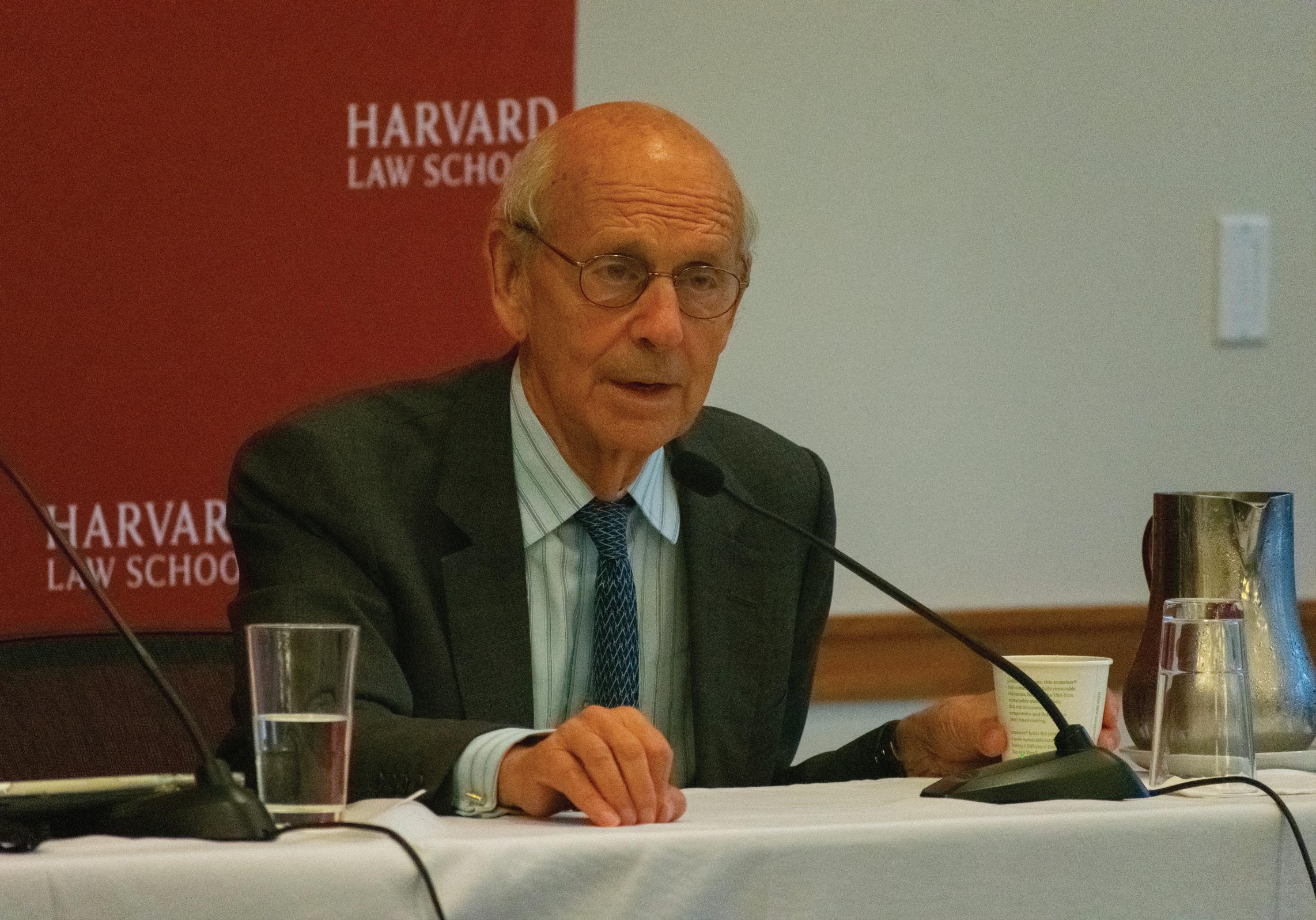
years before retiring in June. He returned to Harvard Law School this fall to teach a course on con stitutional law and regulatory policy.
Former Supreme Court Justice Stephen G. Brey er reflected on his 42-year career as a federal judge at a Har vard Law School forum on Mon day afternoon.
Intisar A. Rabb, director of the Program in Islamic Law at Har vard Law School, moderated the event, which also featured Justice Syed Mansoor Ali Shah of the Su preme Court of Pakistan. Breyer, who graduated from Harvard Law School in 1964, served on the United States Su preme Court for more than 27
Monday’s discussion encom passed a range of legal and hu manitarian issues, including prison reform and the recent flooding in Pakistan.
The justices also talked about the obstacles they faced in their respective courts, such as striv ing to reach consensus with jus tices who hold different views.
“Compromise if you can,” Breyer said. “Better to get 30 or 40 percent of what you want than 100 percent of nothing.”
Breyer added that learning played a key role during his time
on the bench, citing Google v. Or acle, a case that contested wheth er copyright protections extend to software interfaces.
“It was a case involving com puter language — Java,” he said. “It took me a year and a half, with two law clerks working on this thing, to figure it out.”
Both justices stressed the personal fulfillment their work brings, praising their judicial roles for allowing them to resolve disputes and impact their respec tive countries.
“If you’re a judge, you’re sit ting there and you know that this case matters to somebody, and therefore you have to give your best, and you have to keep giv ing.” Breyer said. “As you get old
er you realize what a privilege that is — what a privilege to have a job where you must behave in that way.”
Shah explained that though he had no initial intention of be coming a judge, a former chief justice told him that becoming a judge on the Supreme Court was the best way to “fight for democ racies.”
“I would say that at some stage of your life, do consider judge ship,” Shah told attendees. “I think the amount of contribu tion you can make is absolutely phenomenal, which a lawyer can never even fathom.”
Less than two weeks after for mer Harvard instructor David D. Kane began teaching at Simmons University, the school announced Kane’s class would be canceled and his contract would not be re newed.
Kane left Harvard in June 2021 following accusations that he had posted racist blog posts un der a pseudonym. After he began teaching at Simmons this fall, the school said it was not aware of the blog posts during its hiring process and that it would create a new section of the course and allow students to transfer out of Kane’s class without penalty.
But Simmons announced Friday afternoon that enroll ment numbers for Kane’s class had dipped below the minimum threshold, prompting the school to cancel the course section for the rest of the semester.
“In addition, Simmons will not be renewing his contract,” the university’s Interim Provost Rus sell Pinizzotto wrote in an email.
In September 2020, students in Harvard’s Government 50: “Data” course, which was taught
by Kane at the time, accused the instructor of authoring rac ist posts on EphBlog, a website founded by Kane for affiliates of Williams College, his alma mater.
The blog featured several posts by an author named “David Dudley Field ’25,” one of which was signed “David Kane ’88.” In the posts, Field criticized “Black supremacy” in the NBA and al leged that more than 90 percent of Black students at Williams would not have been admitted if not for their race.
Simmons announced that Kane’s section of the course would be discontinued during a sit-in of Kane’s section, according to The Simmons Voice. Students flooded the classroom and ques tioned the instructor about the blog posts.
“Simmons respects the right of student free expression, and we believe that sit-ins, protests, and peaceful demonstrations are important forms of that expres sion,” Simmons President Lynn Perry Wooten wrote in a state ment. “In the coming days, Sim mons will host a meeting with students, and we are also review ing HR best practices.”
Despite national discussions about a teacher shortage across the country, several affiliates of the Harvard Graduate School of Education have said the short ages are both subject-dependent and more concentrated in specif ic school districts.
Affiliates said the local nature of shortages, as well as the lack of teachers in the STEM and special education fields, has driven the recent news coverage.
Teacher shortages all across the country have been much more common in rural and low-income areas, while subur ban schools offering higher sal aries are able to bring in more candidates, according to a recent New York Times article, which also mentions a particularly pro nounced need for teachers in math and special education.
Martin West, academic dean at HGSE, said the situation high lights a broader issue in the edu cation system.
“I’m not yet convinced that the situation we’re facing now is a national teacher shortage as op posed to the continuation of a sit uation we’ve had for quite some time in American education,” he
said.
problem was that they got on the bus in the first place.”
In response to student crit icisms, College spokesperson Aaron M. Goldman wrote in an emailed statement that Harvard welcomes participant feedback.
“We were delighted to wel come students from numerous
academic institutions to Har vard’s campus this summer for a variety of programs,” Goldman wrote. “Hearing their feedback plays a critical role in helping us to ensure that future cohorts have a meaningful and enjoyable experience.”
Besides the heat and transpor
tation issues, some SROH affili ates reported a lack of clear com munication from administrators throughout the summer.
“It’s almost weird to call it is sues of communication because there just was none,” SROH men tor Dave Matthews said. “They never told us anything about
West added that America fac es “local shortages” primarily in schools “serving traditionally disadvantaged students.”
HGSE professor Heather C. Hill said she believes teach er shortages have “been a trend that’s been ongoing for a long time,” pointing to a decrease in the number of people enrolled in teacher education programs since 2012.
Harvard professor and astro physicist Abraham “Avi” Loeb is preparing to search the Pacif ic Ocean floor for fragments of an interstellar meteor and po tential alien technology.
Loeb hopes to recover pieces of CNEOS 2014-01-08, a meteor of an estimated 500 kilograms originally observed off the coast of Papua New Guinea in 2014. He has received full funding — $1.5 million — to finance the ex pedition through contributions from wealthy donors, he wrote in an email.
Loeb said in an interview that his team will be searching one centimeter into the ocean floor for small fragments of the meteor.
“This meteor actually disin tegrated presumably into small fragments, so we are not looking for one big chunk,” he said. “We just need a few grams of materi al — that’s all, a few grams — to be able to tell the composition.”
“We are trying to localize the impact site — localizing as much as possible,” he added.
Loeb acknowledged that the fragments could have moved over the course of the eight years since the meteor’s discov ery.
“We have a map of the ocean floor in that region and we also know the currents that exist ed back in 2014,” he said. “So we know whether it’s moving away from the site.”
CNEOS-2014-01-08 is of par ticular interest to Loeb because he believes the object could be artificial in origin or hold equip ment from alien civilizations.
“People say ‘Oh, it’s just a space rock. We saw so many space rocks in the past. What’s new about it?’” he said. “It’s the first one that came from outside the solar system and, second, it’s tougher than 99.7 percent of ev erything we have seen.”
“We should be able to tell what its origin is — whether it’s an artificial alloy, for example, if it were a spacecraft of anoth er technological civilization,” Loeb added.
Loeb’s plan has gotten atten tion from his peers. In an email, Martin Elvis, senior astrophysi cist at the Center for Astrophys ics, pointed out potential chal lenges that Loeb’s project could face.
“Pinning down the impact site to some reasonable area has to be the big challenge. Forty square miles is daunt ing. CNEOS 2014-01-08 was small to begin with (about 2 feet across),” Elvis wrote in an email.
“It had to lose a lot of mass com ing through the atmosphere, so even if it stayed intact it is a small target.”
Still, Elvis discussed the high potential upside of the project.
“I thought it was a good ex ample of ‘high risk/high pay off’ science. Everyone profess es to like such research, but they rarely do it in practice. Sure, they could well fail, but if they suc ceed then they will have found our first macroscopic sample of material from beyond our So lar System,” he wrote. “That’s the sort of mission NASA would spend a billion dollars on. So I was happy that they were taking the plunge.”
It was a good example of ‘high risk/high payoff’ science. Everyone professes to like such research, but they rarely do it in practice.
Loeb addressed some of his peers who doubt his work.
“Experts want to say that ev erything we see in the sky can be explained by their past knowl edge, but if we see something new, it cannot be explained by their past knowledge,” Loeb said. “So they have a problem with that because it challenges their expertise.”
“Because this story got pub licity, then people want to step on any flower that rises above the grass level,” he added.
Avi Loeb Prepares to Search the Pacific Weigh In on
tion requirements, evaluation requirements, and in some cas es pay, and so I think we’ll see re ally substantial state-to-state dif ferences.”
Several affiliates also noted that some teachers have found scrutiny of the education system in the current political climate to be a deterrent from teaching.
Moore Johnson said she believes the “recent focus on banned books” and “constraints on what teachers can say or do in their instruction” have discour aged teachers from staying in the profession.
Hill also cited the move to “take away teacher authority” as a source of the shortage.
leaders, that means supporting the teachers when they’re there, and of course, it does mean pay ing them a salary that’s respectful and livable in the geographic con text they’re in,” she said.
HGSE student Eve Rybnick added that salary variations can also be a deterrent to teach ers from moving to areas that do not pay teachers as well as some states in the Northeast.
“The amount of hours that a teacher puts in does not equate to the pay that they’re receiv ing in most parts of the country,” she said. “I was very fortunate to work in New York and New Jer sey, which are well-paying states for teachers, but it makes me less likely to work elsewhere.”
Variations by state, district, and school further complicate staffing issues, according to HGSE professor Susan Moore Johnson, who emphasized that education is “left to the states” at a constitutional level.
“It seems very doubtful to me that the whole nation will focus on this and come up with a par ticular solution,” Johnson said. “The states regulate teacher li censing requirements, prepara
“Why go into a profession where you are just going to be do ing what you’re told as opposed to working creatively, develop ing expertise, making good judg ments, being able to meet the needs of your learners?” Hill said.
When discussing solutions to address the shortage, multi ple experts stressed the impor tance of looking beyond pay rais es alone.
HGSE senior lecturer Eliza beth A. City mentioned the need for administrative support along side wages to “make schools great places for people to work.”
“That means training the
fall. Still, Matthews said he be lieves the program’s living condi tions will make it more difficult for Harvard programs to recruit a diverse group of students in the future.
Rybnick said she believes in creasing autonomy for teachers might help mitigate the logisti cal challenges of teaching, such as pay and support.
“We need to have more trust in teachers and give them more au tonomy, because when you take that away, coupled with low pay and often poor resources, it’s just a perfect storm for getting teach ers to quit or leave the field which is really unfortunate, because we need teachers more than ever now,” she said.
they enjoyed their research in the lab, they said their impression of Harvard has been negatively im pacted by their residential expe rience.
when they were showing up or telling us about the research sym posium that they had going on and making sure we knew dead lines.”
To improve the experience for future iterations of SROH, Yoon said she has engaged in conver sations with administrators this
“You have all these students that have come here and had a horrible experience and been treated poorly by Harvard,” Mat thews said. “It reflects poorly, and they now have a bad impression of what it’s like to be here.”
While Ross and Heinrich said
“The whole experience, in terms of people caring about your safety and just caring at all, I would say definitely put a bad taste in my mouth and was not what I expected from Harvard,” Heinrich said.
Former U.S. Supreme Court Justice Stephen G. Breyer speaks at a Harvard Law School forum on Monday. JULIAN J. GIORDANO — CRIMSON PHOTOGRAPHER
Eve Rybnick Harvard GSE a does not to the that they’re . leah.teichholtz@thecrimson.com
Martin Elvis Senior Astrophysicist
NEWS16 SEPTEMBER 23, 2022 THE HARVARD CRIMSON HARVARD LAW SCHOOL
HGSE Affiliats
Teacher ShortagesSimmons Cancels Class Led by David Kane
Student The amount of hours that
teacher puts in
equate
pay
receiving
“ Summer Students Bemoan Heat Issues ‘HEAT’ FROM PAGE 1 BY RYAN H. DOAN-NGUYEN AND JOHN N. PEÑA CRIMSON STAFF WRITERS ryan.doannguyen@thecrimson.com john.pena@thecrimson.com BY JEREMIAH C. CURRAN CRIMSON STAFF WRITER jeremiah.curran@thecrimson.com BY PATON D. ROBERTS CRIMSON STAFF WRITER paton.roberts@thecrimson.com BY ALEANDER I. FUNG CRIMSON STAFF WRITER alexander.fung@thecrimson.com vivi.lu@thecrimson.com
“
HKS Student Elections Suspended After Tech Troubles
statement Wednesday that firstyear master’s in public adminis tration students did not receive emails about the election because of a Kennedy School IT error.
“We regret the error and have established fail-safes so that this does not happen again,” Cabalquinto wrote.
“The election process is self-governed by KSSG, but we support their decision to pause and reopen elections next week to ensure all students can partic ipate.”
Voting will run in the new election from Sept. 27 to Sept. 28. Candidate nominations
opened on Tuesday and closed on Wednesday. Candidates who con firm their nominations will be al lowed to start campaigning on Friday.
Jose G. Altamirano, a sec ond-year master’s in public poli cy student, said the election suf fered from the “perfect storm of circumstances and lack of gener al knowledge about election by laws.”
Kirkpatrick said she received many inquiries as to whether “re opening nominations was possi ble or if starting a write-in candi dacy was possible” after the ballot revealed only one candidate for
student body president.
“But many things are prohib ited by the bylaws, including the elections committee changing the bylaws,” said Kirkpatrick, who serves on the elections com mittee. “So as a result, we weren’t able to proceed with a lot of those things students were interested in.”
While the student govern ment’s bylaws prevented new nominations, they did allow for a “none” option to be added on the ballot for uncontested positions, a function that was erroneous ly not used last year, according to Kirkpatrick.
“Students could vote for the candidate and really give those uncontested candidates a man date or indicate that they did not wish for the candidate to serve, which was an option that the by laws require,” Kirkpatrick said.
Omar M. Awad, a first-year mid-career MPA student, was the sole candidate running for presi dent before the election’s suspen sion.
“The process humbled me and I tried to disattach [sic] myself from what people are saying and them attacking the uncontested candidate,” Awad said.
“I even did not contest this no
IOP Forum on Transgender Issues Honors Rodrigo Ventocilla
A month after Rodrigo Ventocil la Ventosilla, a transgender Har vard Kennedy School student from Peru, died in police custody in Indonesia, Harvard’s IOP host ed a forum Tuesday on the cultur al and political backlash to the global transgender rights move ment.
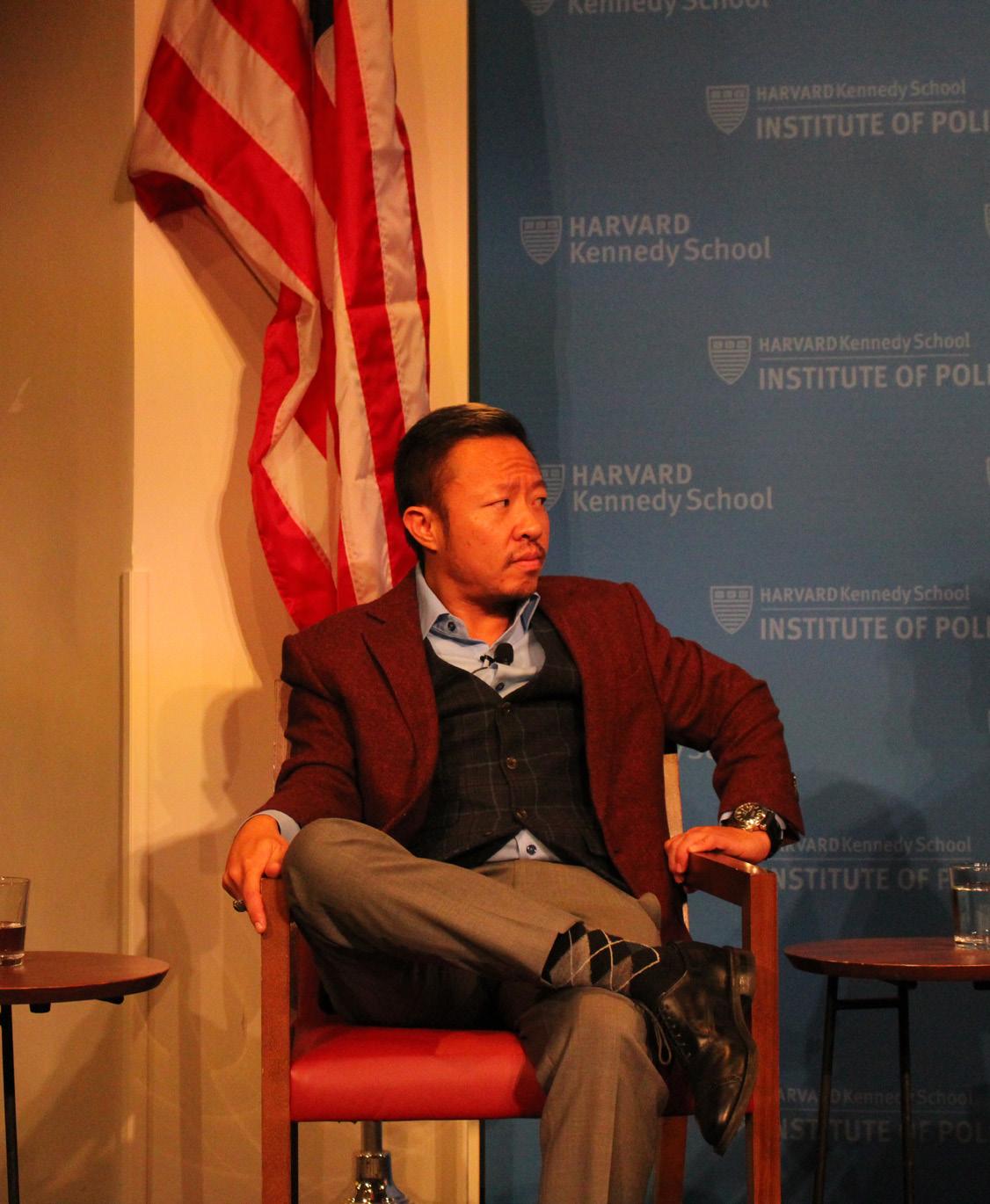
HKS professor Erica Che noweth moderated a discussion between Alexander L. Chen, the HLS LGBTQ+ Advocacy Clinic di rector; Jen Manion, an Amherst College professor of history, sex uality, and women’s and gender studies; and Nicholas Opiyo, a fel low at HKS’s Carr Center for Hu man Rights Policy.
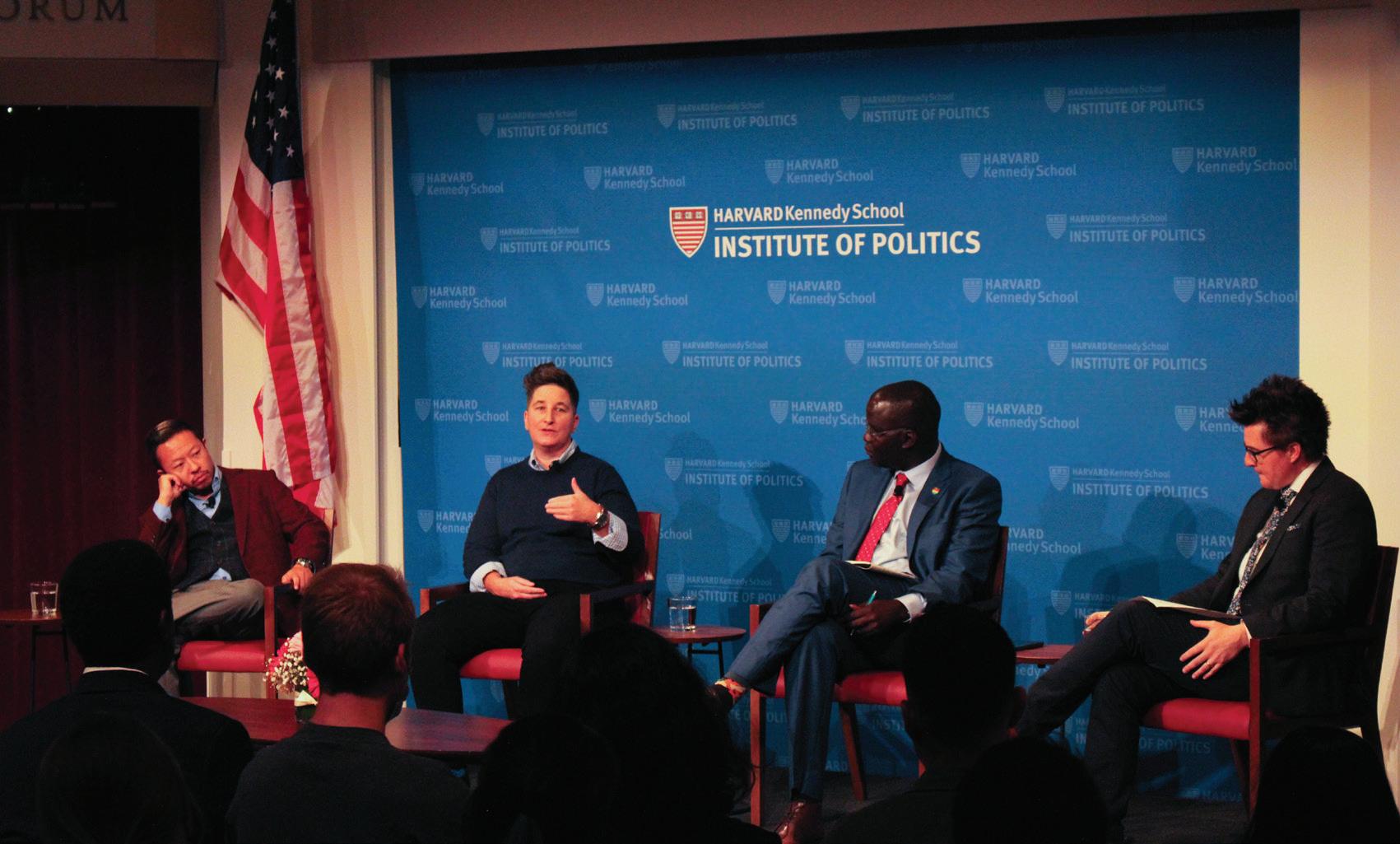
The event began with a mo ment of silence in honor of Ven tocilla, who died five days after he was detained by police in Bali while traveling on a honeymoon with his spouse, Sebastián Mar allano.
“His family has called for an investigation into the circum stances of his death, a demand that HKS Dean Doug Elmendorf has reiterated,” Chenoweth said.
“Rodrigo was a tireless advo cate of trans rights in Peru and while he was here at HKS,” Che noweth added. “That his life was cut short is truly devastating.”
Chen, who is gay and trans gender, said Ventocilla’s arrest
and death in Indonesia “hit home for me personally in a particu larly eerie way,” explaining that he was in Bali with his partner to celebrate their domestic partner ship one week prior to Ventocil la’s death.
“For Rodrigo and Sebastian to have been there for their hon eymoon — which was supposed to be an opportunity for them to celebrate their love, to sort of em bark upon a relationship and a life together — and for it to end in this incredibly tragic and hor rible way, is really just my worst
fear,” Chen said.
Rodrigo was a tireless advocate of trans rights in Peru and while he was here at HKS.
Chen said while transgender people are now “more visible” and the trans rights movement is
“more powerful” than it has ever been before, much work remains to be done.
“[That’s] an incredibly contin gent and small amount of prog ress compared to the lived reali ty of the lives of millions of people around the world,” he said. “Most people live in secrecy. Most peo ple live in shame, and in rejection, and being discriminated against and suffering from human rights abuses.”
“It’s depressing,” Chen added. Opiyo, a Ugandan human rights lawyer, said he was more
tion of a Droop quota when they added it,” Awad said, referring to the “none” candidate option. “Even though the bylaws doesn’t really say anything about uncon tested positions.”
Alexander R. Cooper, a sec ond-year MPA student, said he believed Hobby and Kirkpatrick were “responding to and taking cues” from Kennedy School ad ministrators.
“That’s a pretty big red flag to me,” Cooper said. “I think the stu dent government needs to exist separate from the administra tion, not as an arms to enforce the administration’s policies and
their preferences.”
Hobby wrote in a statement Thursday evening that “it has al ways been standard practice for committees to consult with ad ministrators in order to utilise their institutional memory of the election process.”
“Ultimately, Bethany and I made and took responsibility for all decisions, with careful refer ence to the bylaws, and there was never a situation where admin istrators told us what we were or were not allowed to do,” Hobby wrote.
miles.herszenhorn@thecrimson.com
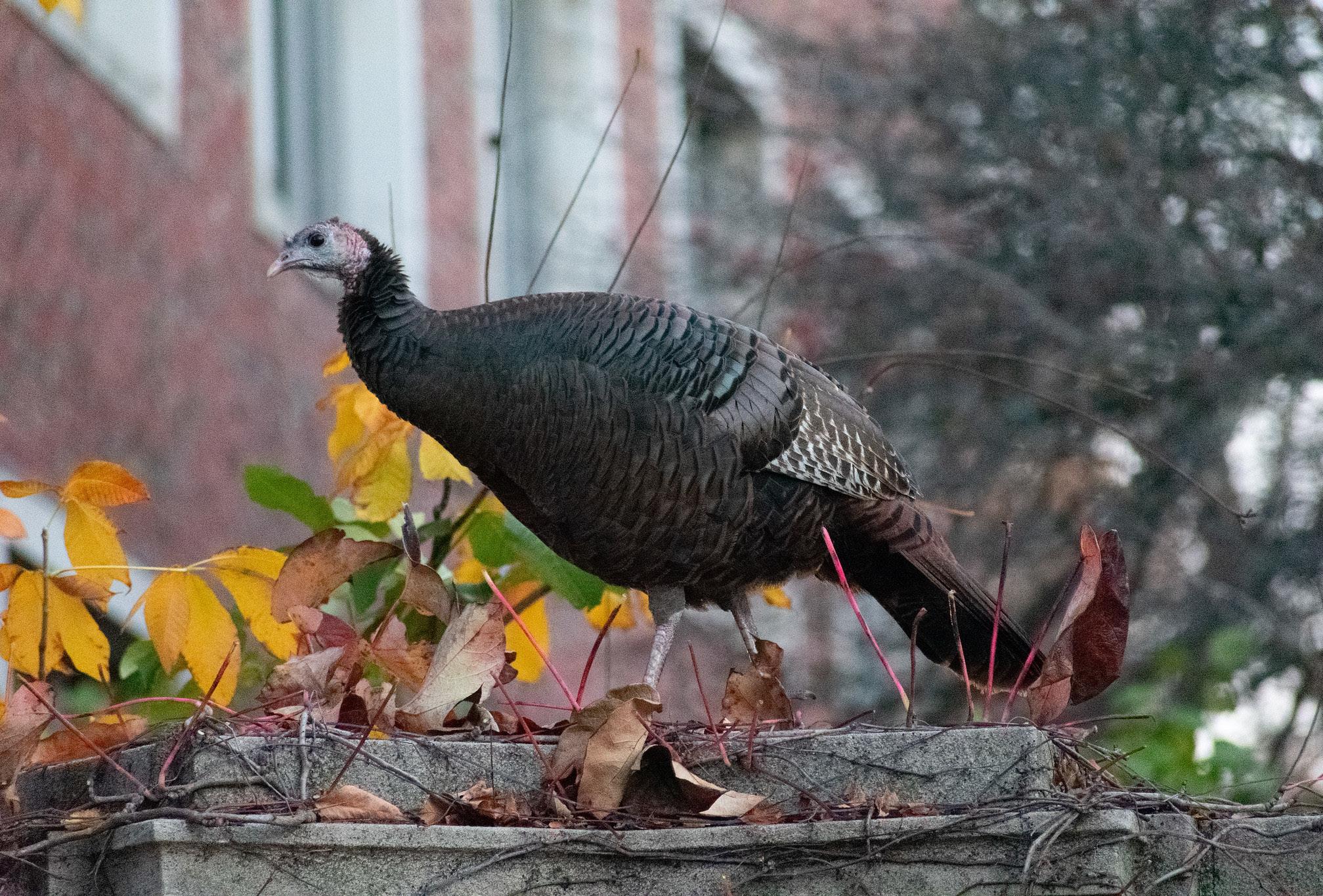
optimistic about the ongoing progress around the world to support trans rights.
“I see progress, I see resilience, I see inspiration,” Opiyo said. “We are coming from a point of deni al to a point of engaging with the issue.”
Two decades ago, “nobody would even admit” in Uganda that transgender people existed in society, according to Opiyo.
“But 20 years on, that sort of belief is fading away,” Opiyo said. “People are confronting with the idea that — whether you like it or
you don’t — there are trans people in our society, at all levels of soci ety.”
Manion said that despite the violence and backlash transgen der people continue to face, they are also optimistic about the fu ture of the trans rights move ment.
“We have already changed the world,” Manion said. “There’s no amount of hatred and bigotry that’s gonna undo all that we’ve done for the last 20 years.”
miles.herszenhorn@thecrimson.com
BY MILES J. HERSZENHORN CRIMSON STAFF WRITER
From left, Alexander Chen, Jen Manion, Nicholas Opiyo, and Erica Chenoweth spoke at a John F. Kennedy Jr.
Forum event about issues affecting transgender people.
MILES J. HERSZENHORN — CONTRIBUTING PHOTOGRAPHER
Alexander Chen at IOP forum on issues facing the transgender commu nity. MILES J. HERSZENHORN — CONTRIBUTING PHOTOGRAPHER
Erica Chenoweth Harvard Kennedy School Professor
NEWS 17SEPTEMBER 23, 2022 THE HARVARD CRIMSON ‘HKS’ FROM PAGE 1
The Crimson thecrimson.com Harvard, 24/7.
“
THE HARVARD CRIMSON RECAP SCORES
WOMEN’S POLO L, 16-15
Harvard Ends NonConference Play With Loss
throp took the match with a fifth set of 15-9. Thus, the Crimson would be forced to seek its second win of the season against a com petitive Duke (9-2) squad.
This past week end, the Har vard women’s volleyball team traveled to Durham, N.C. to face off against Winthrop University and Duke University in a double header weekend. Despite two commend able performances, the Crimson was unable to find victory in its journey to the Tar Heel State.
Having picked up its first win of the season against Iona Col lege (6-5, 1-1 MAAC) the previous weekend, Harvard (1-7) was ea ger to keep the ball rolling against Winthrop (4-7) on Friday. The first set would prove promising, as the northerners took advantage of Eagle errors and kills from soph omore outside hitter Corinne Furey to take a tight opener, 25-23. Furey had nine kills on the night, second only to junior outside hit ter Katie Vorhies, who notched 13 and leads the team with 75 for the season.
“It feels great to be back; it’s so exciting to be with everyone,” said Vorhies about returning for another season. “This year is very special because we have al most the same team that we did last year…, so the chemistry is there and we already know how to work together.”
If the first set was Furey’s, the third was Vorhies’, as she record ed five kills including and put the Crimson one set away from its second win of the season.
The Eagles proved to be a formidable opponent, howev er. In the second and fourth sets, they frequently went on multi ple-point runs. Sophomore libe ro Lindsey Zhang led the defense with 14 digs, but even with soph omore setter Rocky Aguirre’s 10, Winthrop handily took the sec ond set, 25-17, and the fourth, 2519, to force a fifth set sprint to 15.
An early Eagle six-point run for an 8-2 gap proved too much for Harvard to handle, as Win
Rounding out its North Car olina trip and non-conference play, Harvard took an early lead against the host Blue Devils from kills by Vorhies, Furey, and firstyear outside hitter Brynne Faltin sky. Faltinsky has made her pres ence known in her rookie season, contributing the fourth-most points per set played.
“As a freshman, it’s so much to handle — coming to a new school, moving to a different state, trying to fit in with this new team that already has chemistry and cul ture —, but I think they’re all do ing that really well,” Vorhies said.
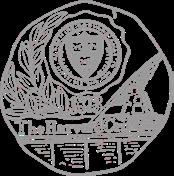
Faltinsky has adapted well to the change: she was named to the Ivy-League Honor Roll after the Bryant Invitational.
Despite this strong rebound from the previous day’s loss, the Crimson could not capitalize on this lead, as Duke surged to take the first set 25-16 and an early 6-2 lead in the second which would soon turn into 15-7. Blue Devil er rors and Faltinsky and Vorhies kills would make the rest of the set competitive, but the Durham ites managed to ultimately close it out, 25-21. The two teams were neck-and-neck throughout the beginning of the third, with only a three-point difference when each team crossed the halfway point. A nine-point run, however, allowed Duke to run away with the set, 2514, and with it the match.
The trip to North Carolina marked the third consecutive multiple-match weekend. Har vard started its season in Rhode Island at the Bryant Invitation al, where it fell in straight sets to Bryant (10-6) and Boston College (11-2) and lost a closely contested match to Montana St. (4-8), 2225, 25-20, 29-27, 25-23. Against Bryant and Montana St., junior hitter Ashley Wang led the team with 10 and 13 kills, respective ly. Along with Vorhies’ contri butions, junior outside hitter Ni cole Prescott earned the Crimson
10 and nine points, respectively, in the latter two matches of the weekend.
“[In] the Bryant weekend, the first match was jitters, and we saw that weekend with each match we were getting better,” se nior captain Bella Almanza said. “We hadn’t gotten that win un der our belt quite yet, but we were still really proud of each other be cause we could see in each game our connections getting better, whether in our hitting or our passing.
Harvard would thus have to look for its first win of the sea son the following weekend at the Harvard Invitational. The Crim son lost a tight home-opener against Utah Valley (5-6) in four sets; each set ended with no more than a four-point gap. Vorhies and Wang led the offense with 15 and 13 kills respectively, and
the duo was assisted by Almanza and Aguirre, who set up 25 and 19 points. Harvard’s slide continued in its second match against Geor gia (9-2). Although the hosts won the first set, 30-28, the Bulldogs took the next three by margins of nine, seven, and 11.
Disappointed by the slow start to the season, the Crimson was determined to emerge victorious from the weekend’s third match against Iona. A strong start from Harvard to win the first set, 25-15, was soon met by three nail-bit ing, two-point-margin sets (2426, 25-23, 28-30). An Almanza as sist, one of 38 for the match, to a Wang kill, one of a team-high 19, ended the fifth set, 15-11, and se cured the Crimson its first win of the season.
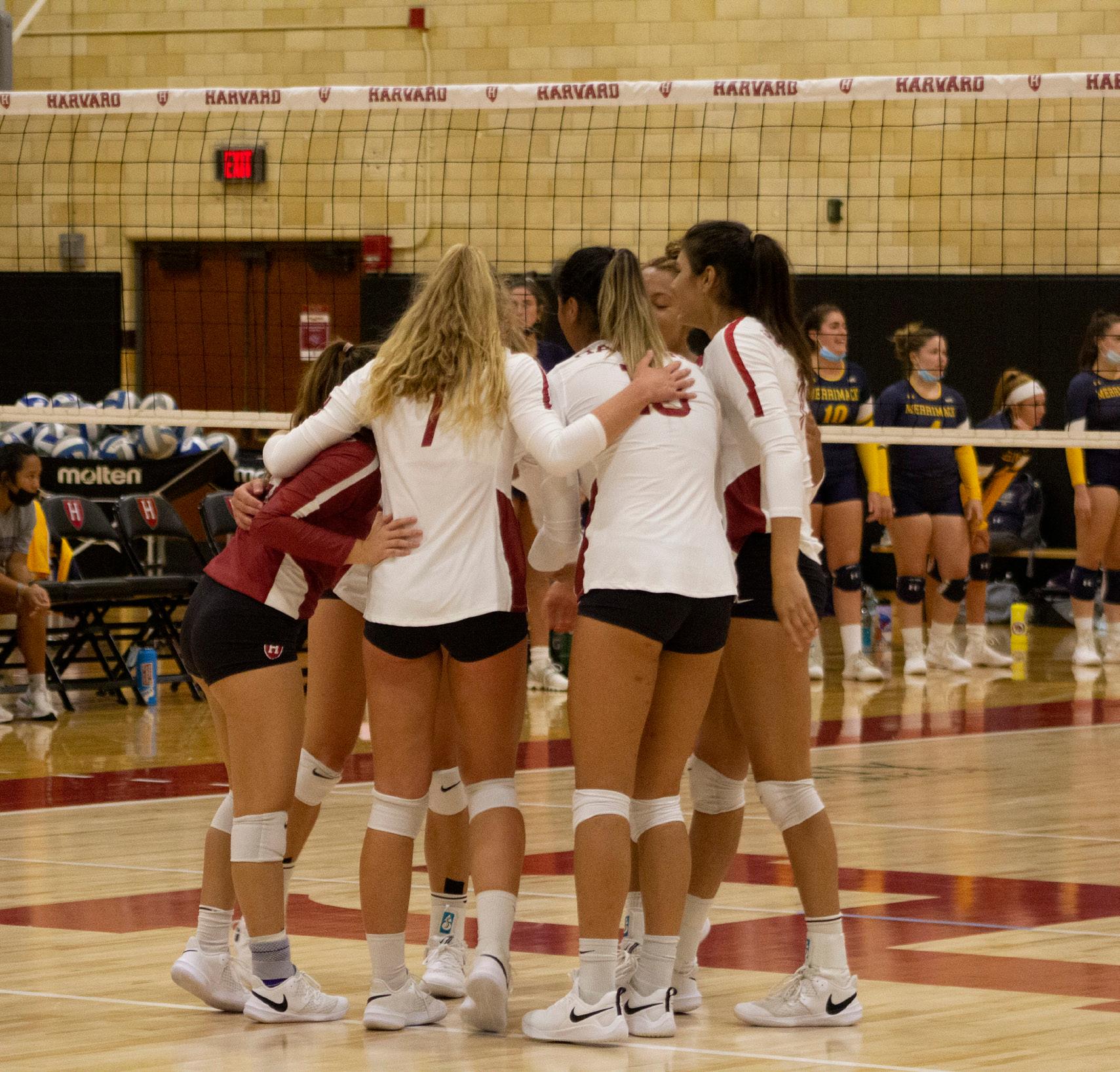
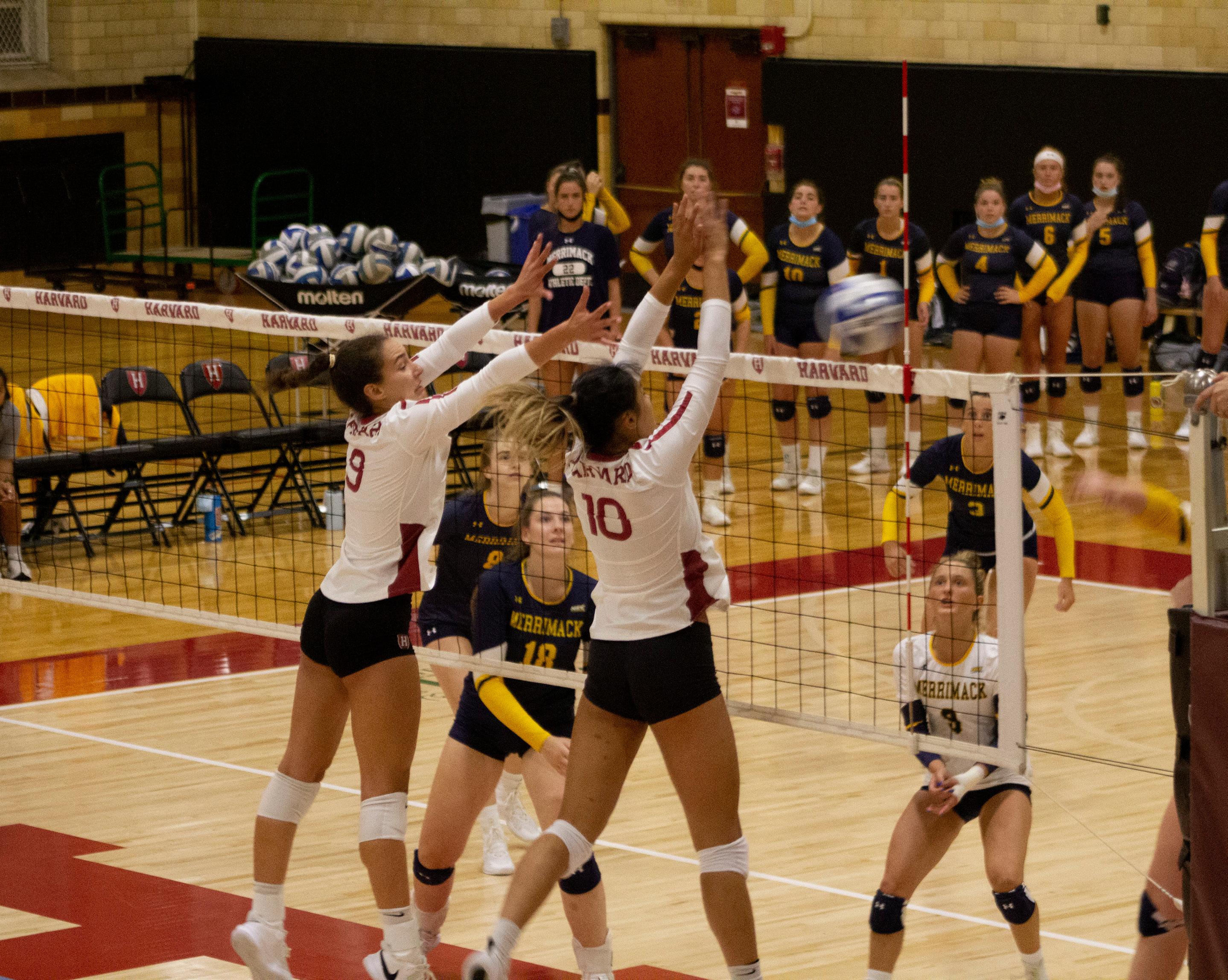
“In that game we acted con fident and played confident no matter how we felt,” Almanza
recalled. “I think that went real ly well for us. We’re a team that thrives off energy and confidence; that’s how we play our best, and that’s how we competed against Iona.”
Despite the less-than-ideal weekend in North Carolina, the team is looking forward to start ing Ivy League competition.
“These past three weekends, we’ve really been trying to figure things out and get in our rhythm,” Vorhies said. “At this point we’ve learned a lot about our strengths and weaknesses, and we’re ready to go into Ivies next weekend.”
Harvard will begin conference play this Saturday, when it will host Dartmouth at the Malkin Athletic Center. The Crimson de feated the Big Green in two tight five-set matches last season.
MEN’S SOCCER LEAVES WITH DRAW
Harvard men’s soccer played to a 1-1 draw against Merrimack College on Tues day night. Junior James Fah my scored the Crimson’s lone goal during the 10th minute before Merrimack responded with an equalizer in the 35th minute. The second half of the game remained scoreless de spite the Crimson dominating Merrimack with more shots on goal, with Garcia-Morillo and Arlotti tallying five shots and two shots on goal. Men’s soccer returns home to host Fairfield University on Satur day.
FIELD HOCKEY GETS THIRD STRAIGHT WIN
The 14th-ranked Harvard women’s field hockey team beat Northeastern 2-0 on Tuesday. The Crimson won its straight third game, holding a strong defensive effort at Dedham Field. The halftime of the game saw a 0-0 score. Early in the third quarter, the Crimson finally began to dominate on a penalty corner, making the new score 1-0. As the game neared its end in the fourth quarter, the Crim son kept Northeastern from scoring, and finally ended the game with only 4 minutes to go, stealing the win for Har vard.
WOMEN’S SOCCER TIES 2-2 WITH TCU
The No. 16-ranked Harvard women’s soccer team bat tled its way to a 2-2 tie with No. 17 Texas Christian Uni versity. The Crimson fought a 90-minute struggle on the field in Fort Worth, Texas, with sophomore Aslaug Gunn laugsdottir scoring two goals. TCU scored six minutes into the game, kicking off a defen sive showdown between the Horned Frogs and the Crim son. Harvard is unbeaten this season, holding a 6-0-1 as they head into the Ivy League play this weekend at the University of Pennsylvania.
FIRST
The Crimson celebrate Merrimack,
Juniors Cooper
WEEKLY
FIELD HOCKEY VS. NORTHEASTERN W, 2-0 SOCCER VS. TCU D, 2-2 VOLLEYBALL VS. DUKE L, 3-0 RUGBY VS. MOUNT ST. MARY’S W, 95-7 VOLLEYBALL WINTHROP UNIV. L, 3-2 SAILING CHAMPIONSHIP 1ST TENNIS VS. NO. 25 BUCKNELL W, 807 FIELD HOCKEY VS. AMERICAN UNIV. W, 3-2 CROSS COUNTRY VS. YALE, PRINCETON 1ST MEN’S SOCCER VS. MERRIMACK D, 1-1 WATER POLO VS. UC, IRVINE W, 18-17 FOOTBALL VS. MERRIMACK W, 28-21 CROSS COUNTRY VS. YALE, PRINCETON 2ND GOLF AT ST. JOHN’S 1ST WATER
VS. UCLA
SEPTEBMER 23, 2022 SPORTS18
READ IT IN FIVE MINUTES WOMEN’S VOLLEYBALL NOAH A. JUN CRIMSON STAFF WRITER
WIN. Although unable to pull off wins against Winthrop and Duke, the Crimson performed well against Iona, winning their first game of the season.
after a point last year against
who they beat in four sets. AIYANA G. WHITE — CRIMSON PHOTOGRAPHER noah.jun@thecrimson.com
Olivia
and Ashley Wang elevate together for a block. AIYANA G. WHITE — CRIMSON PHOTOGRAPHER
